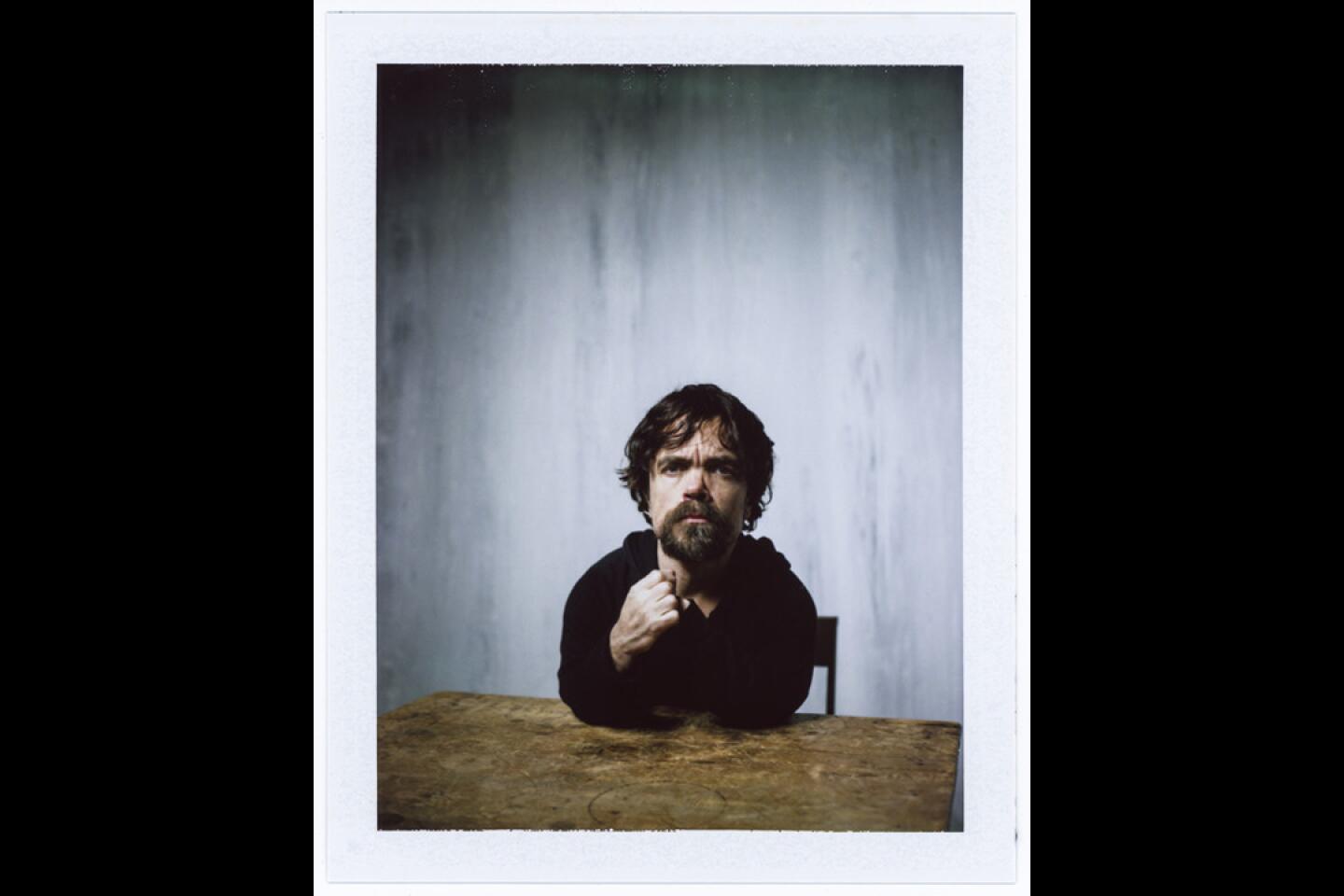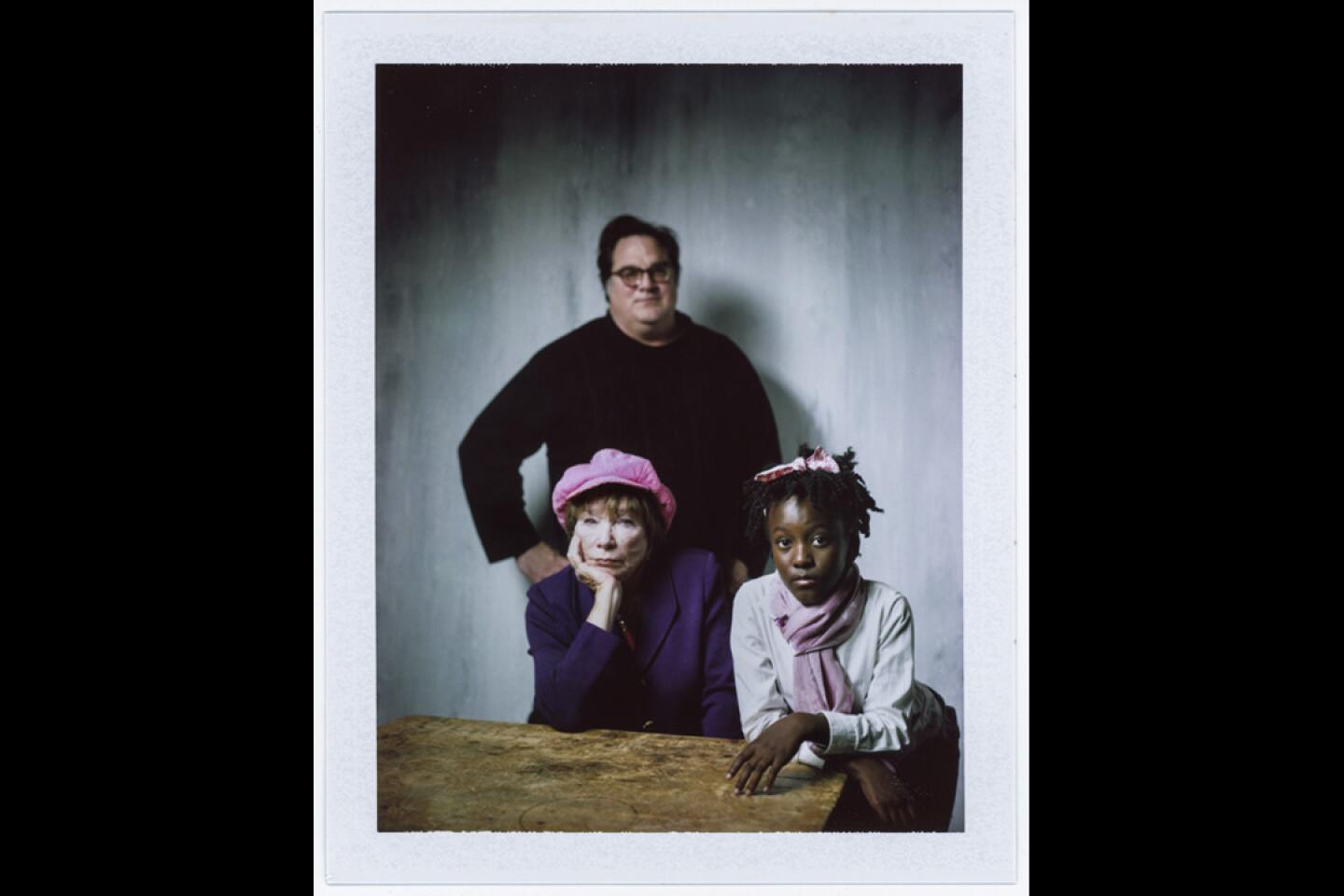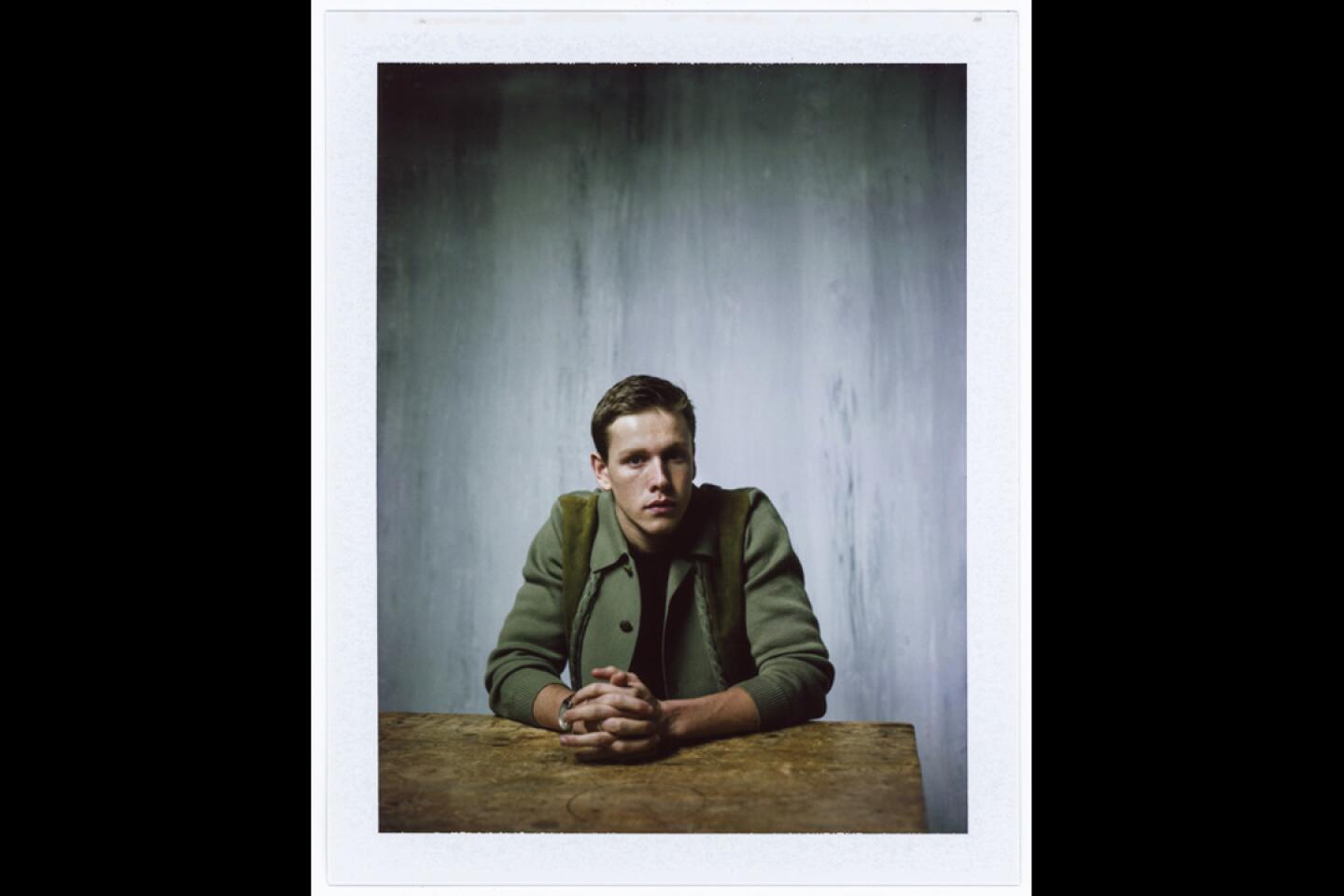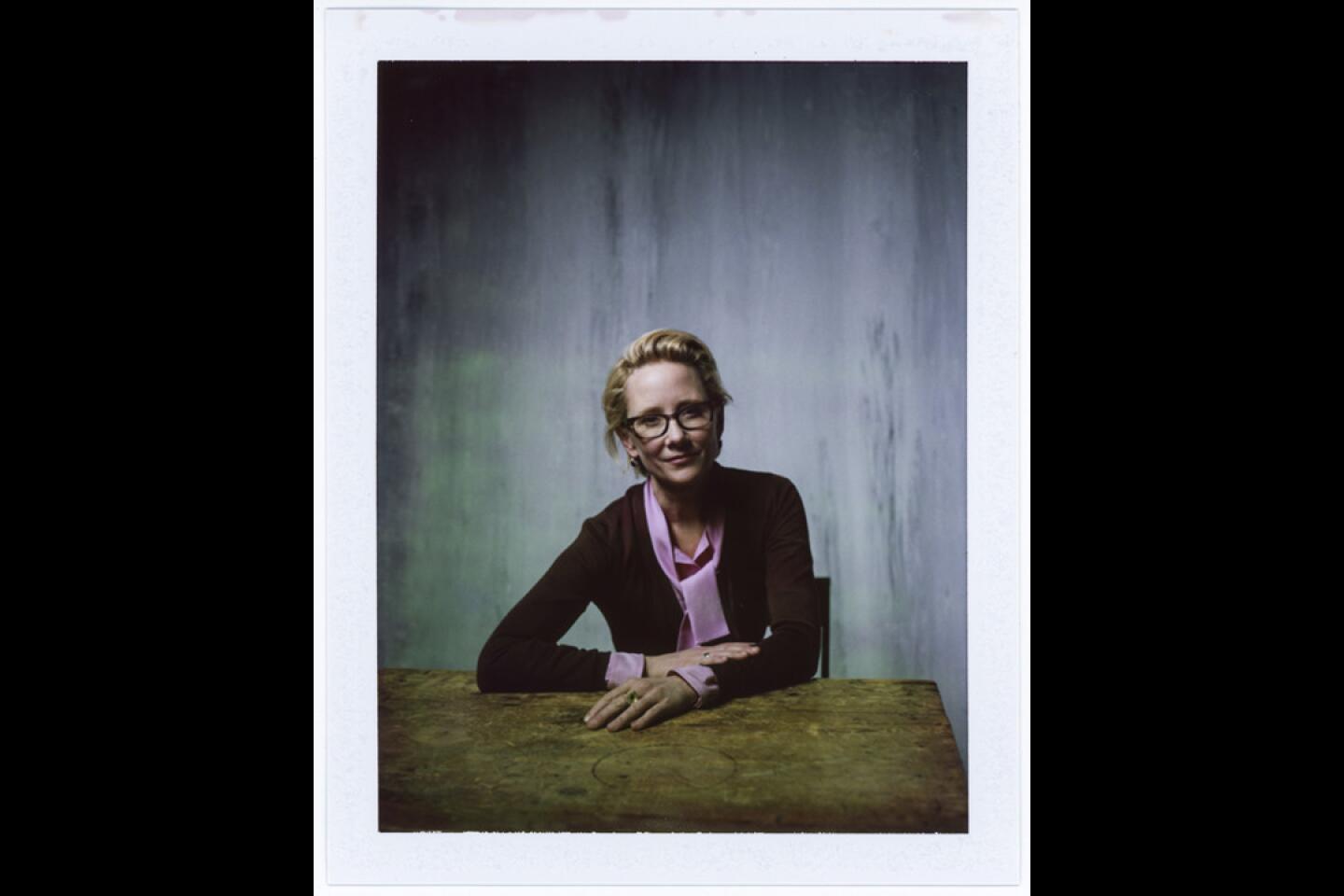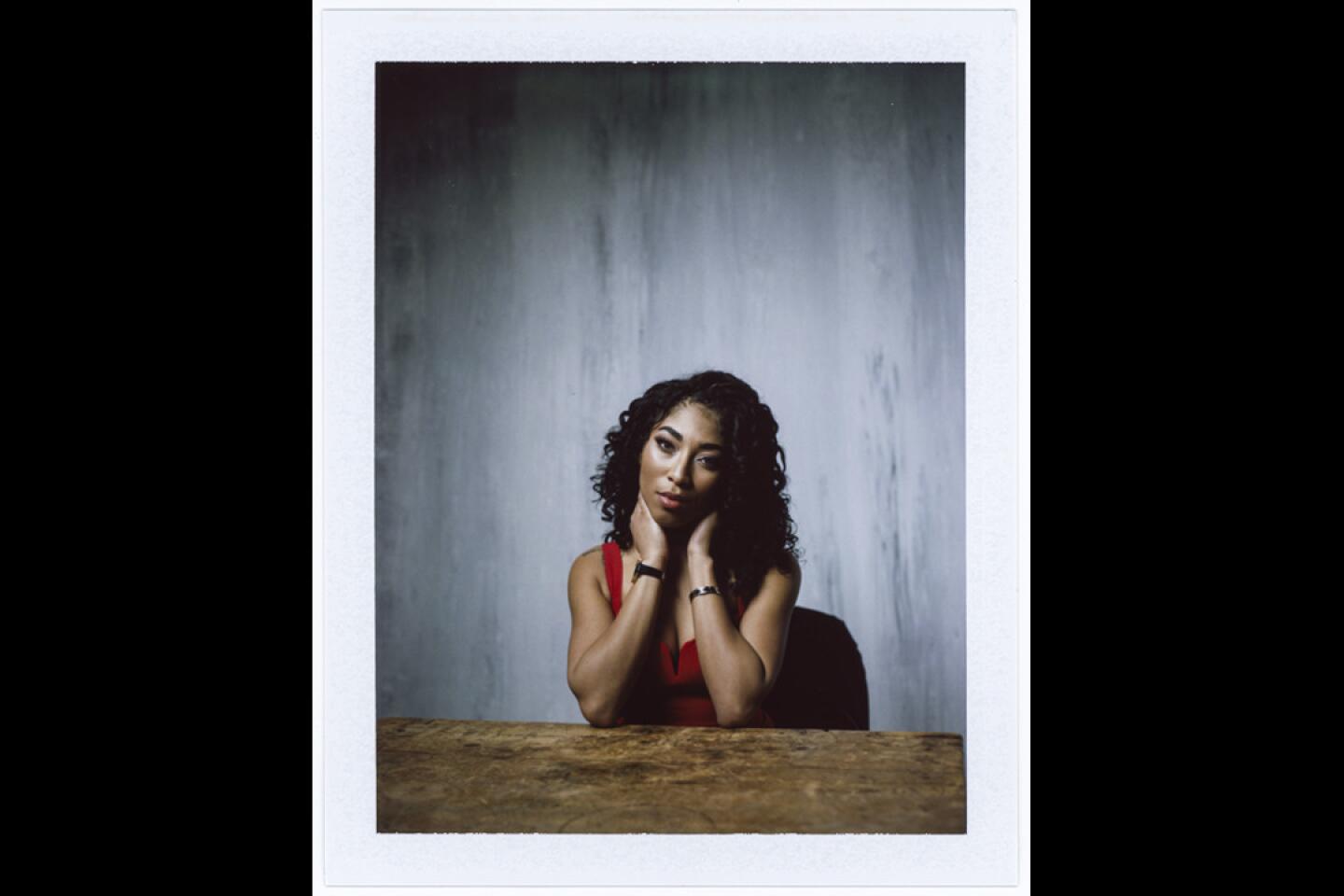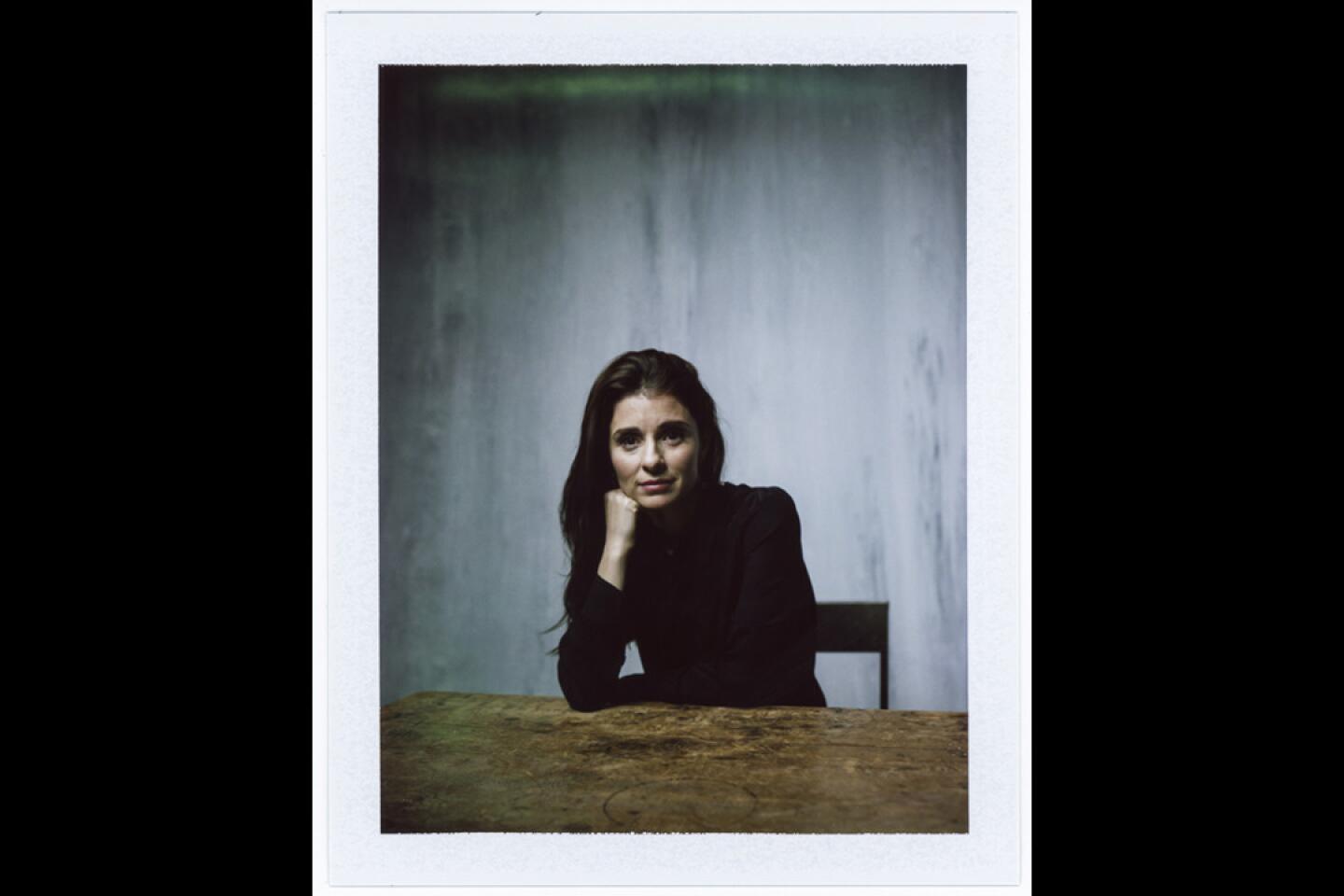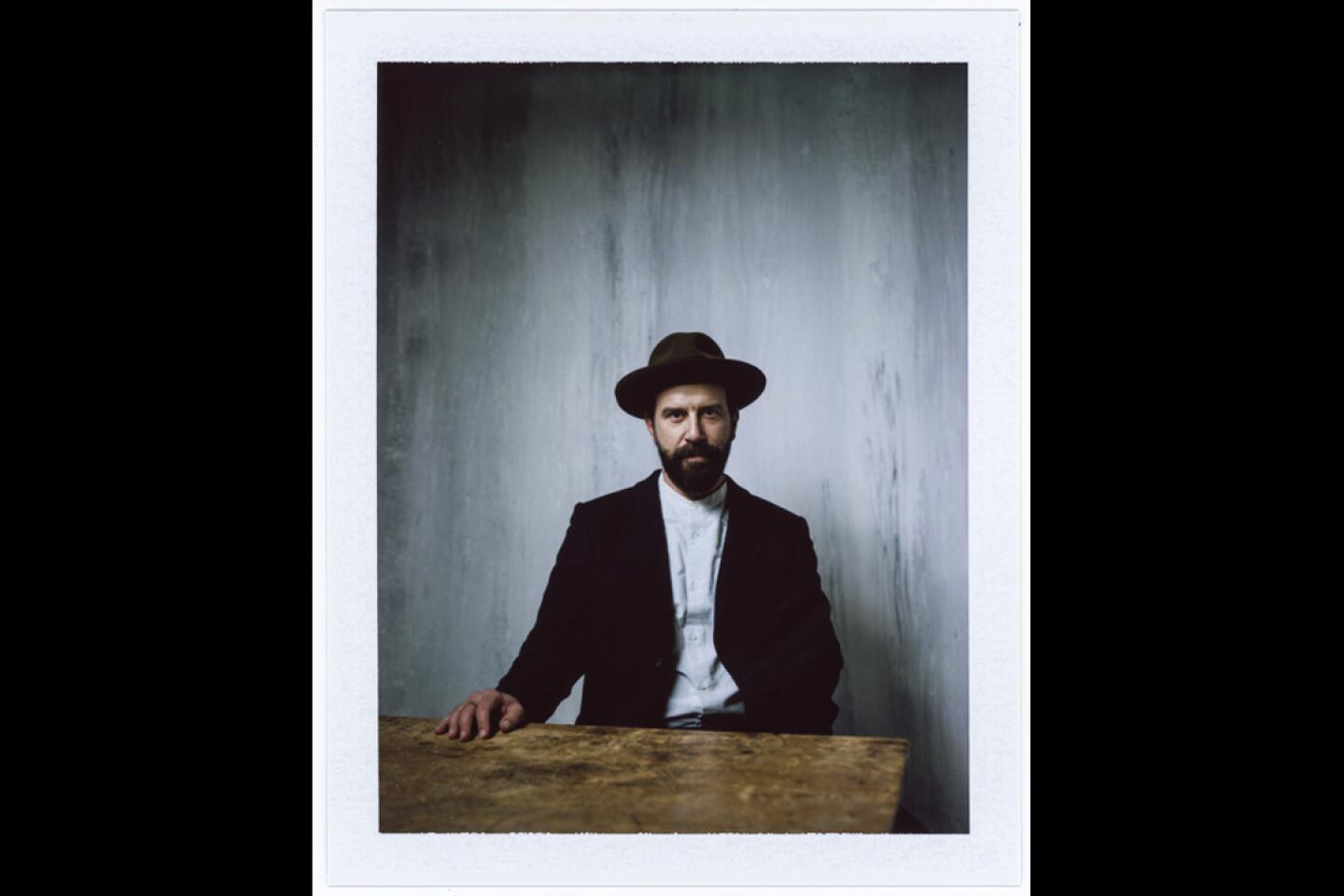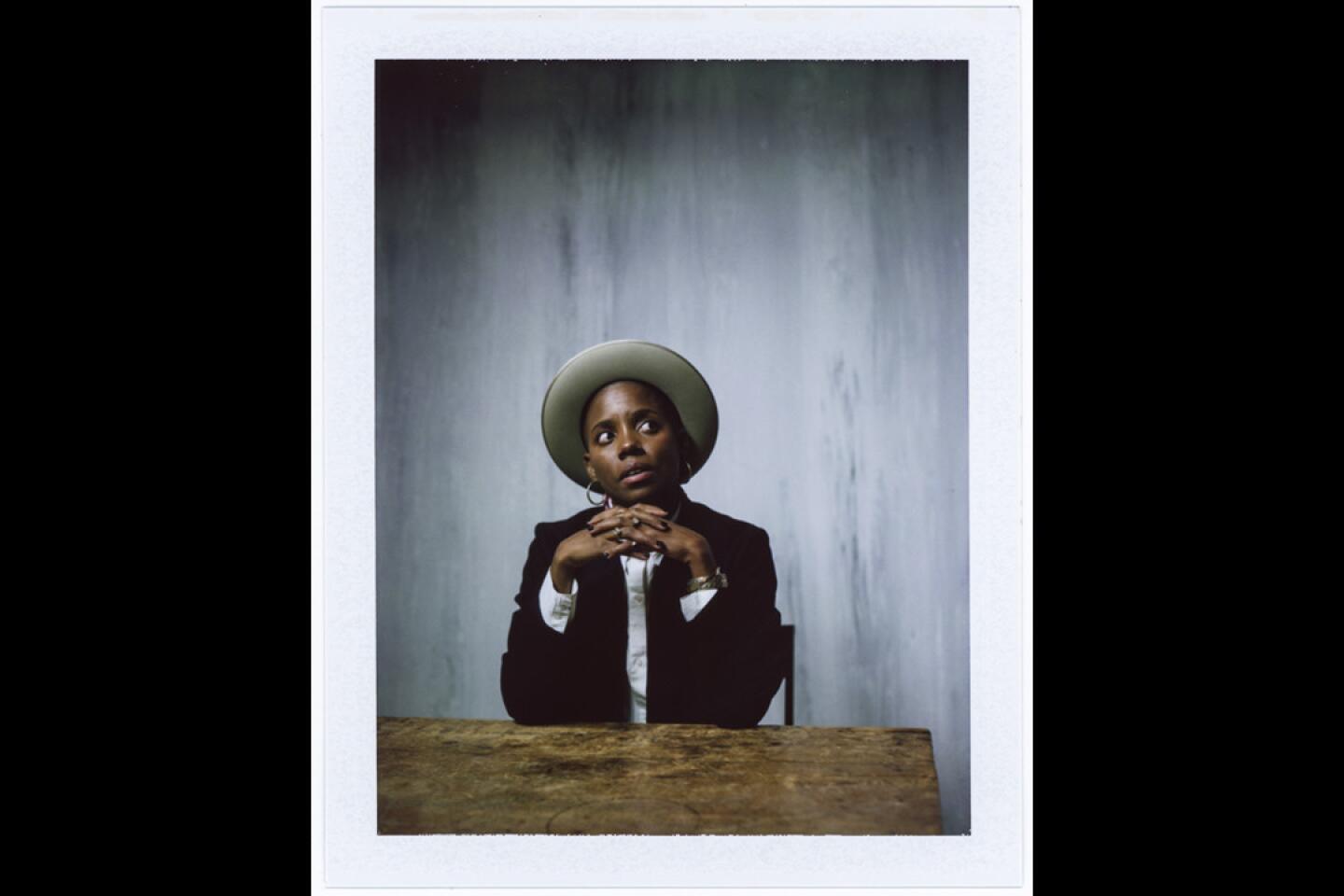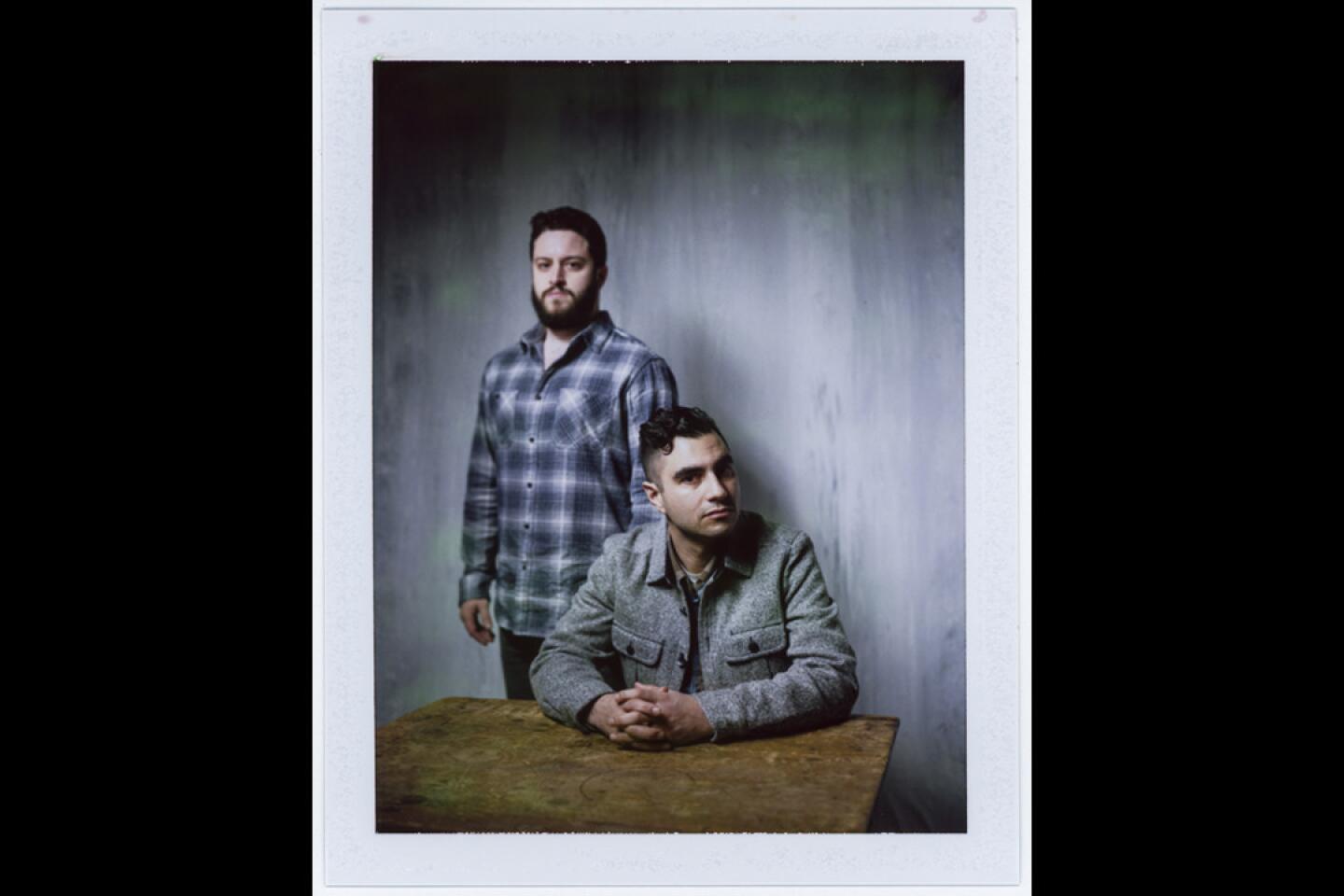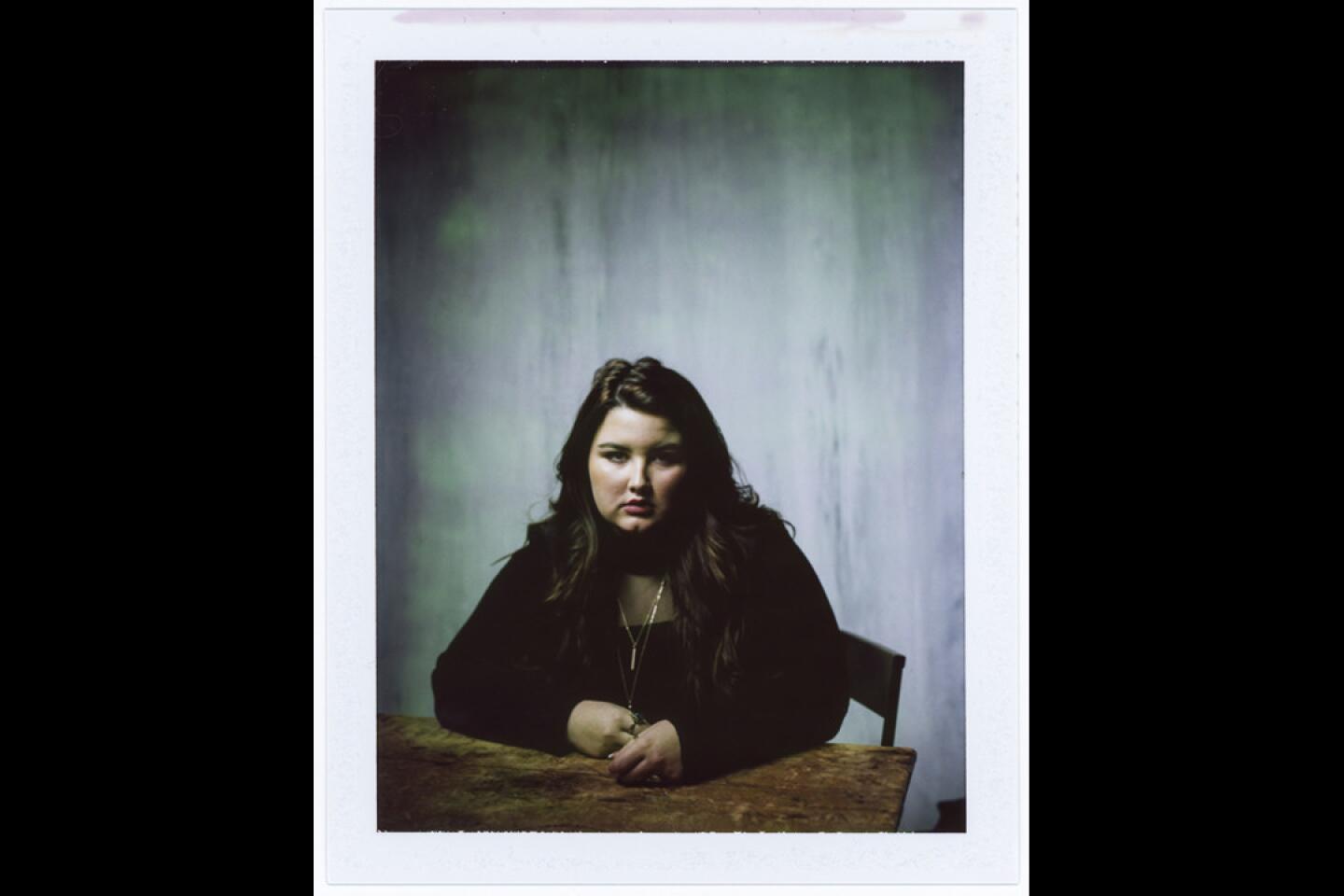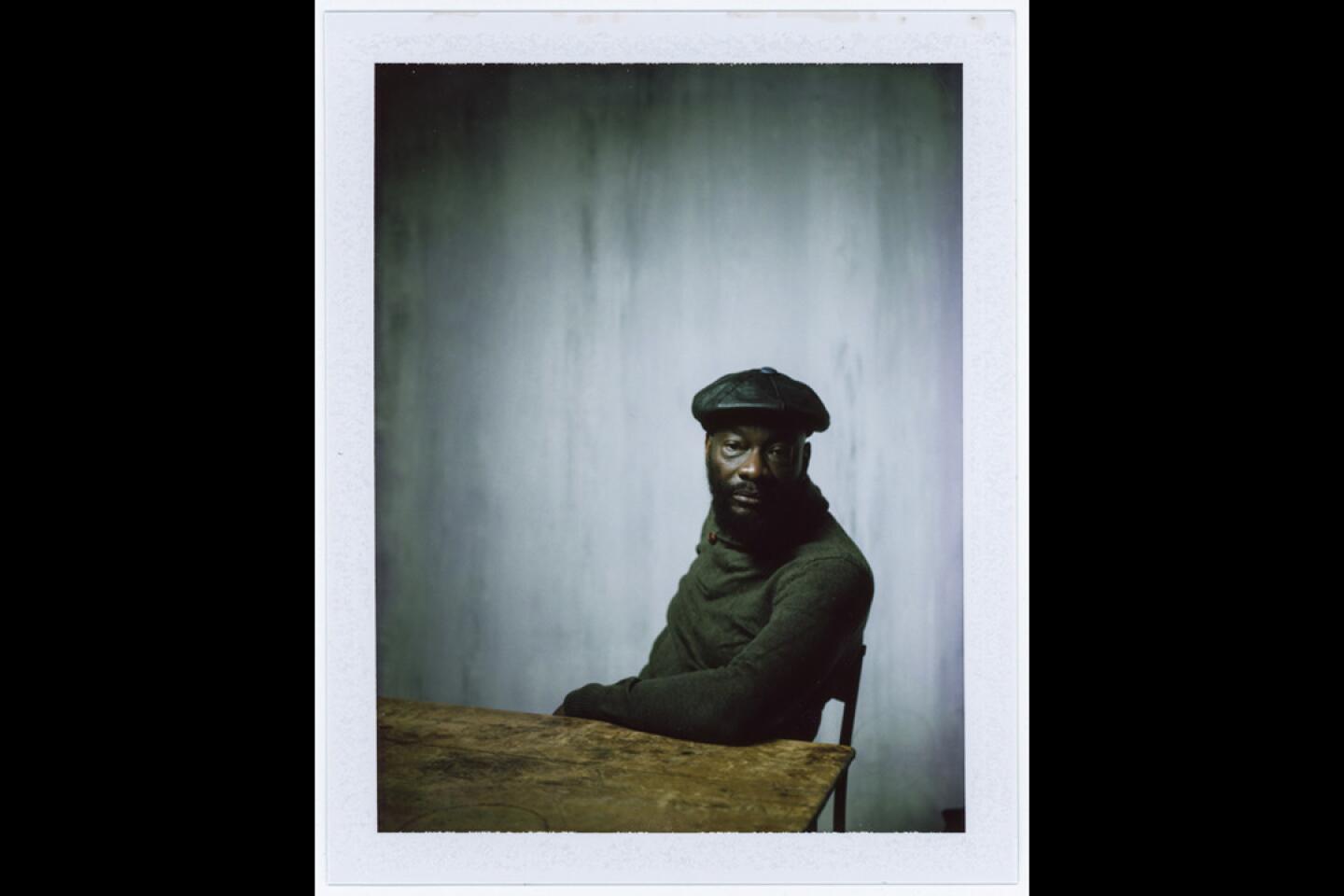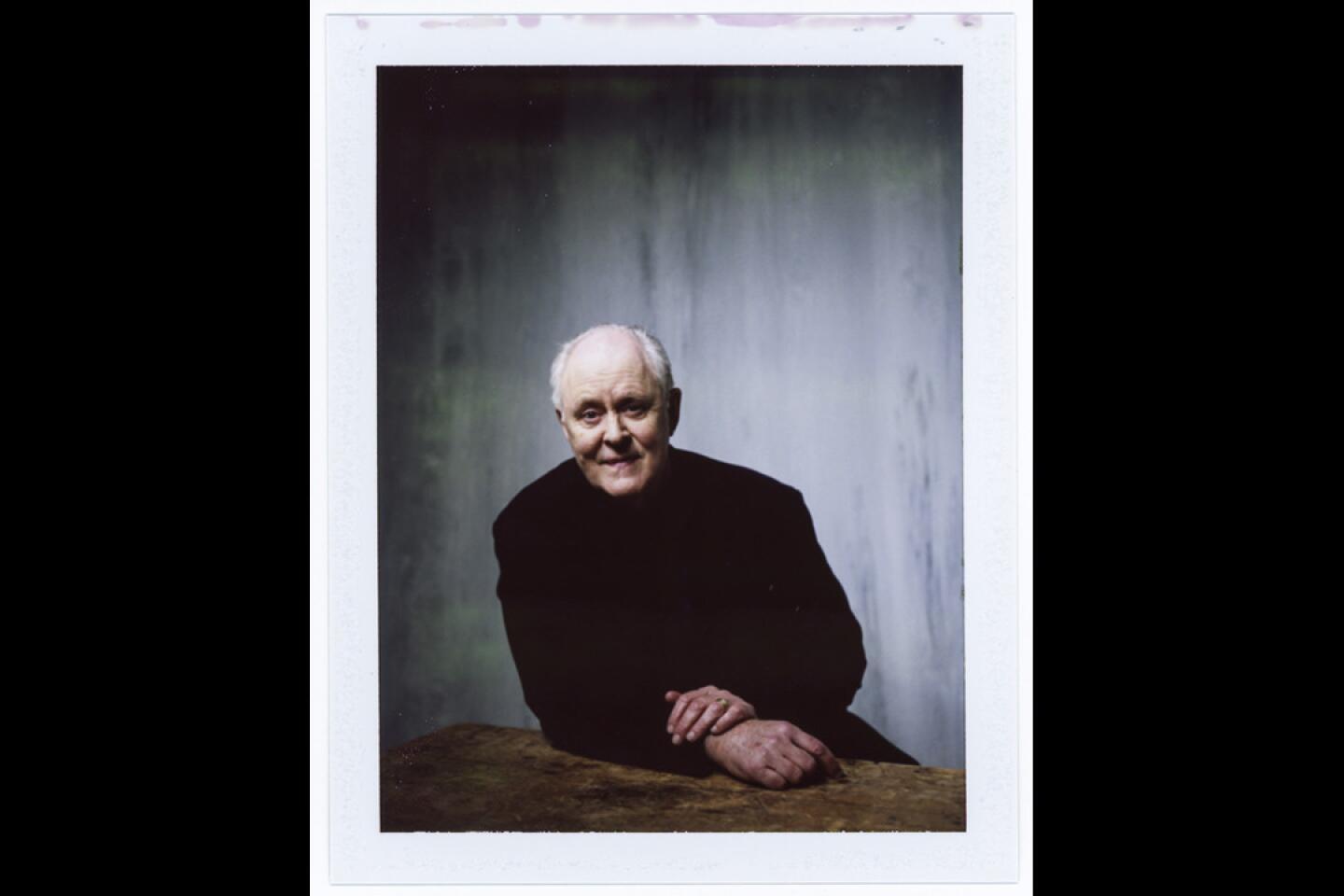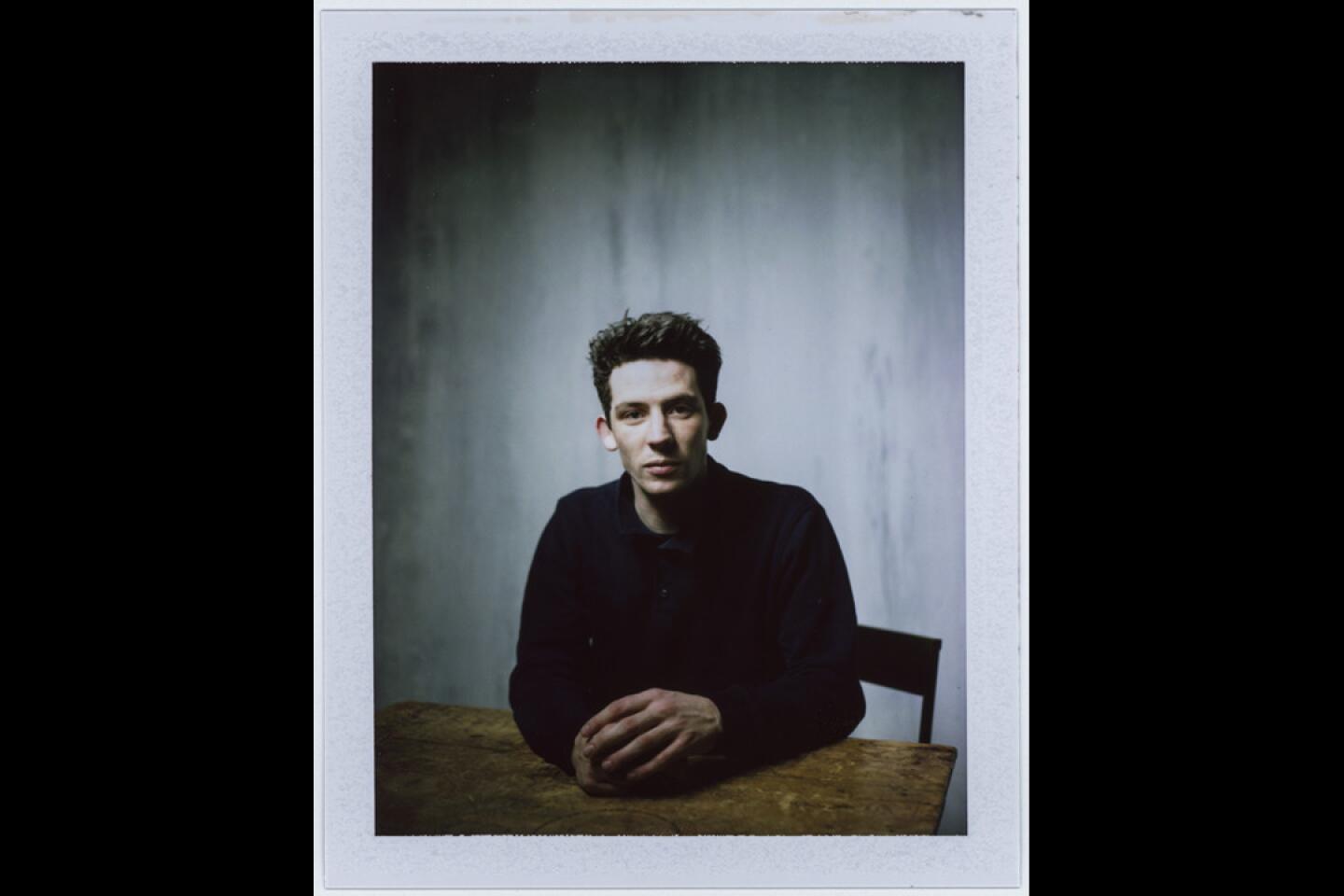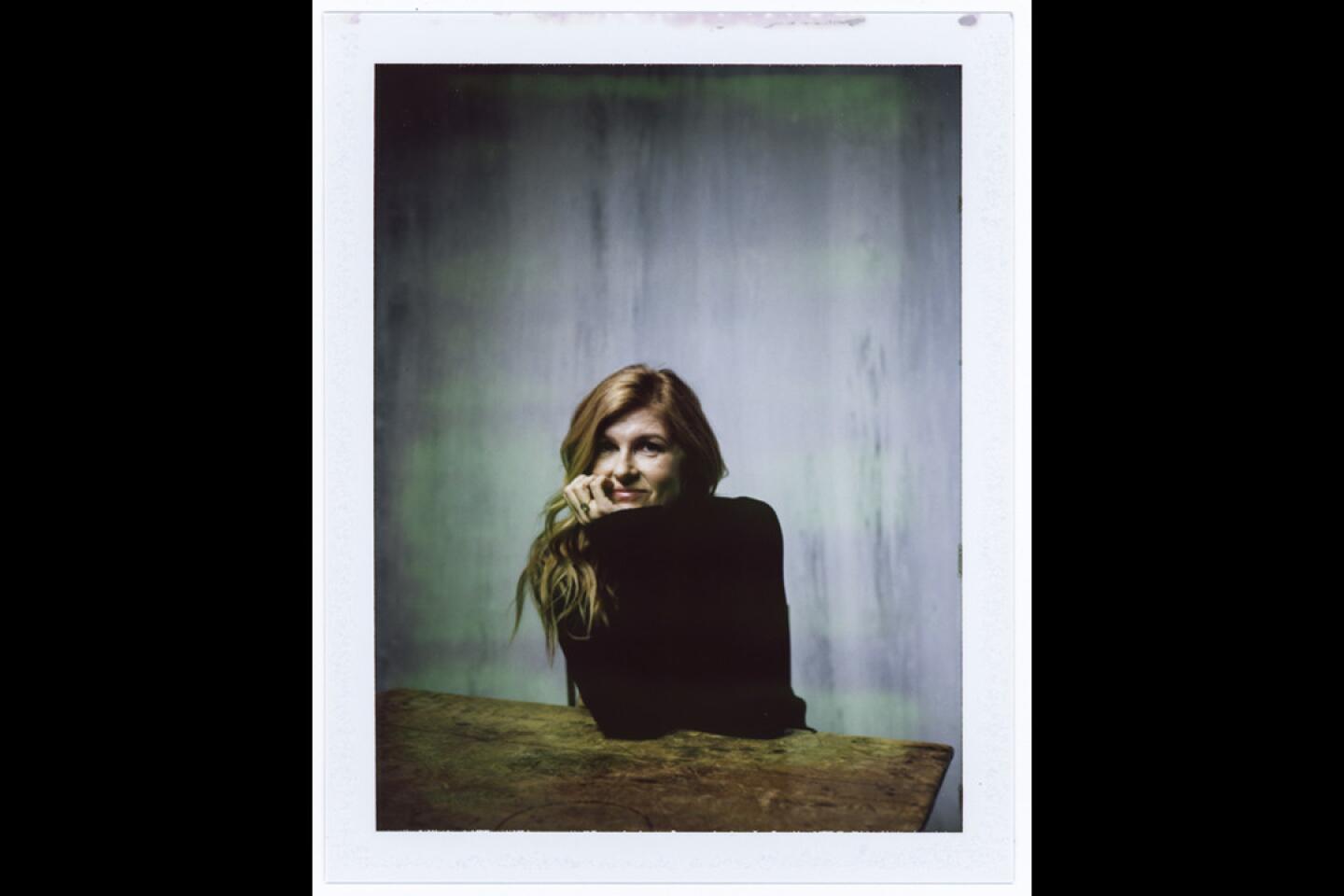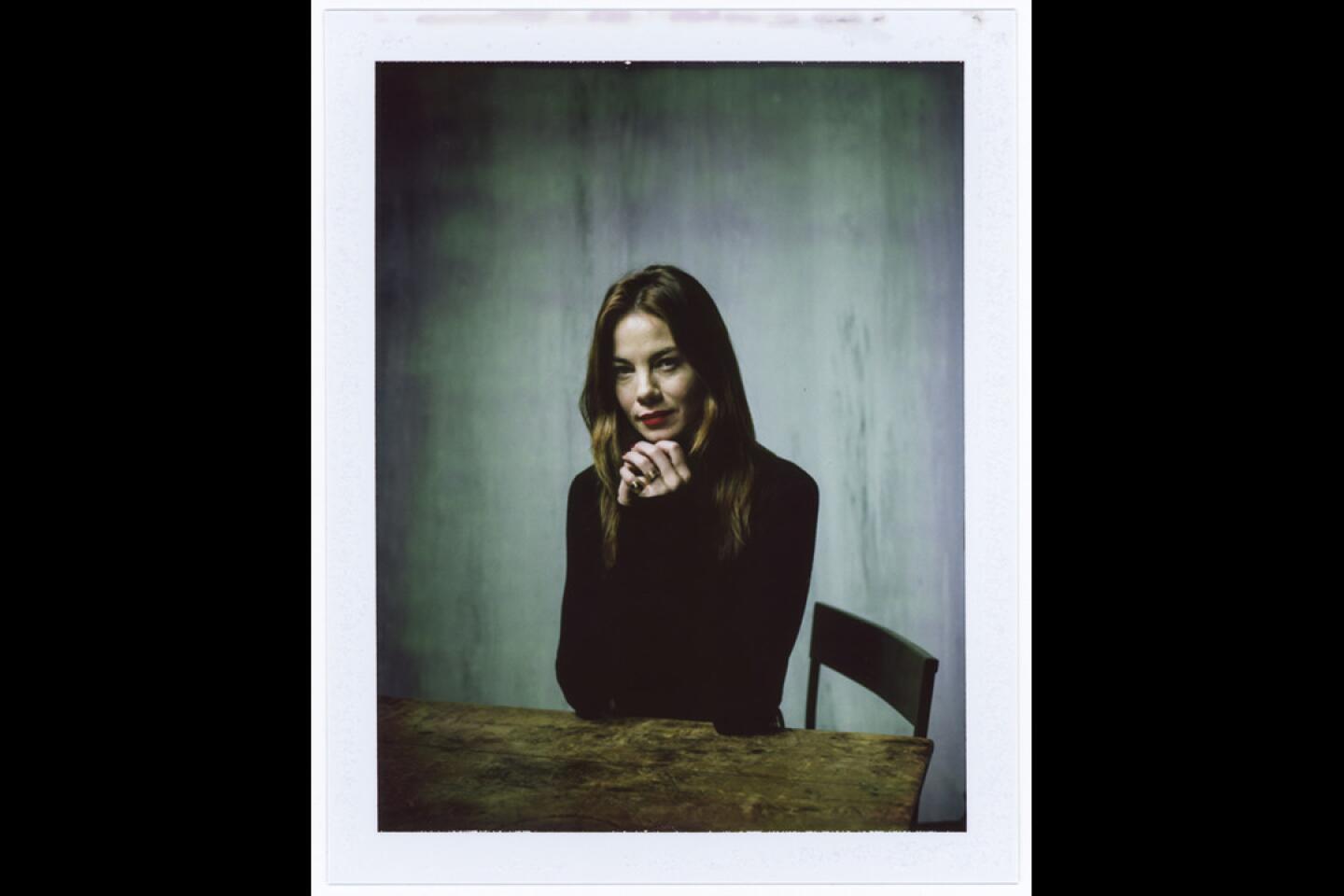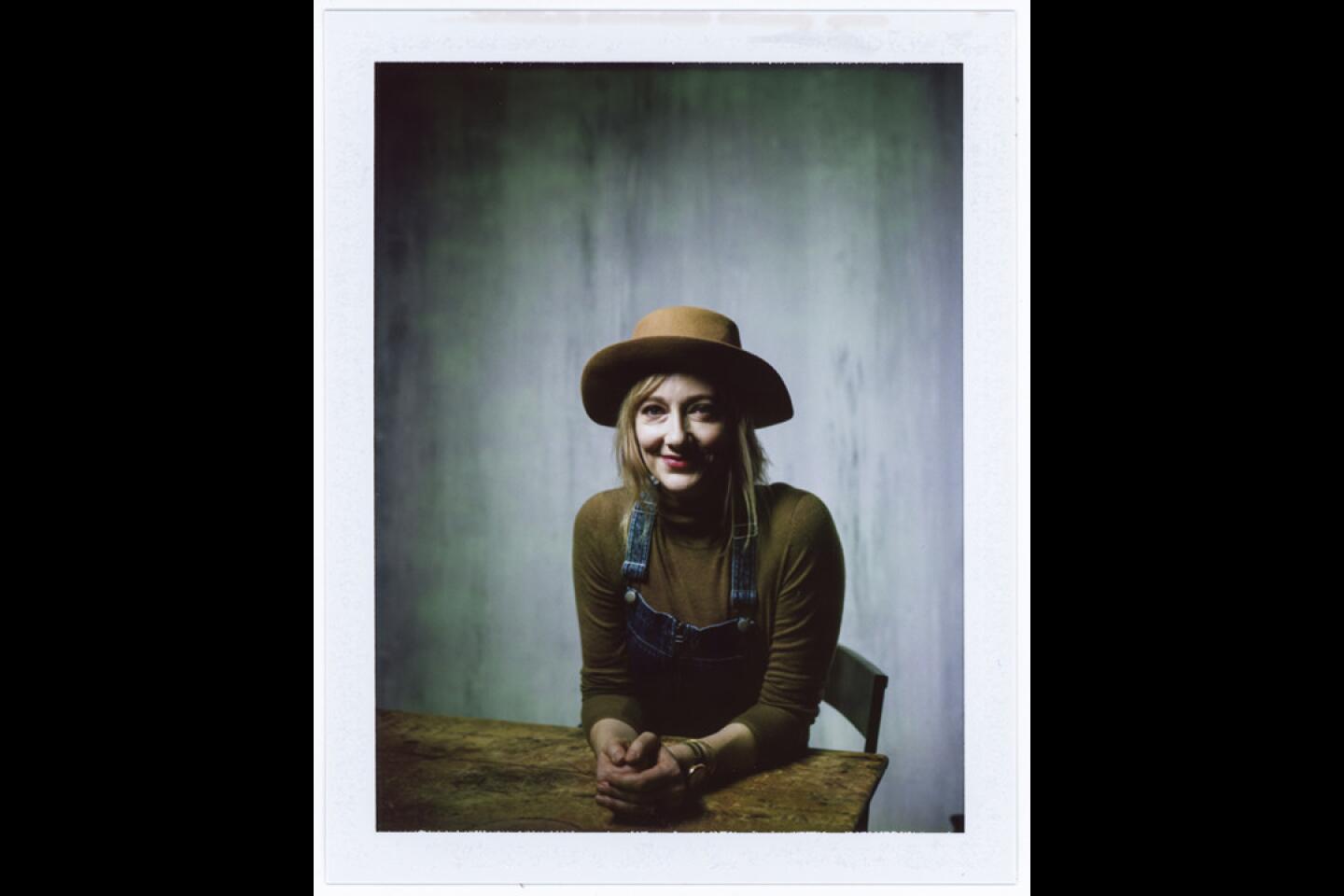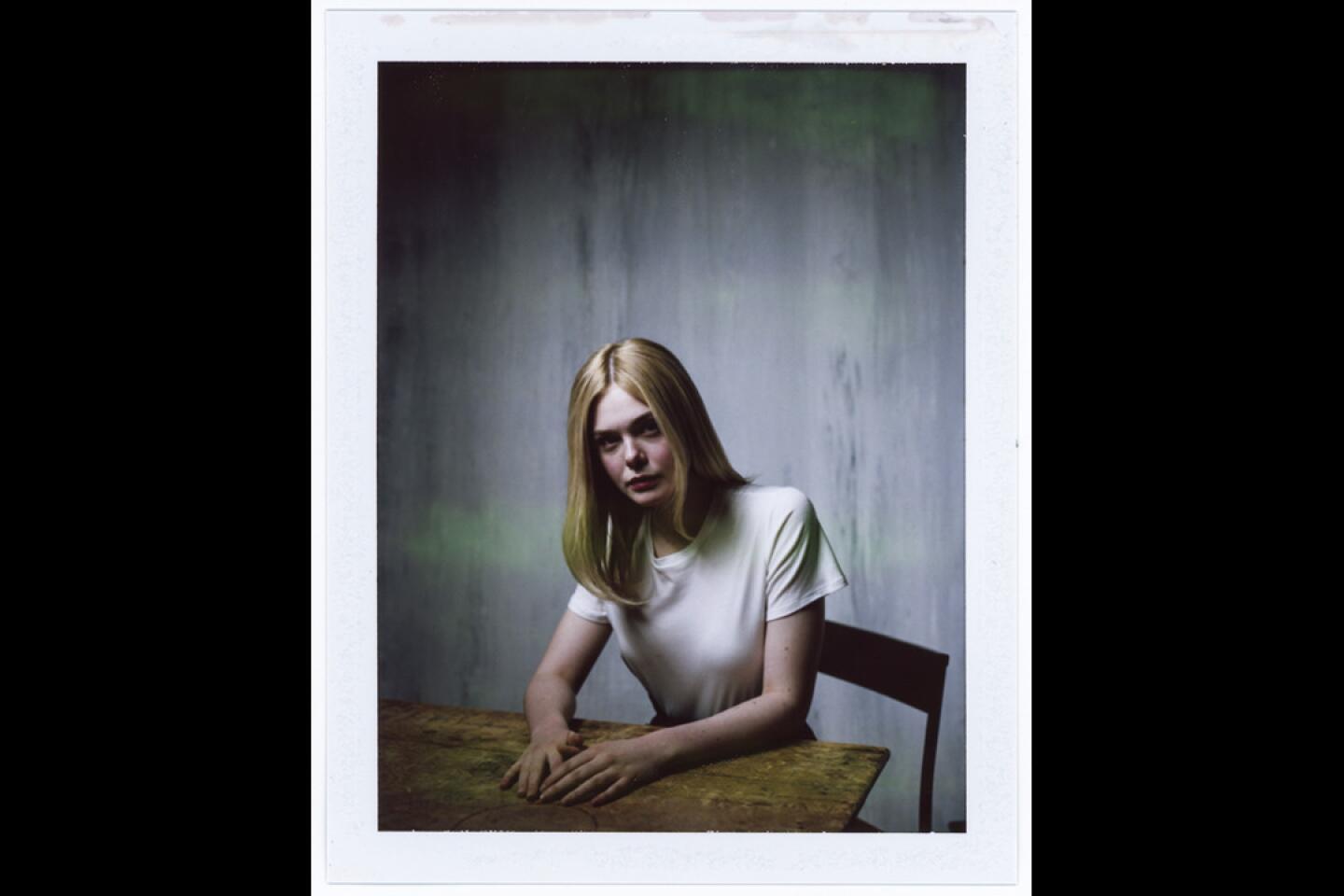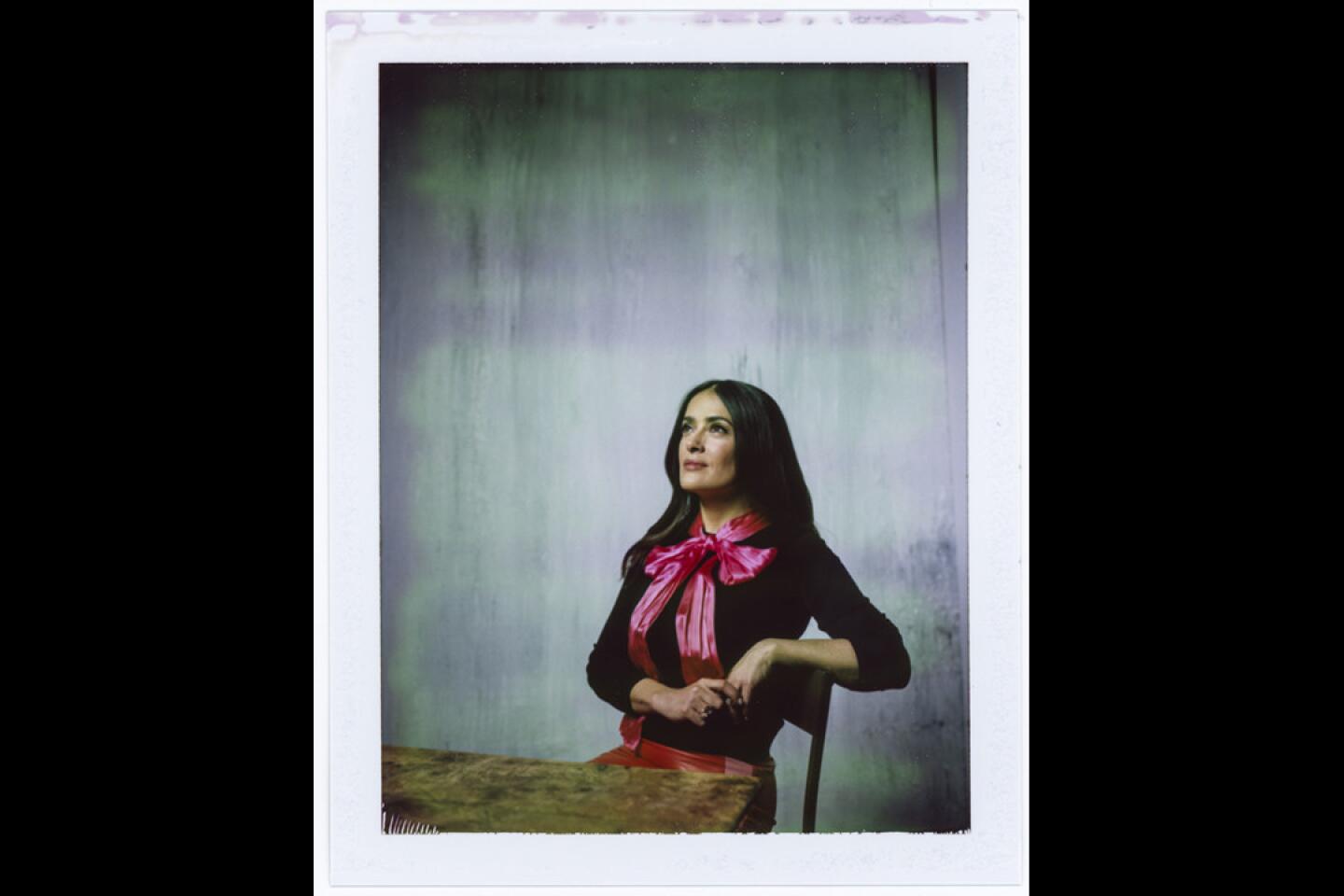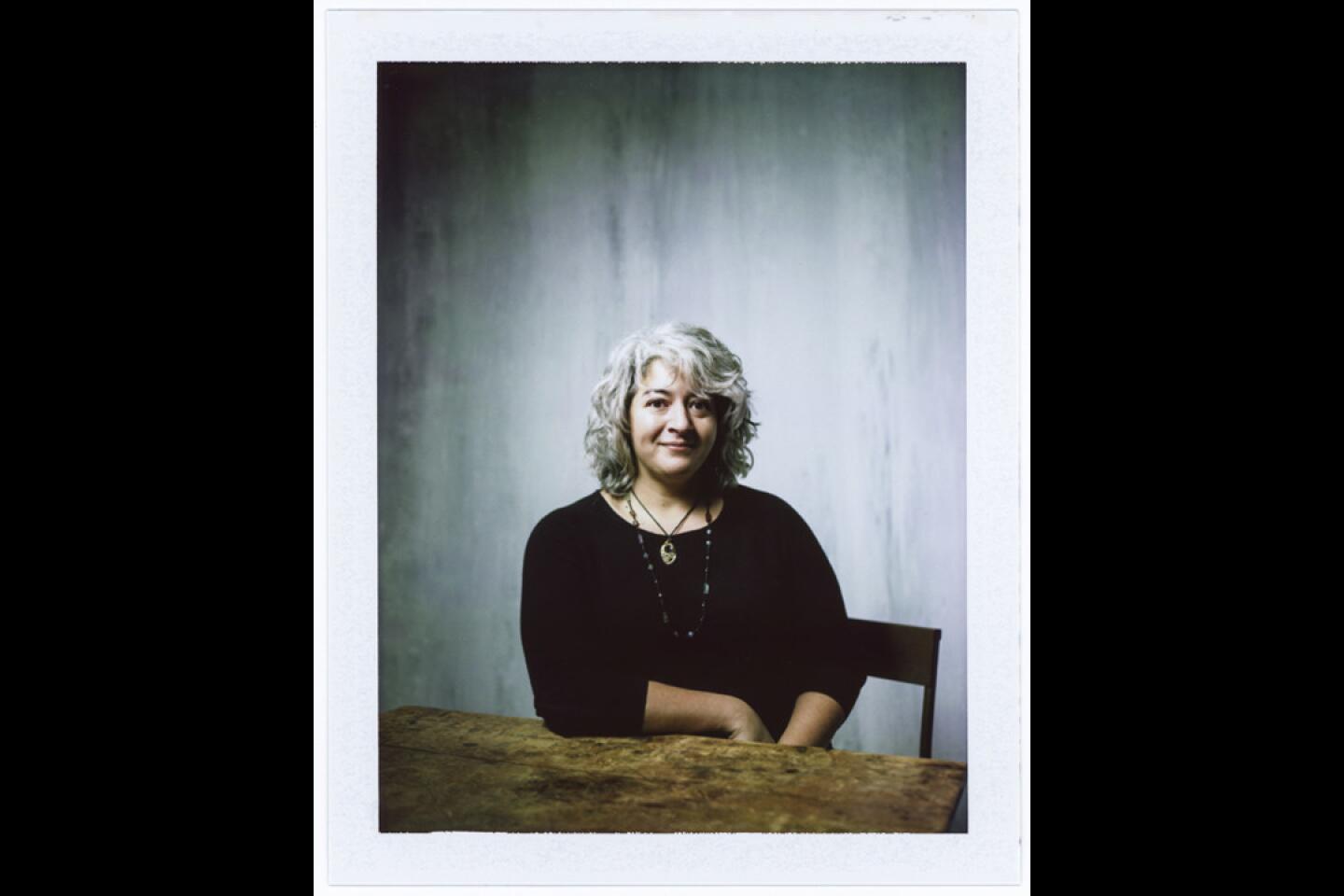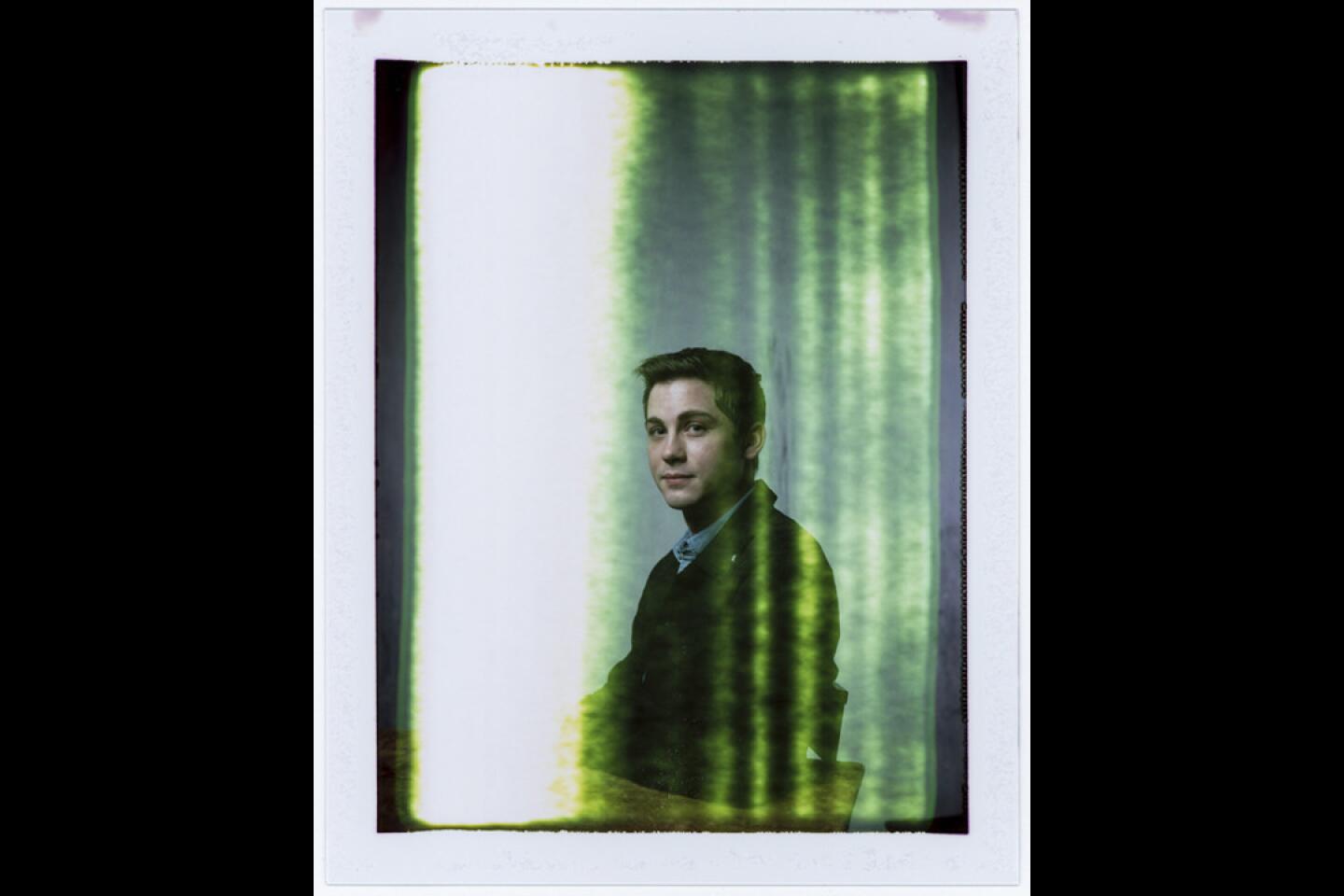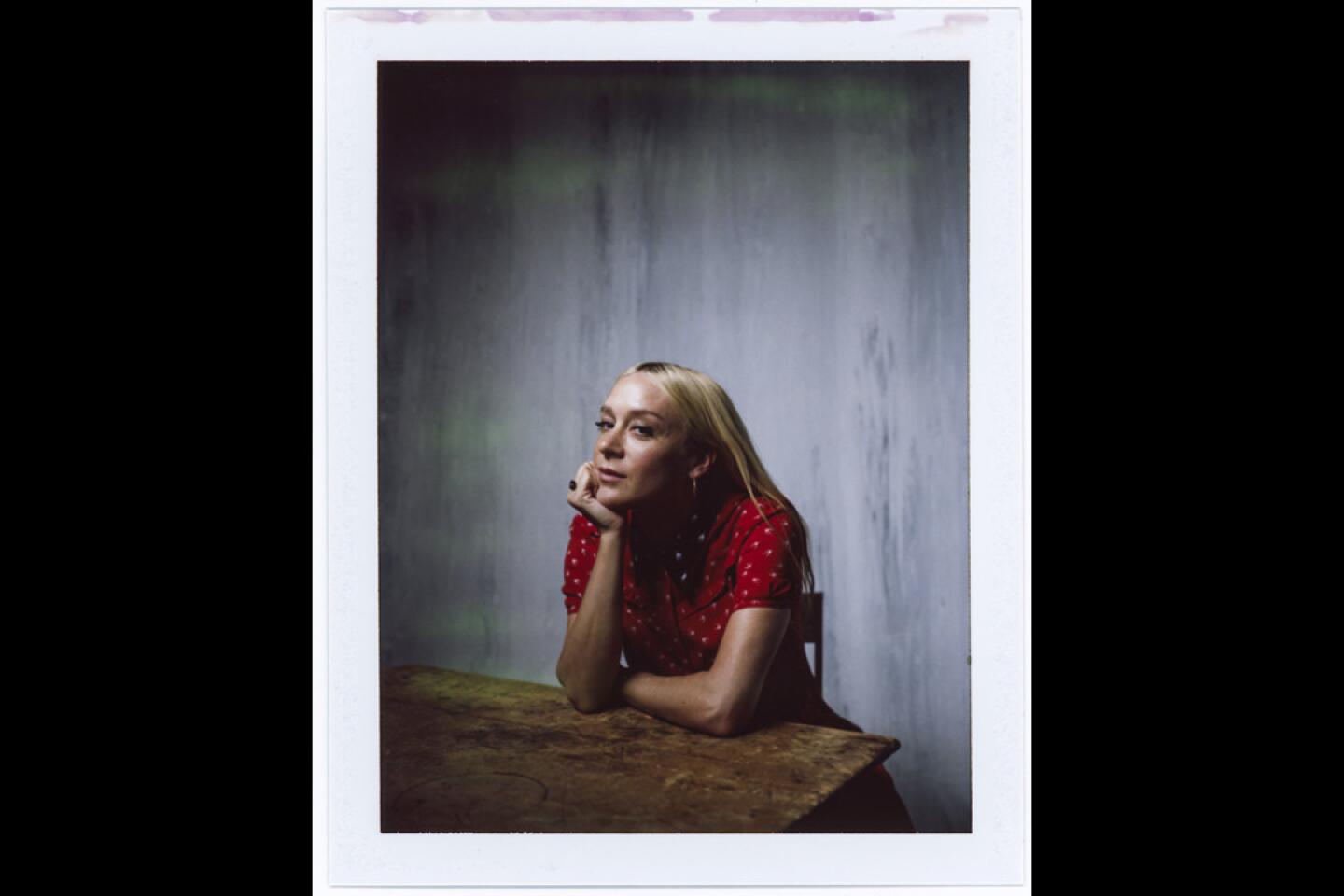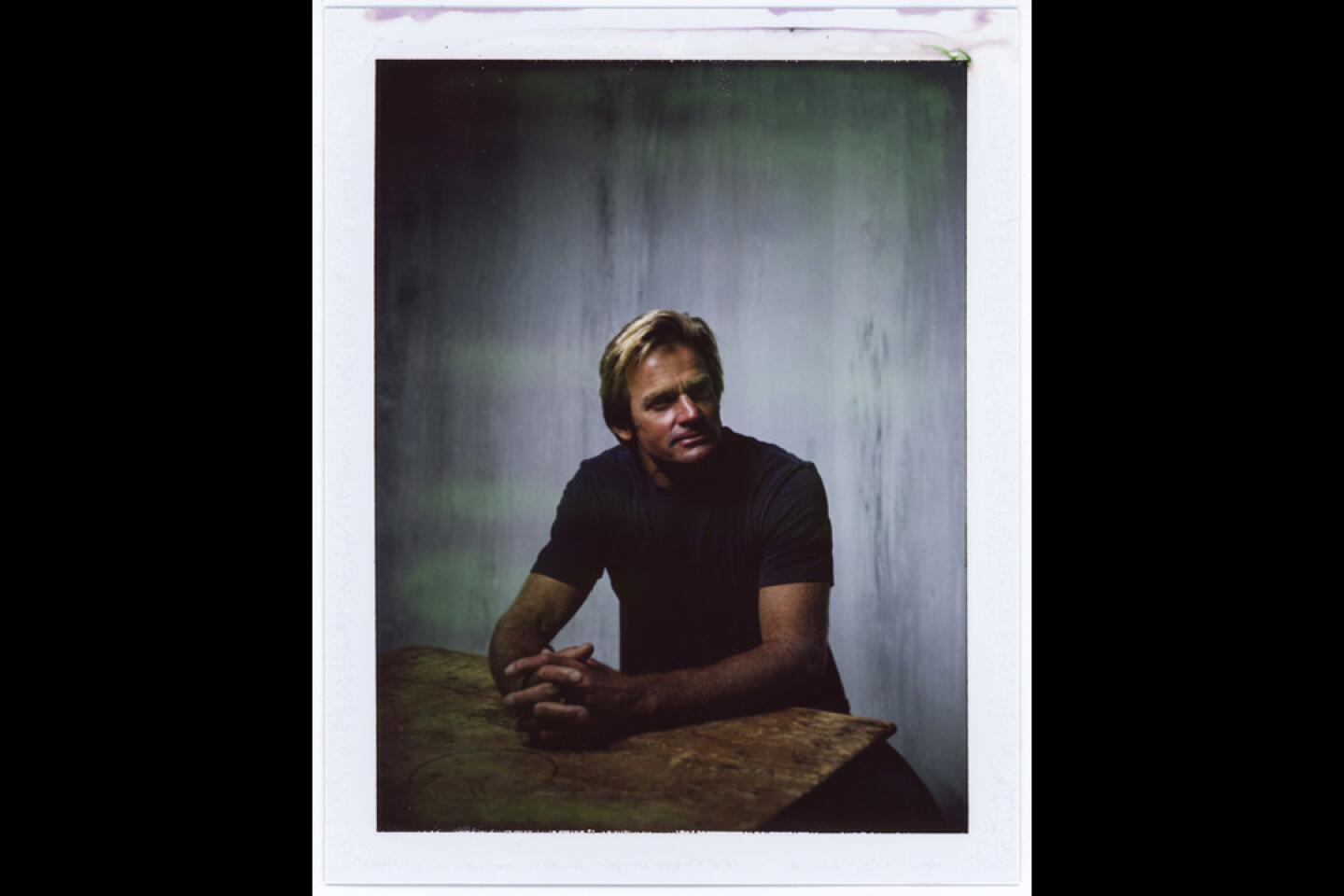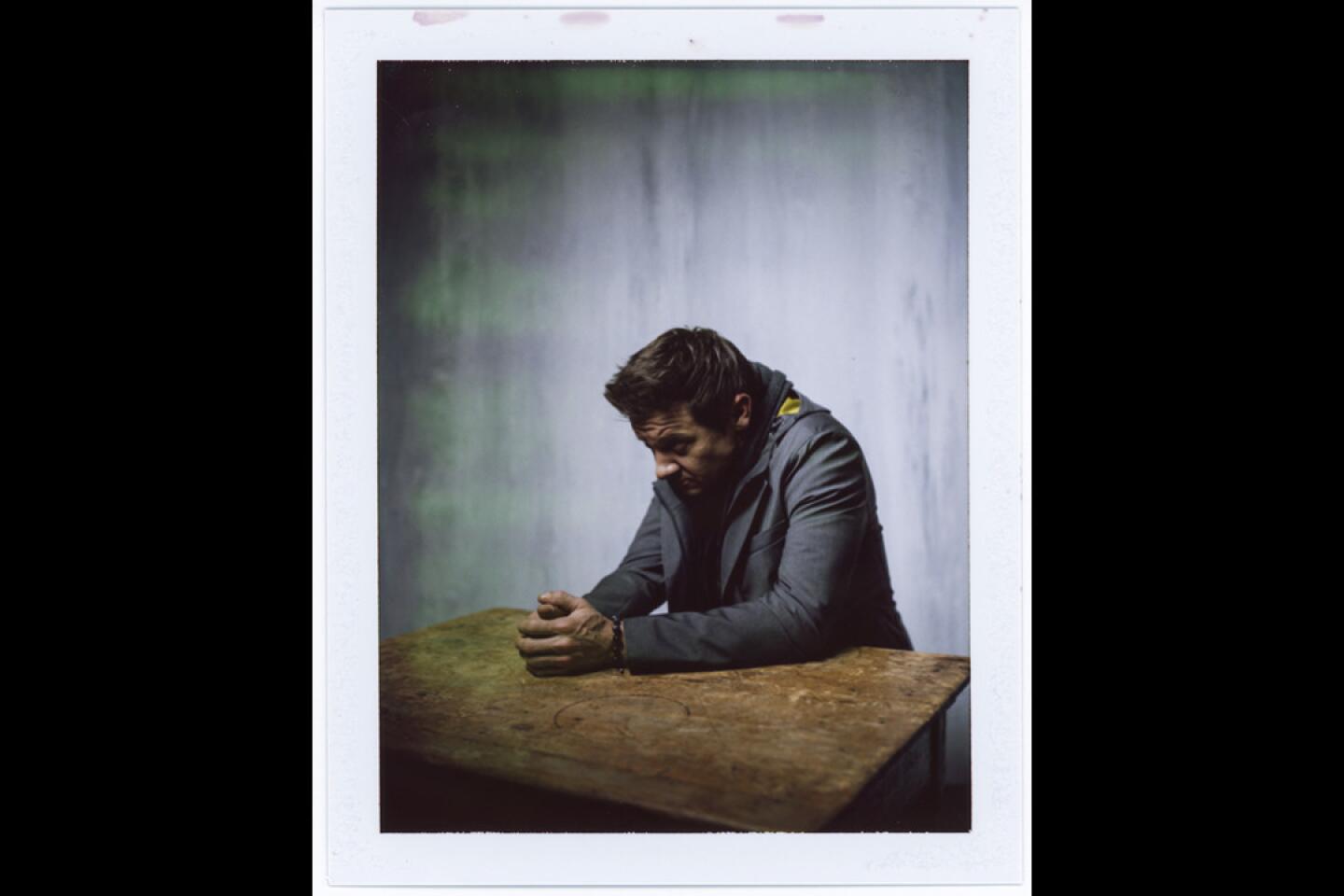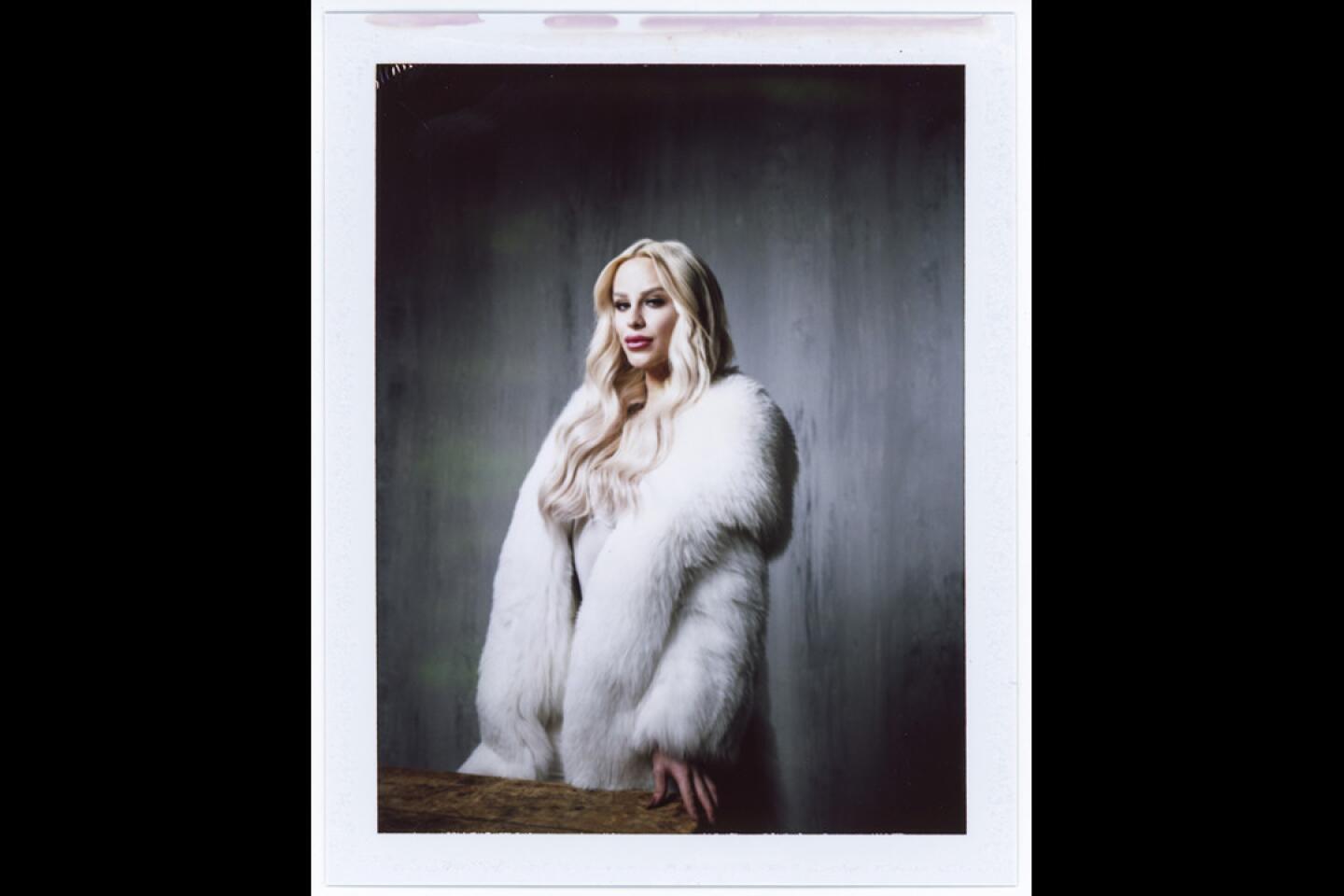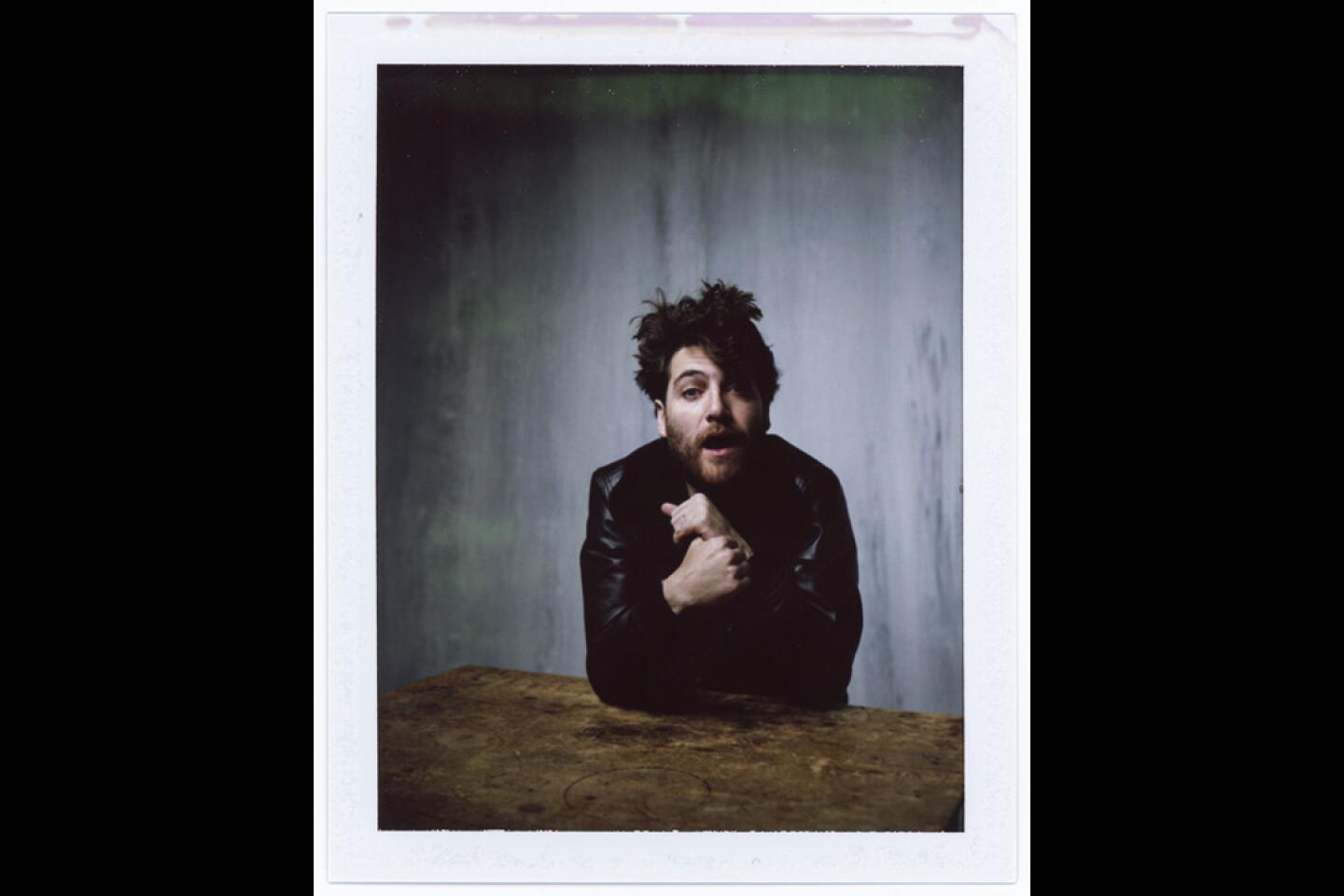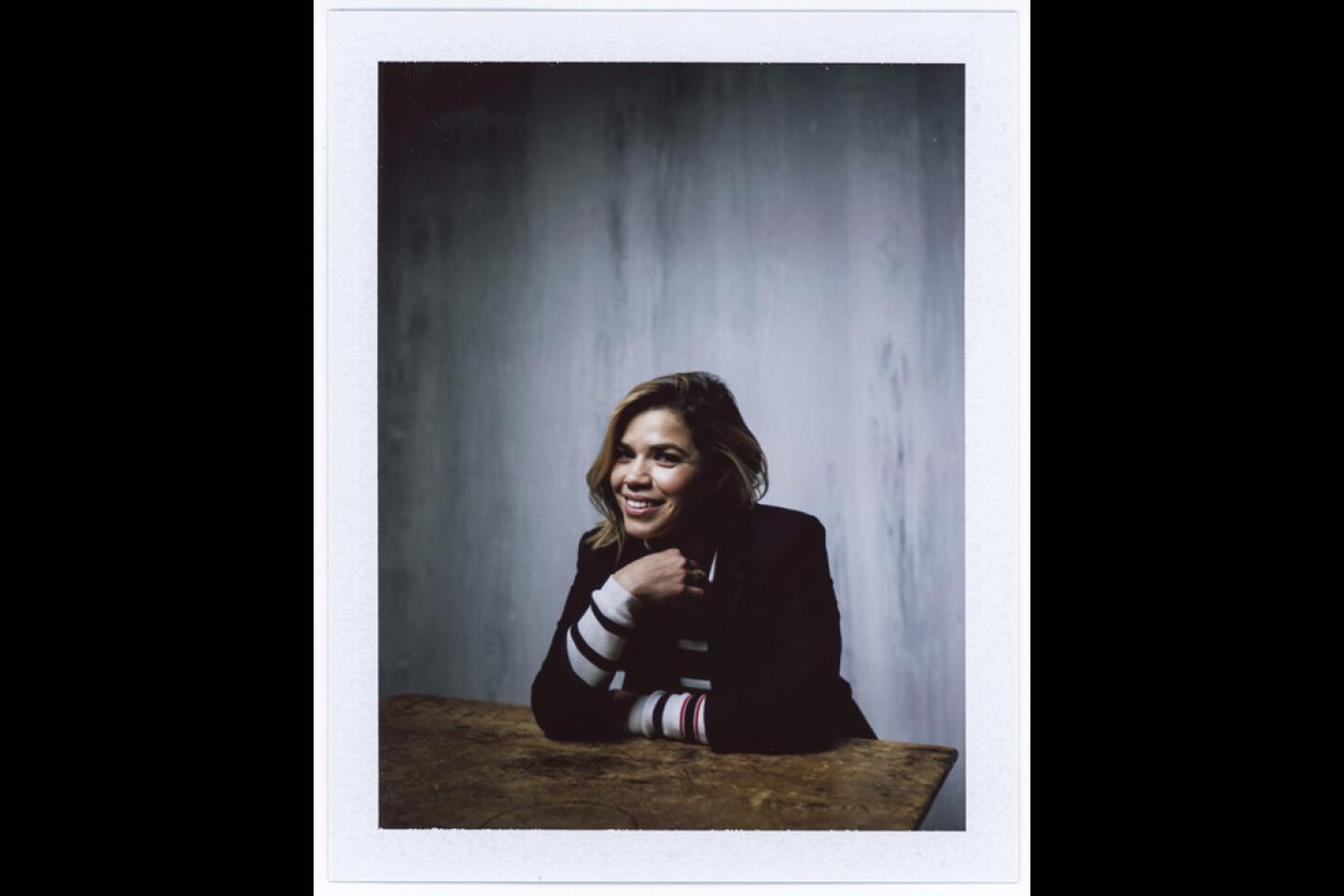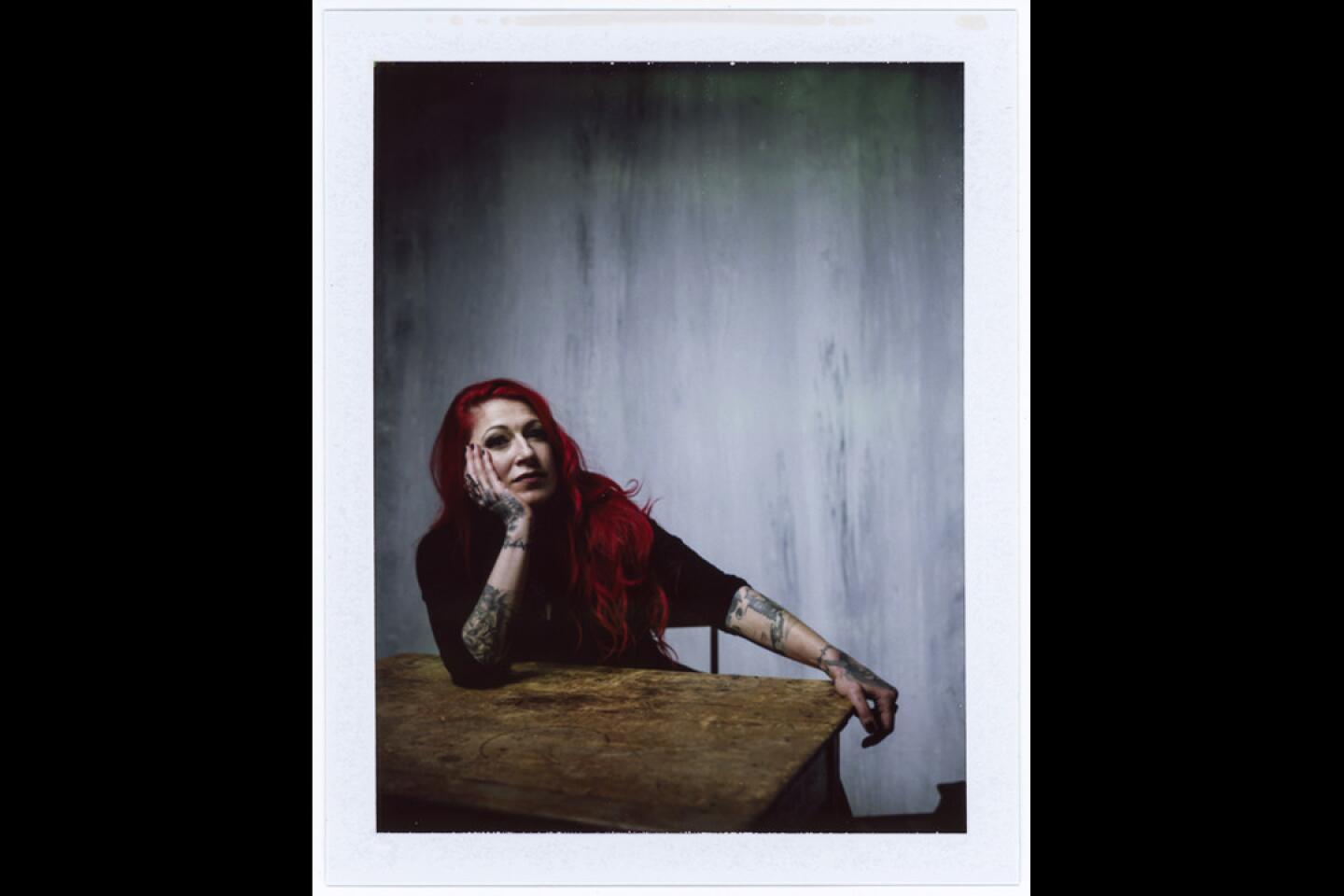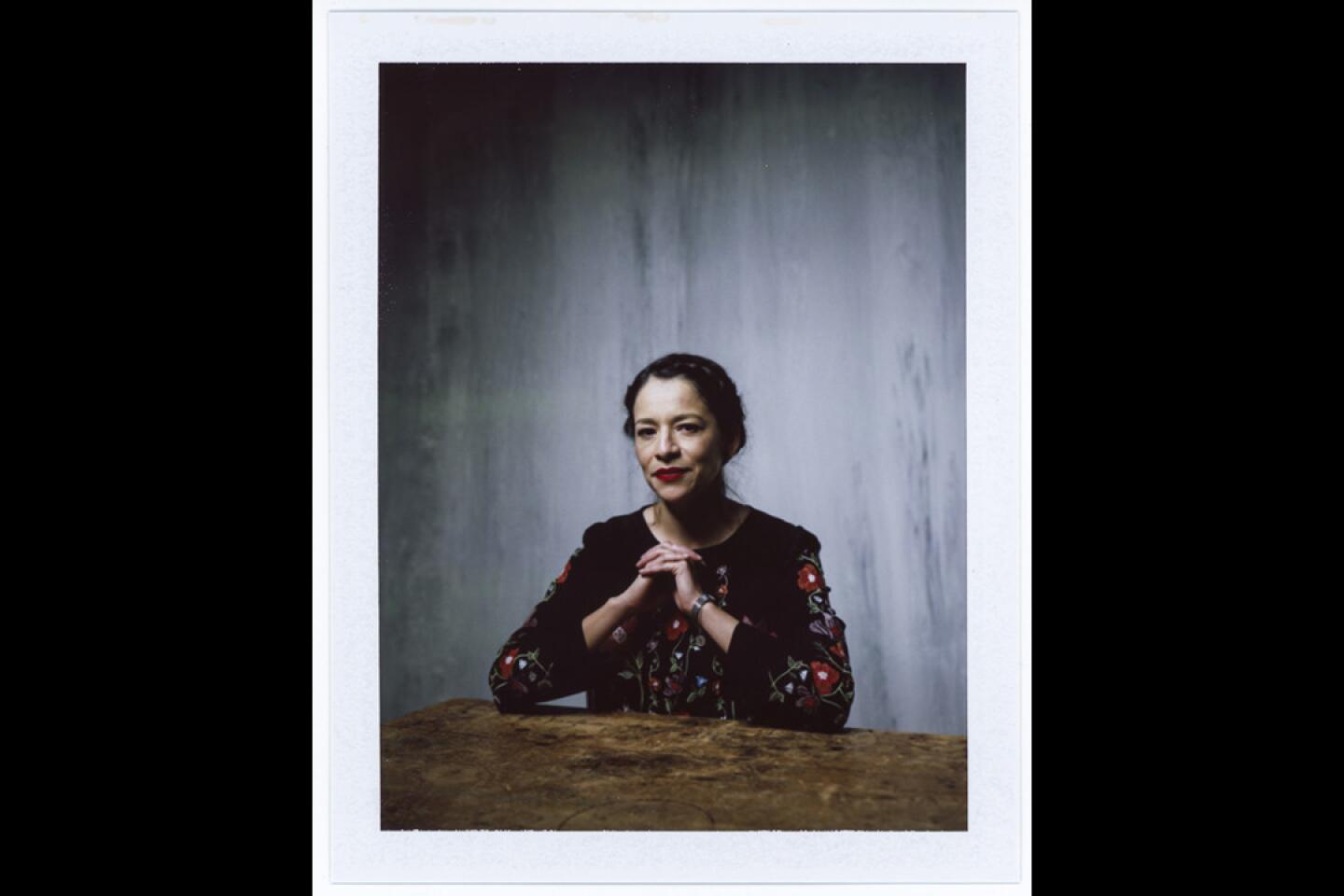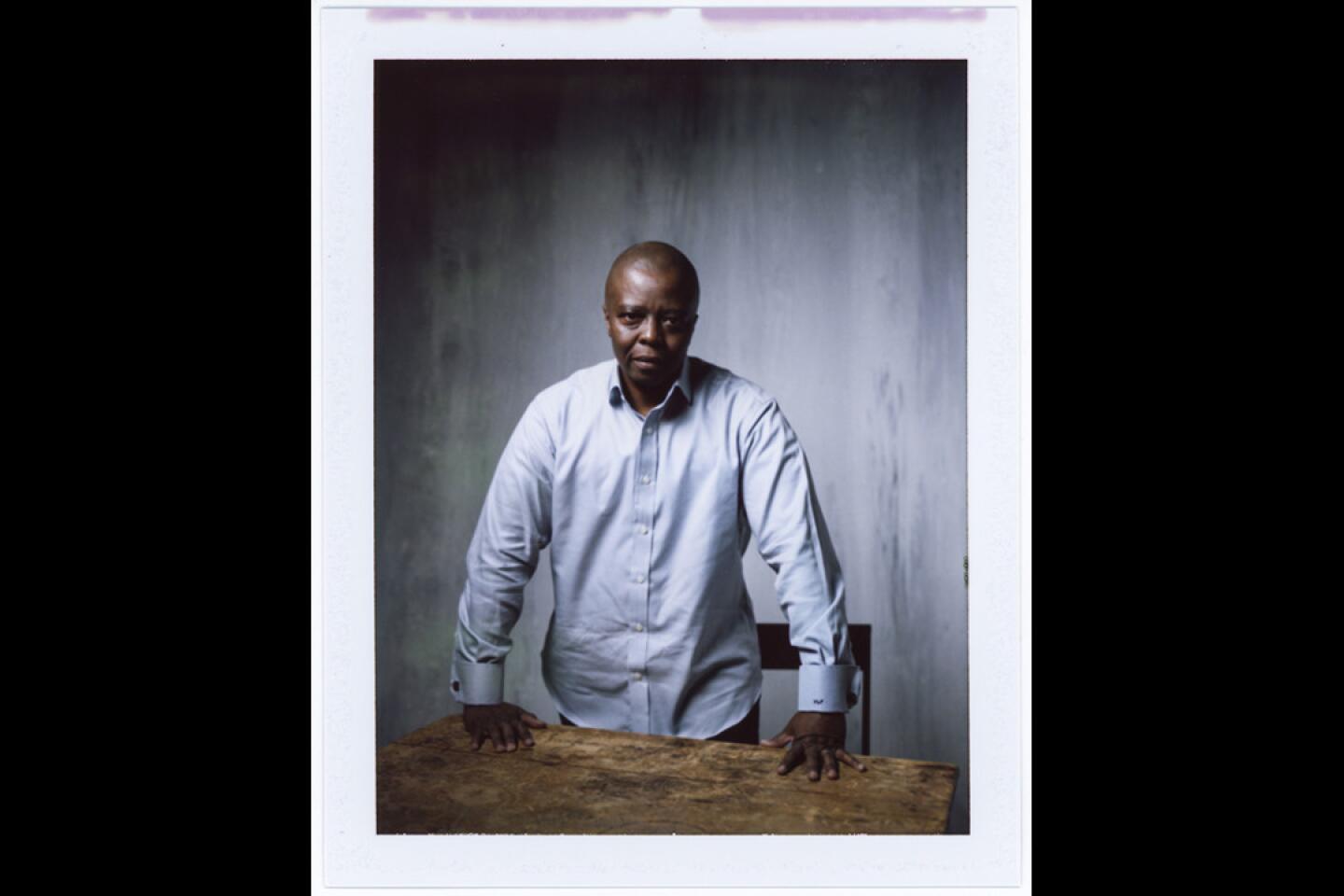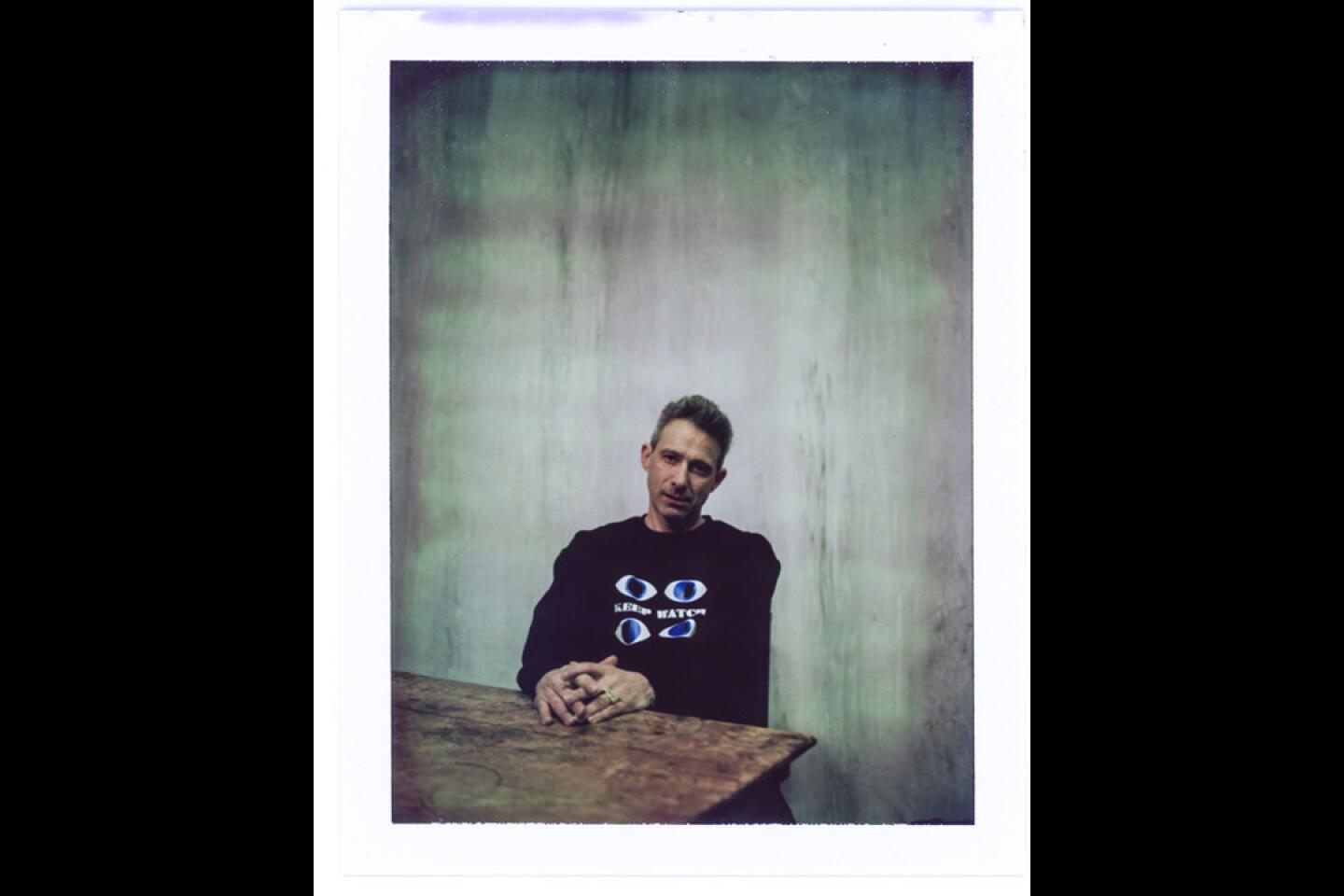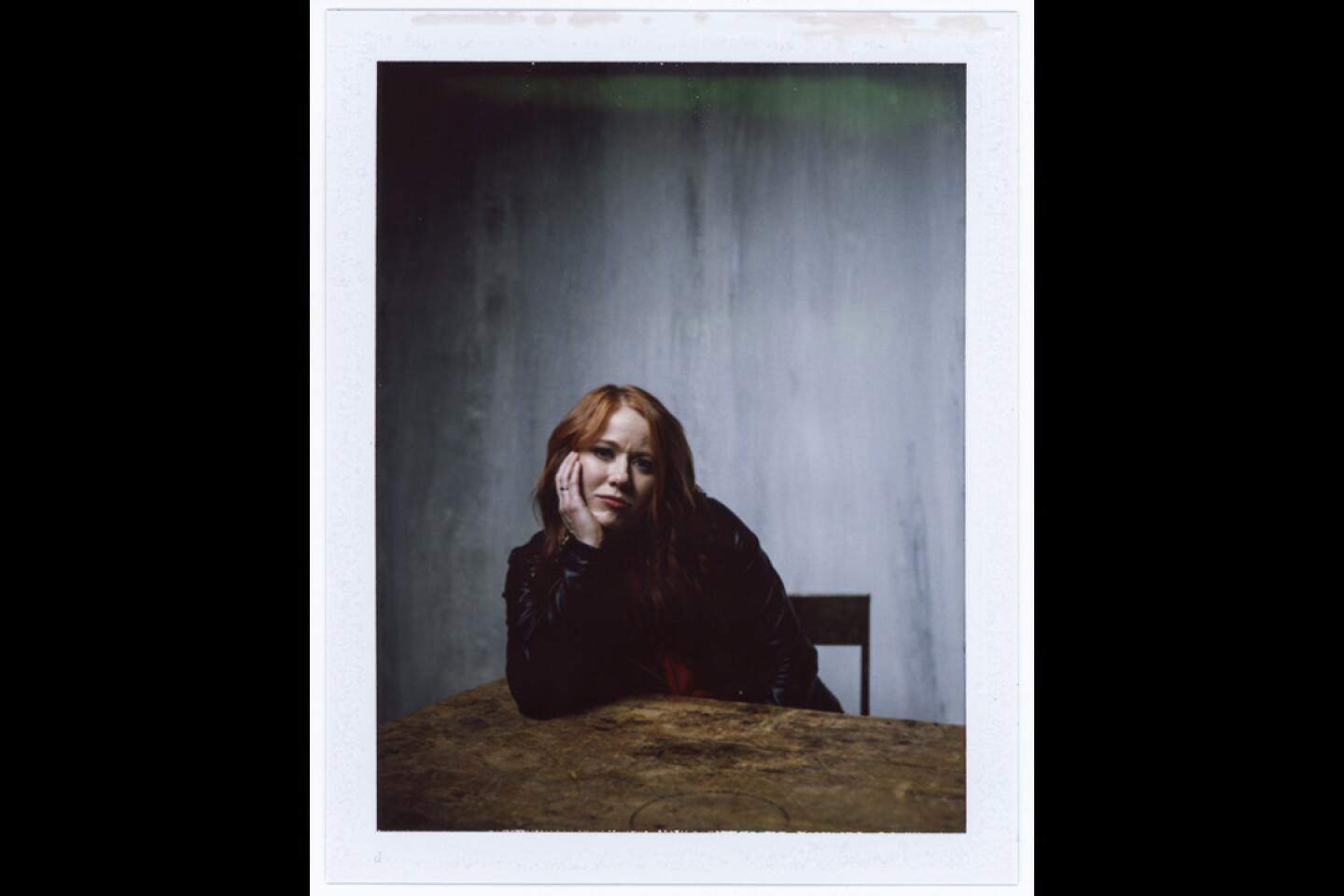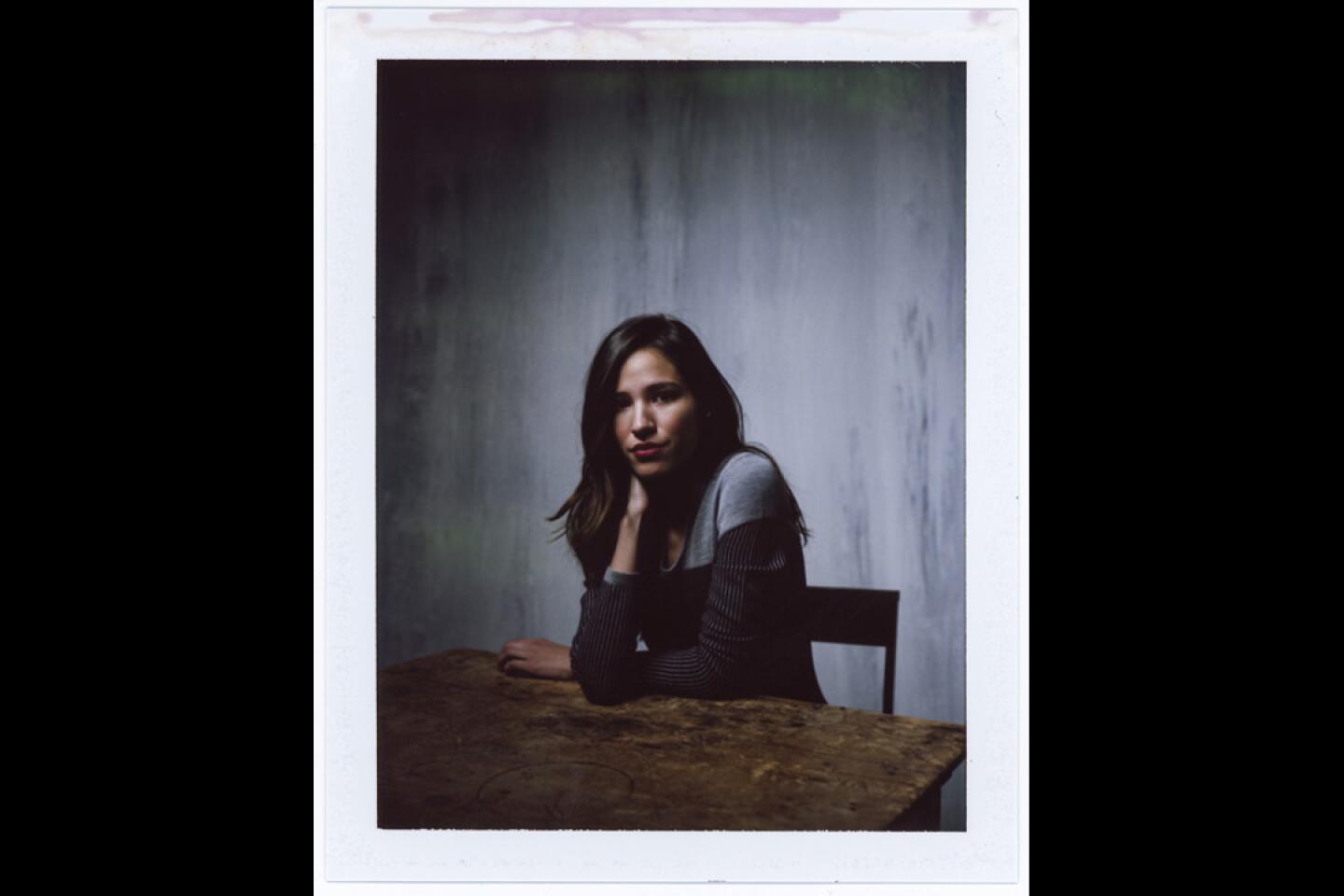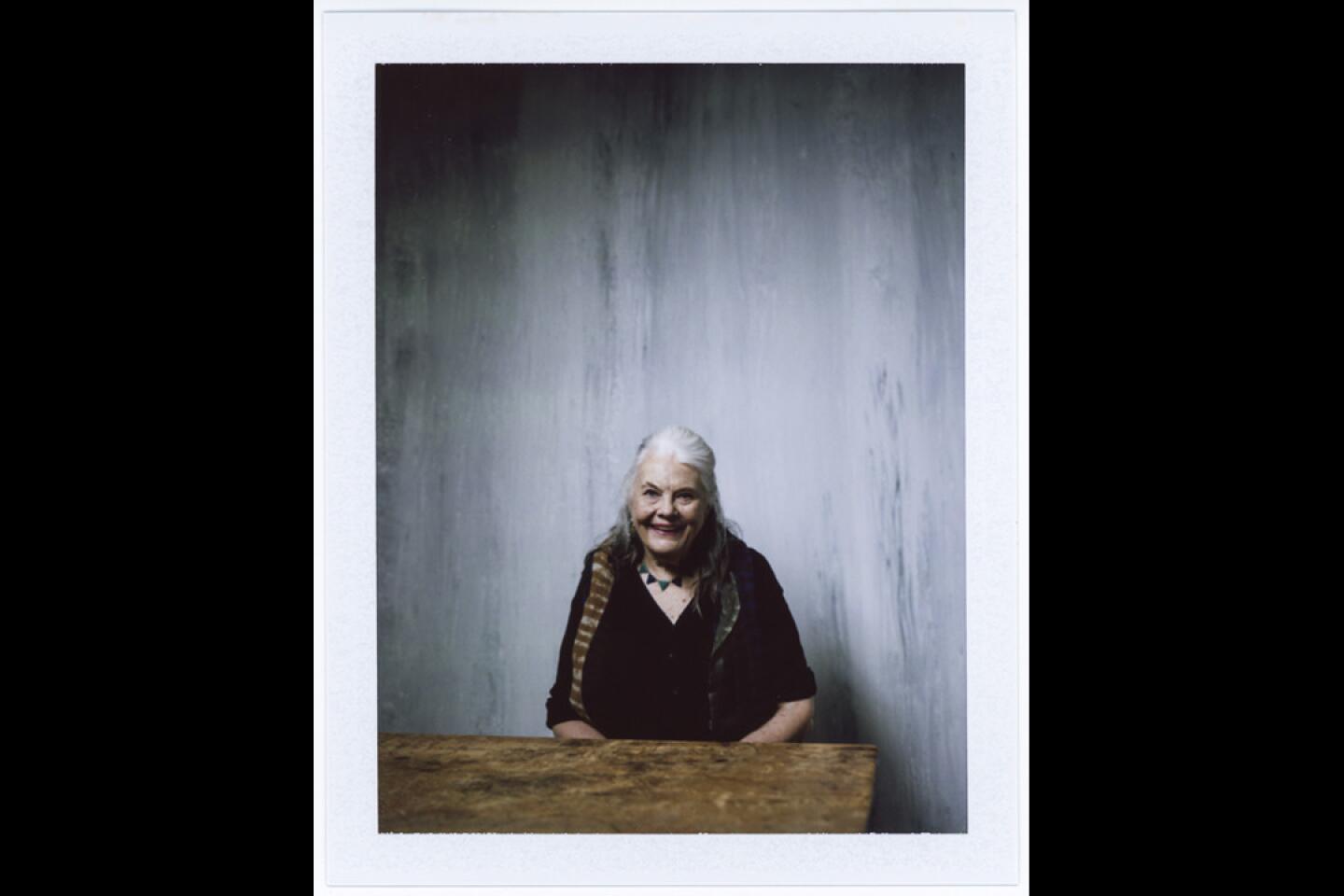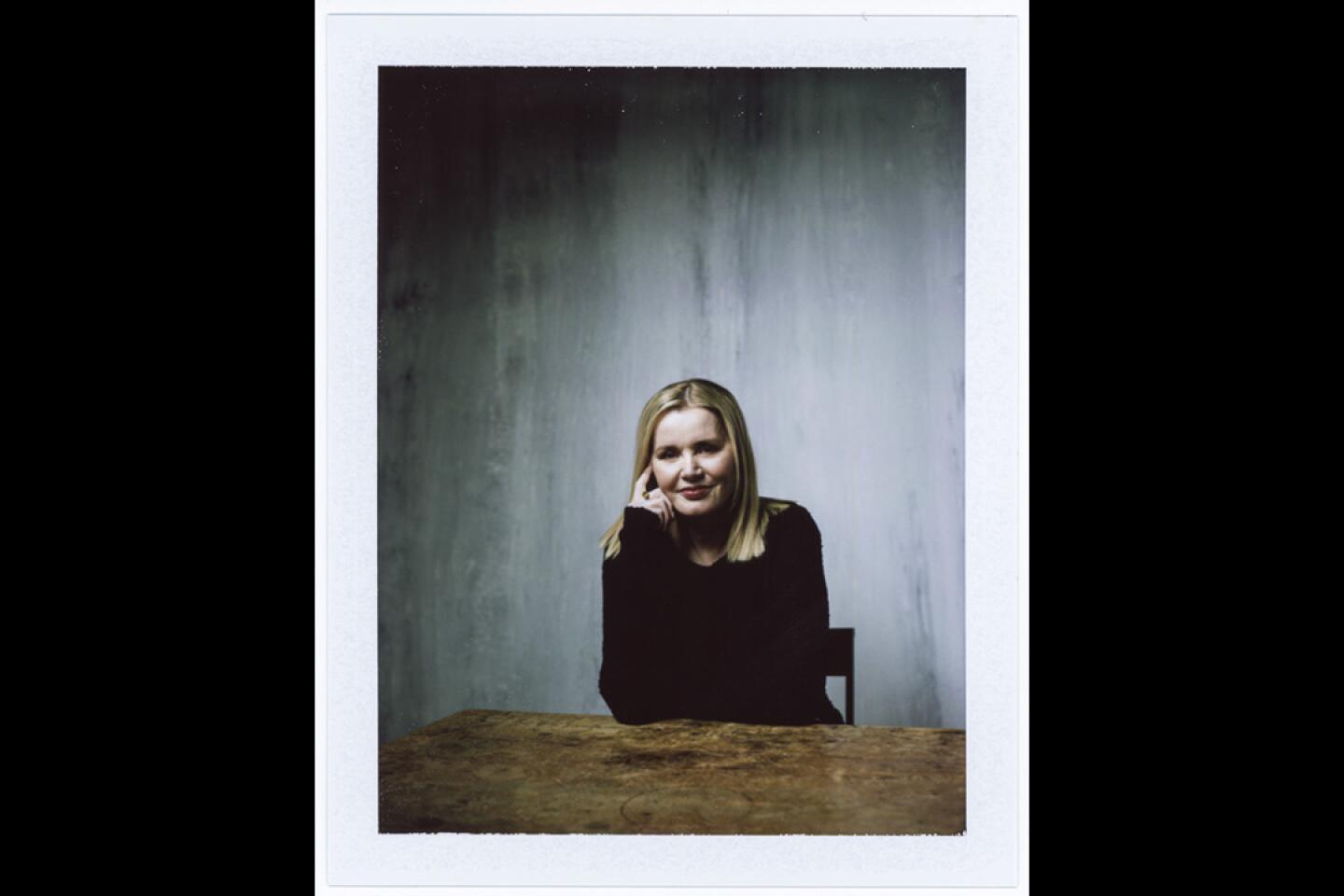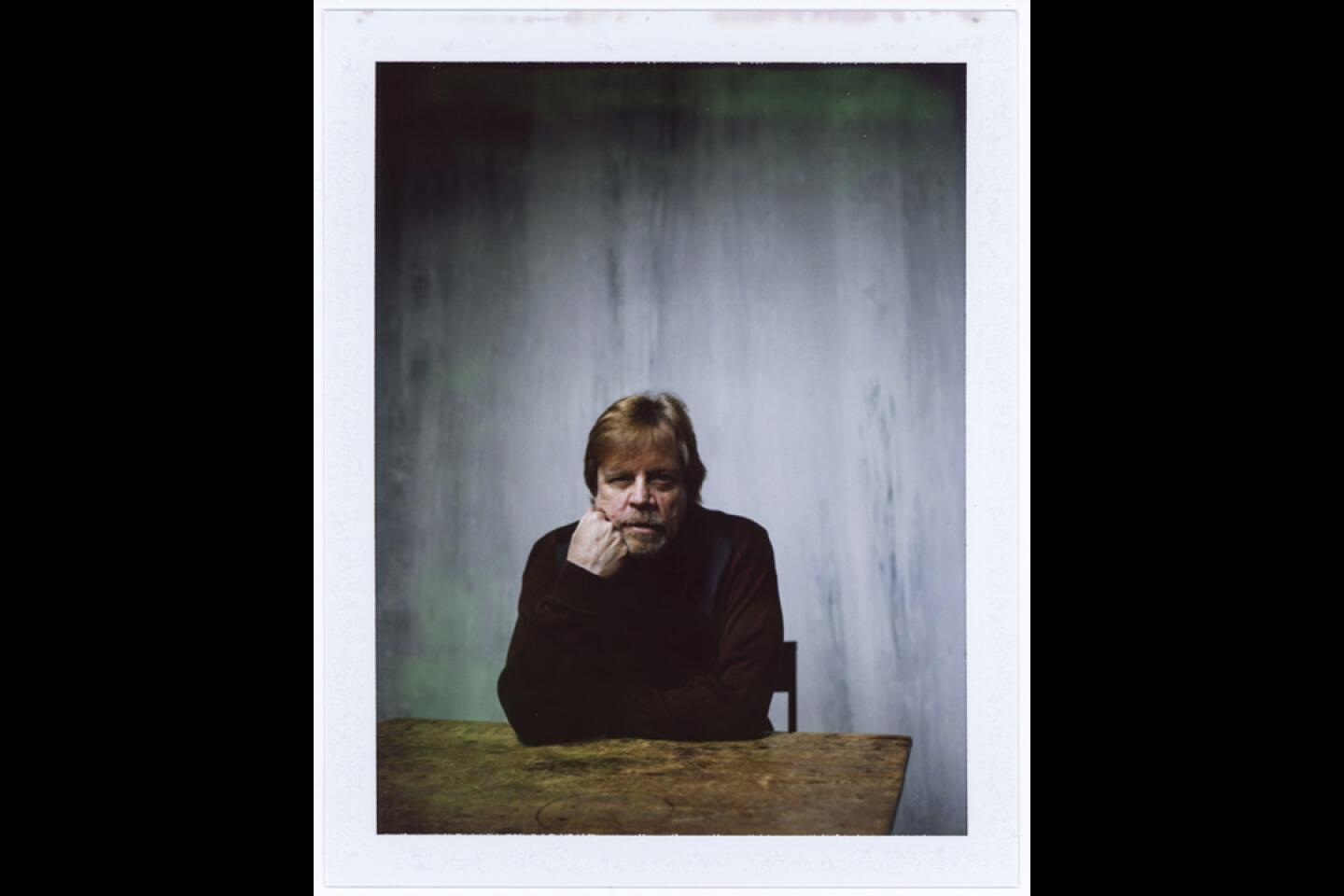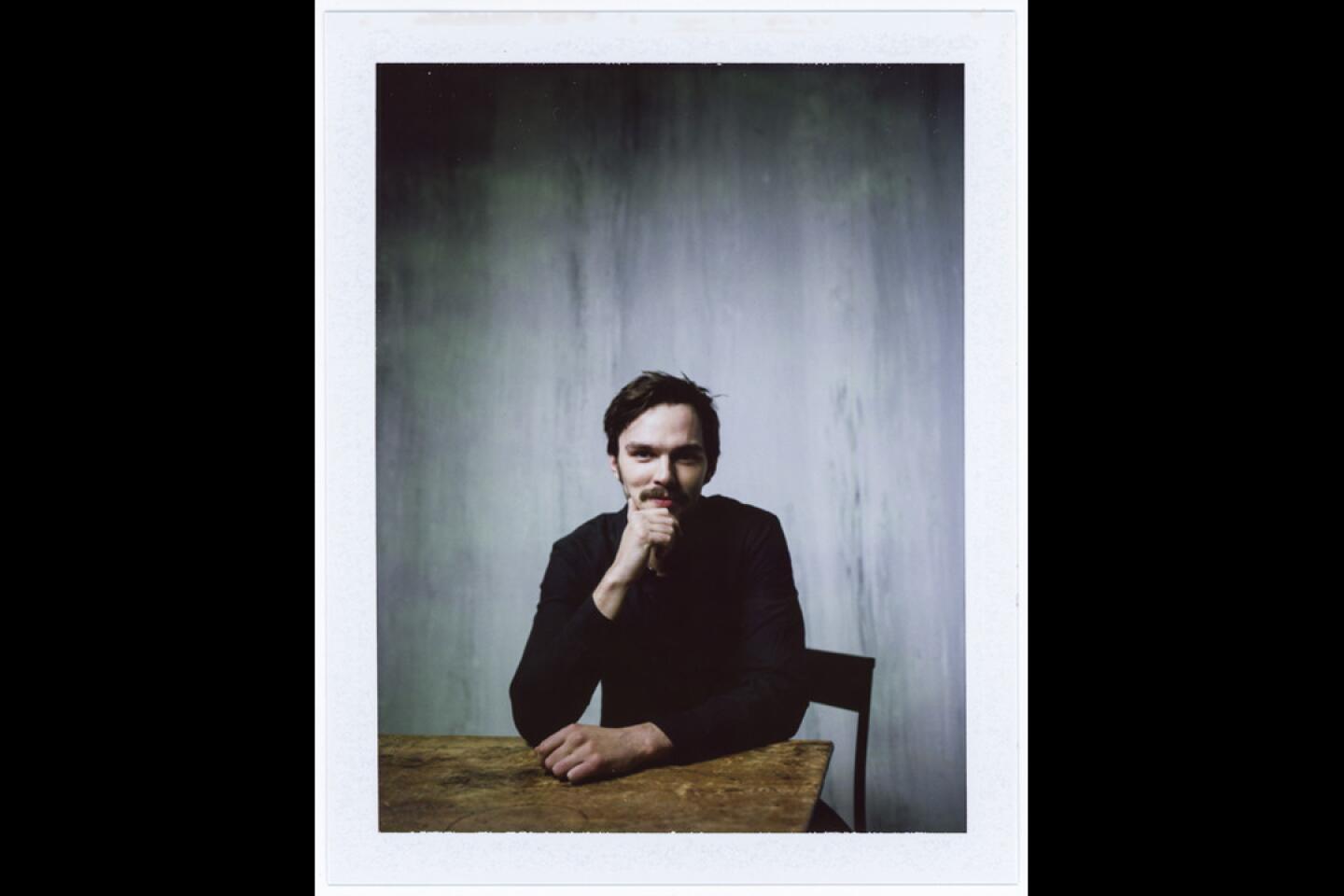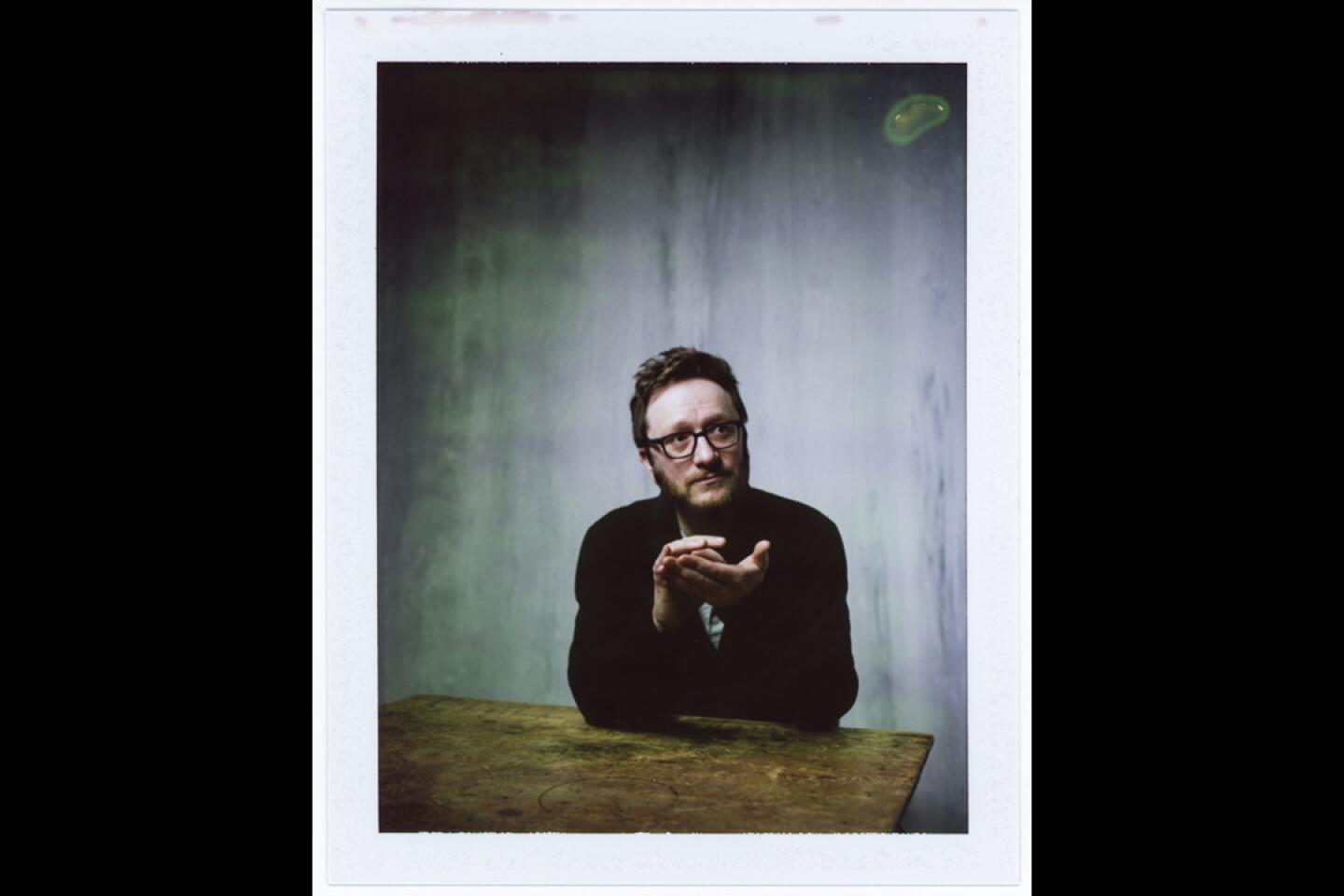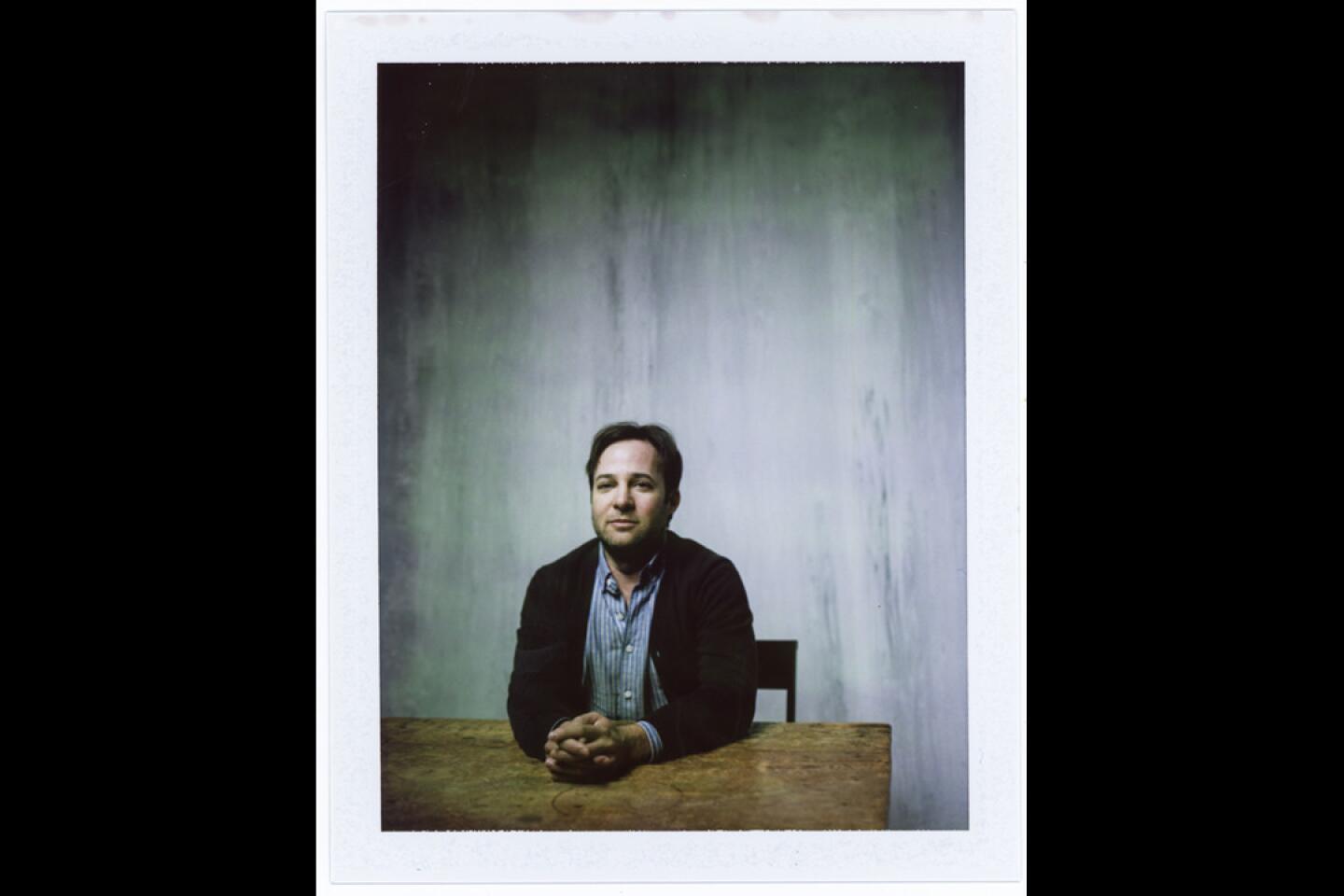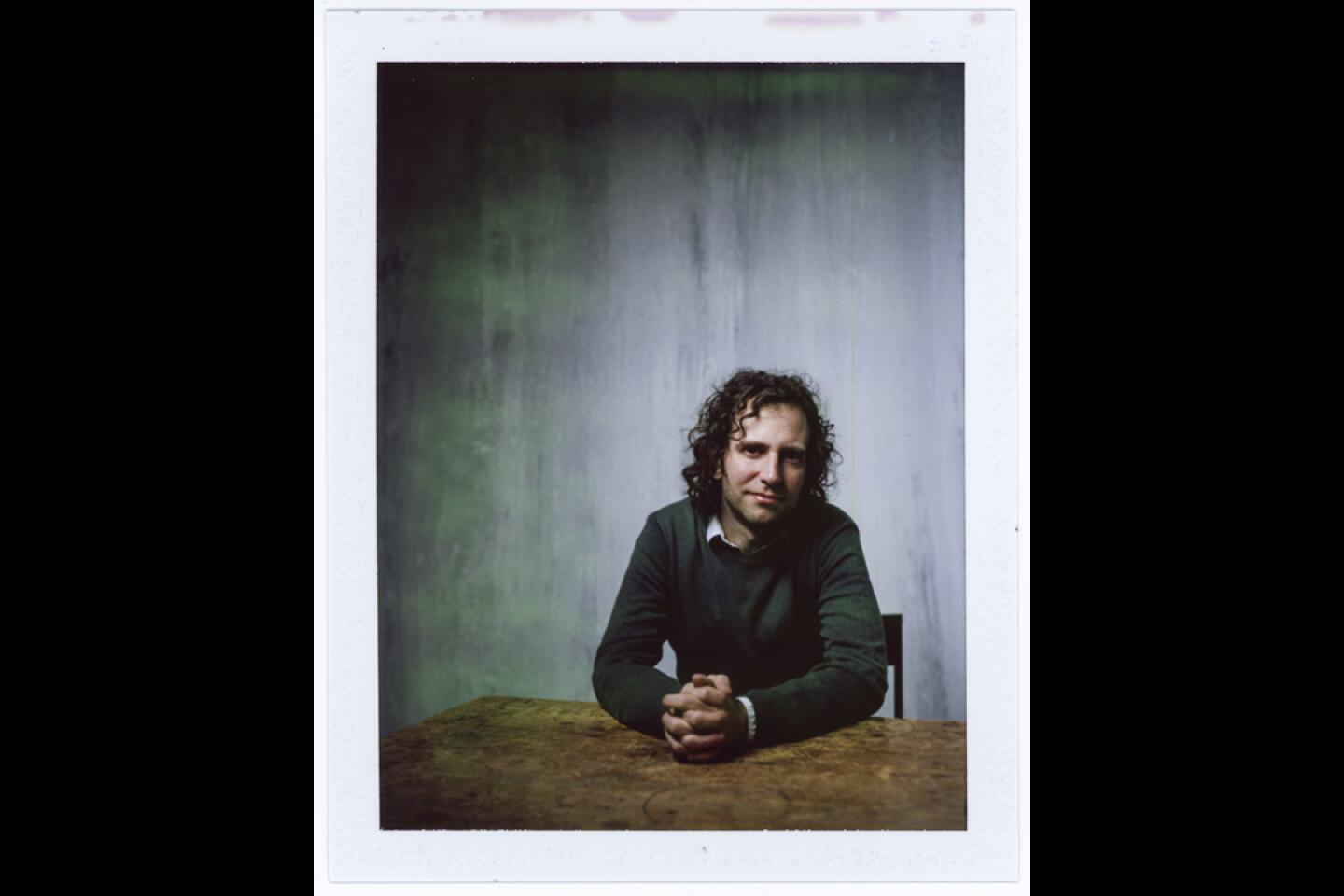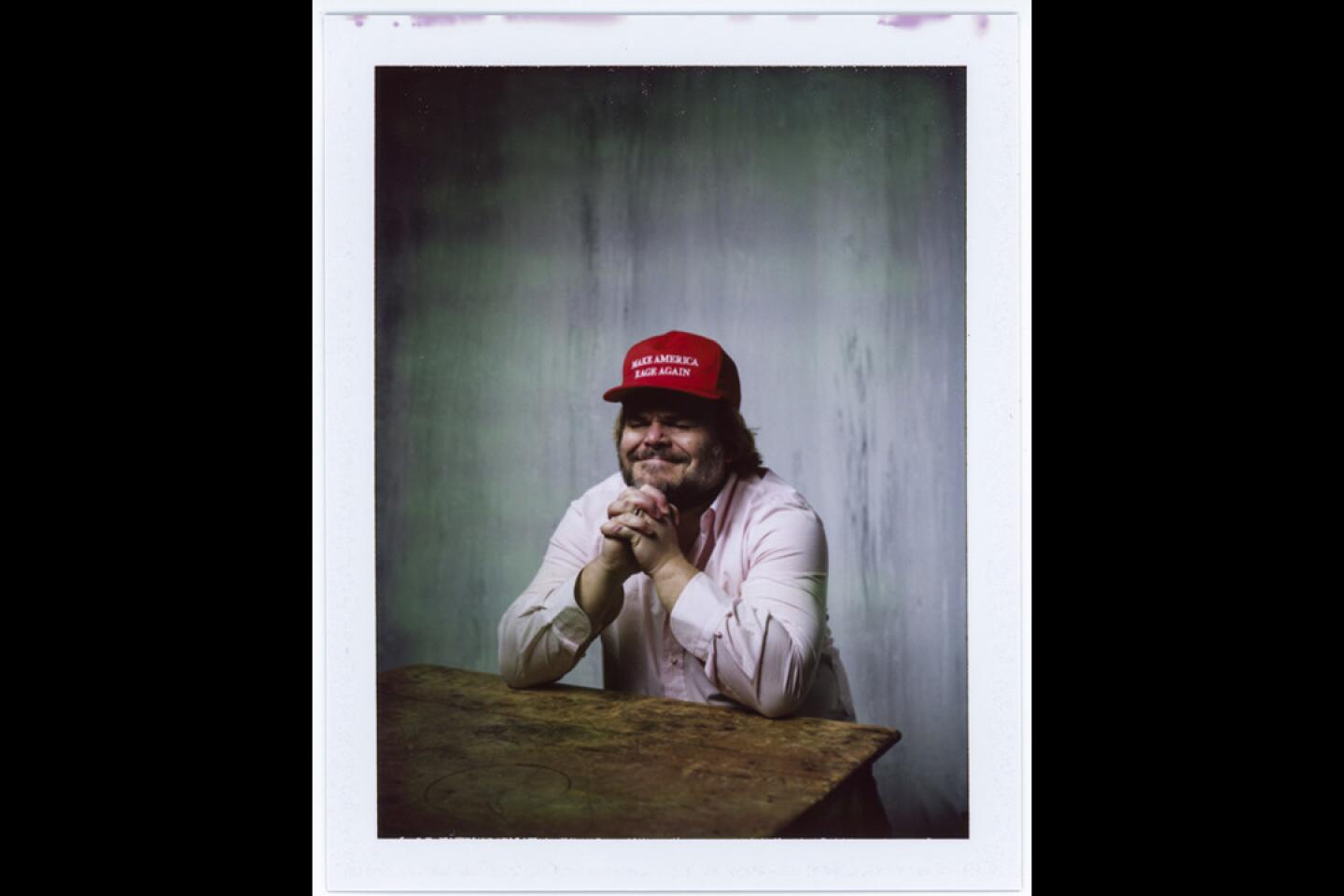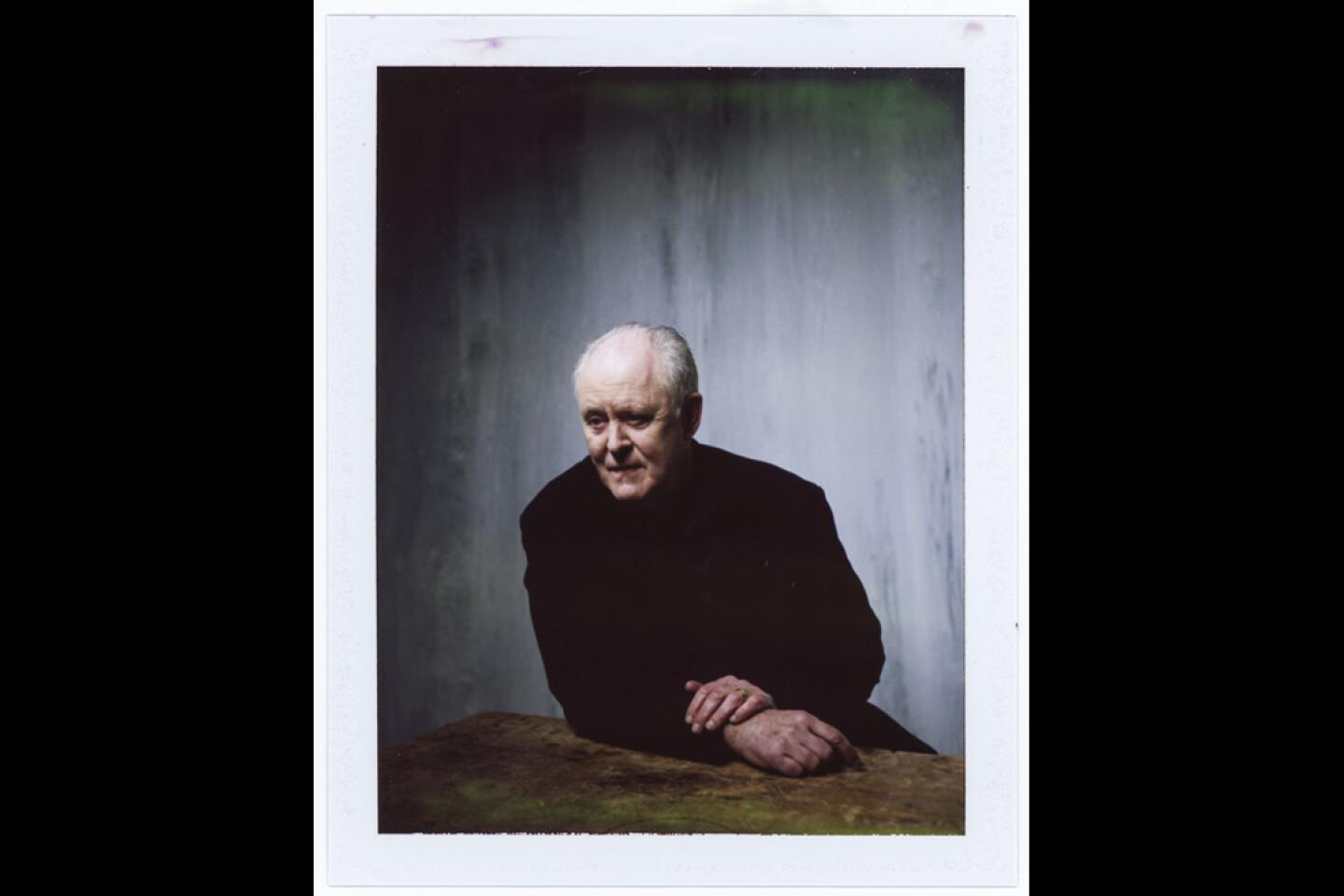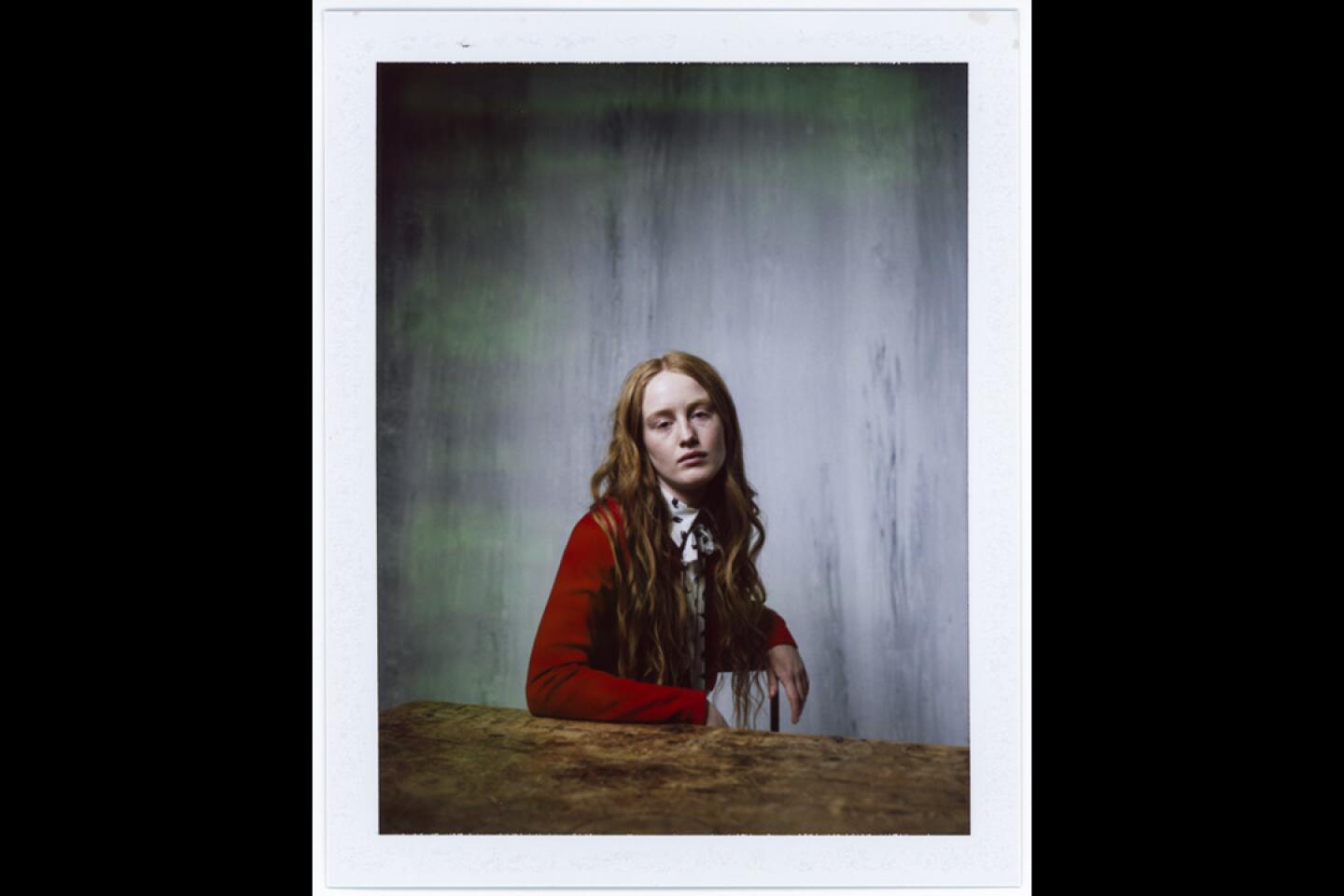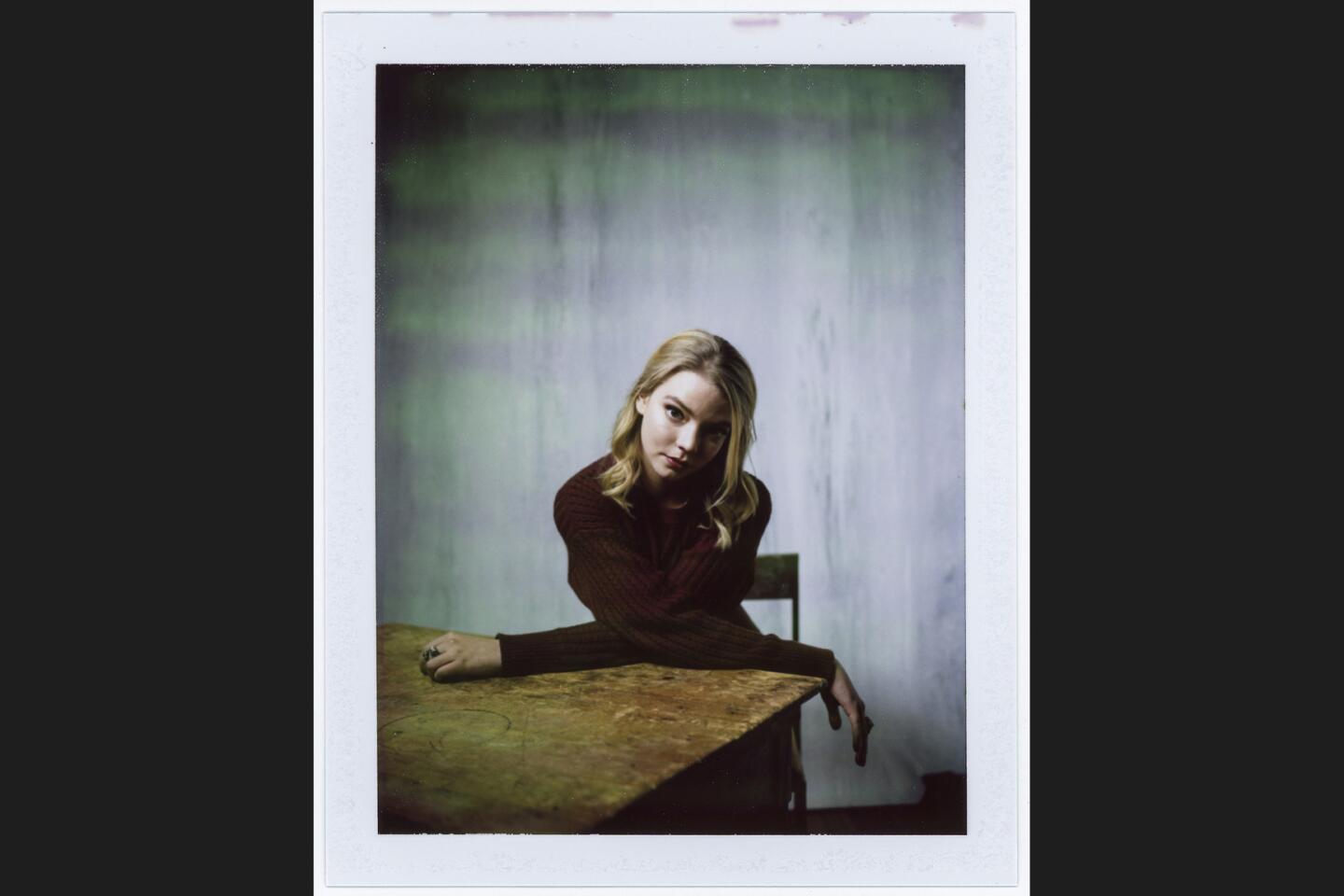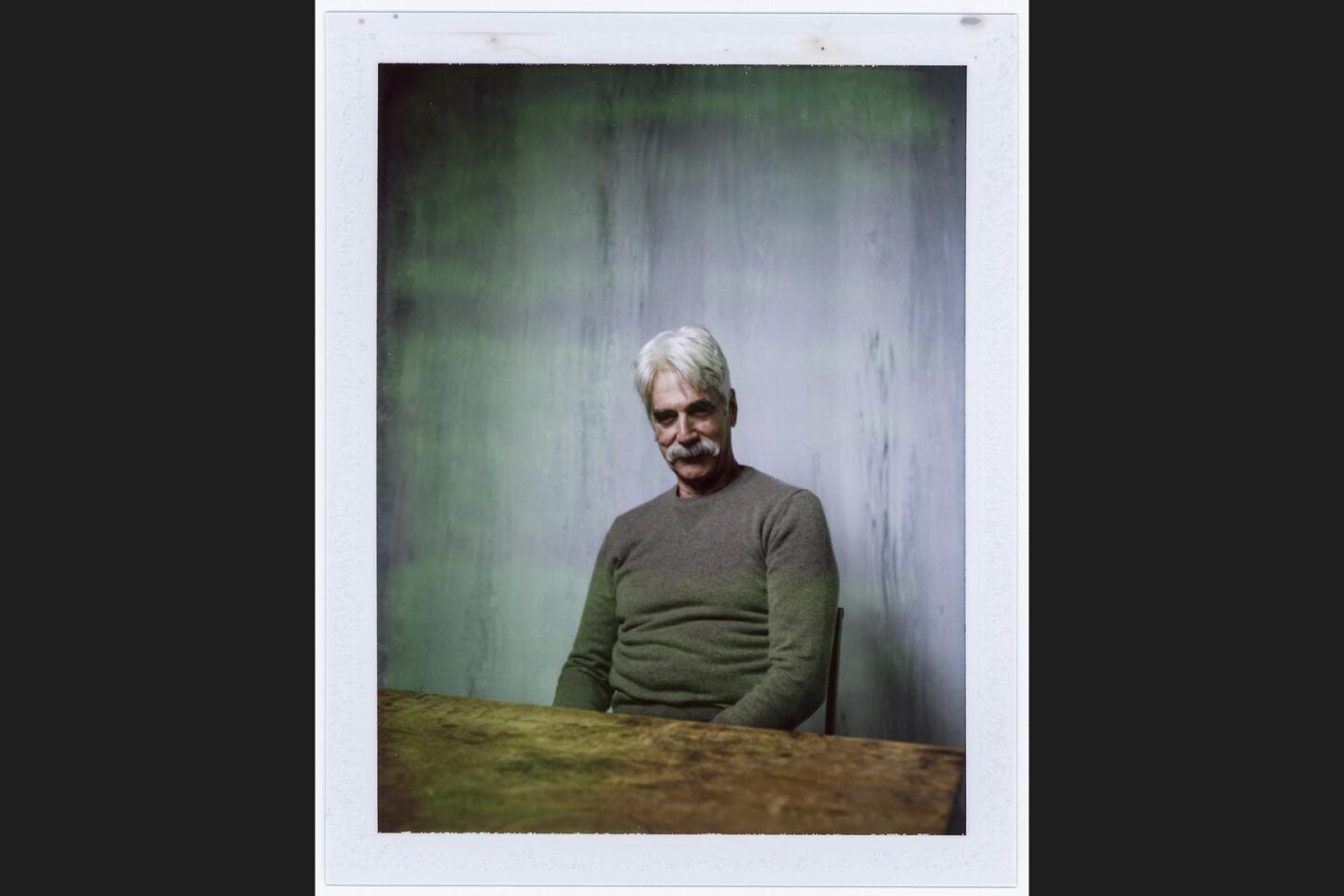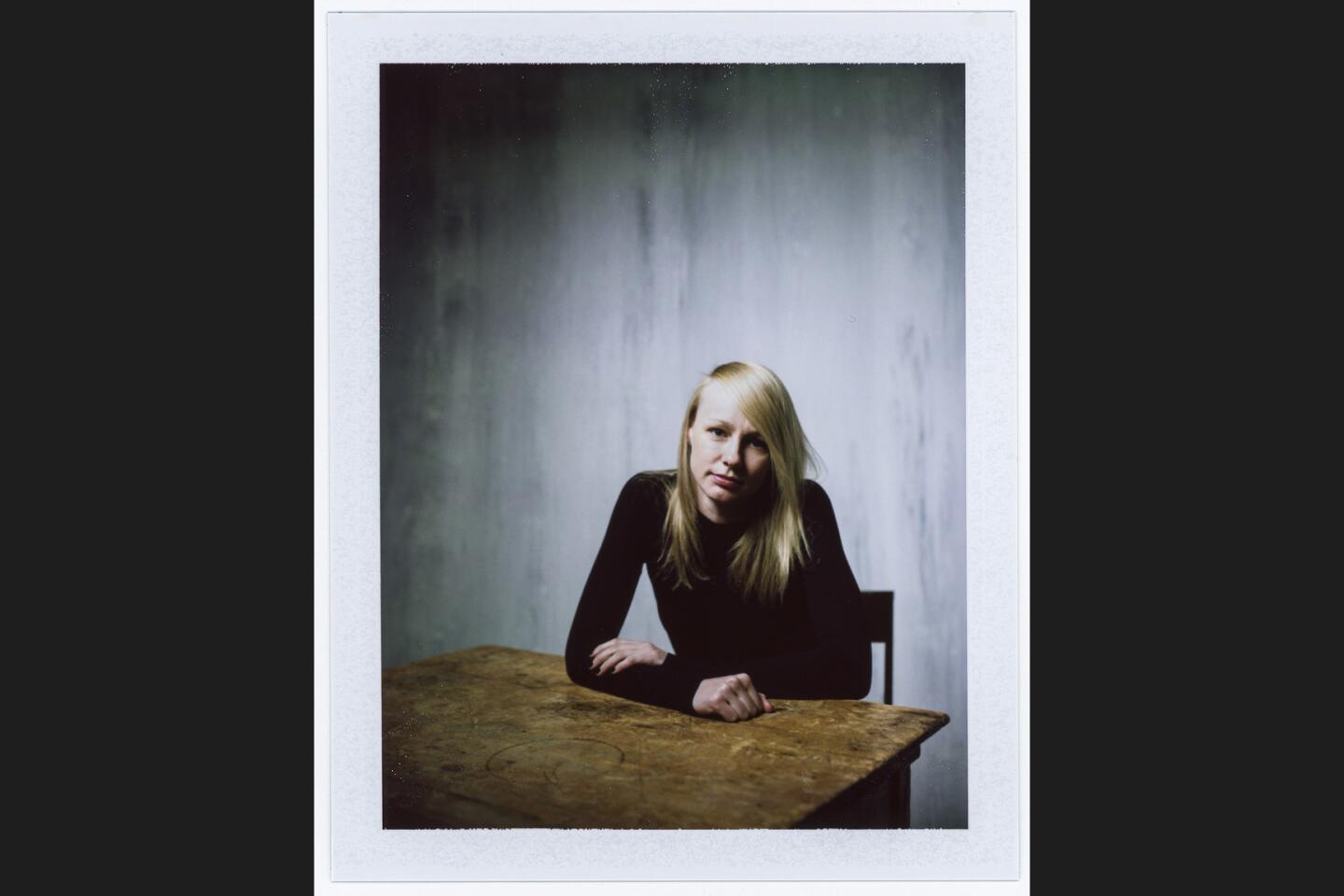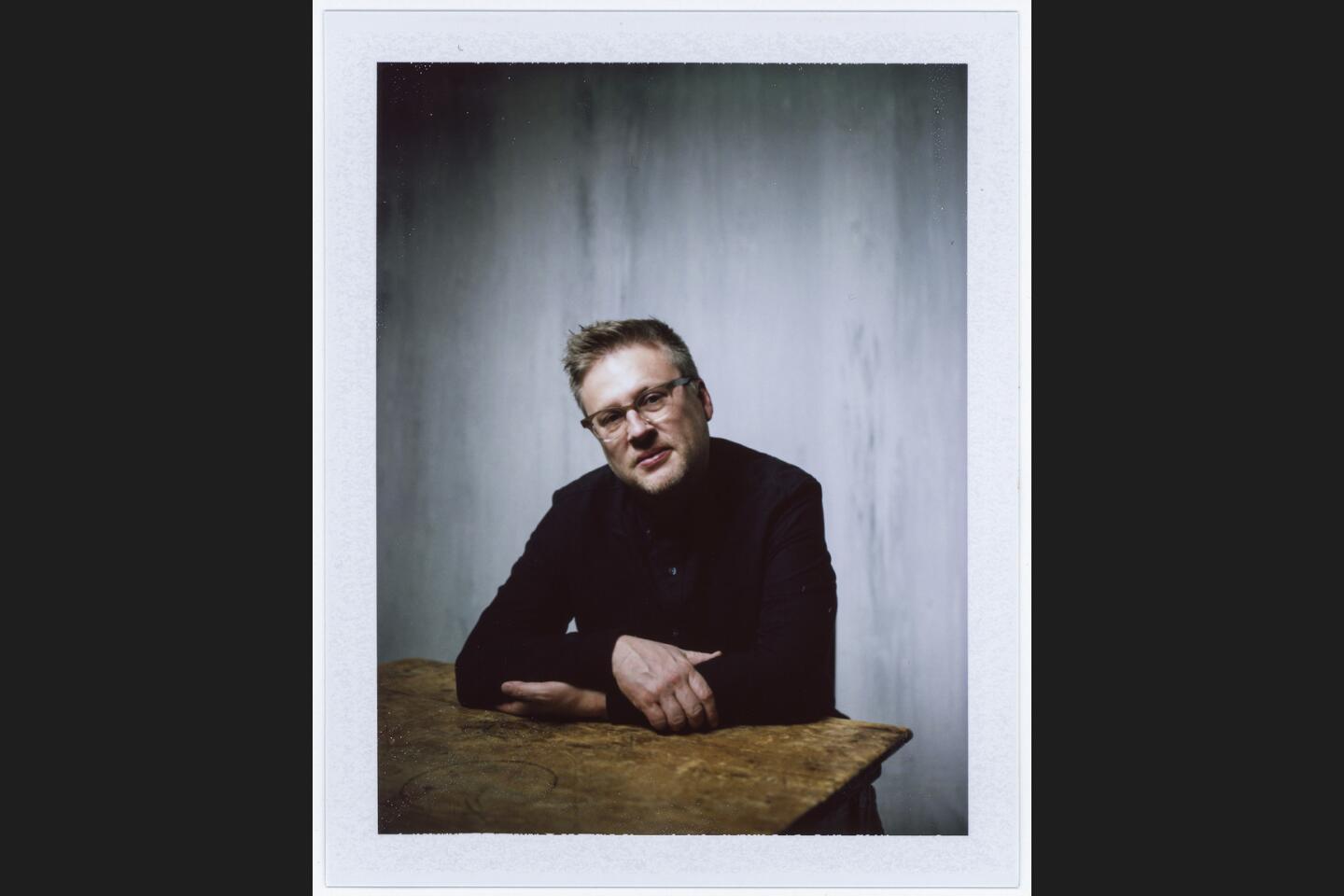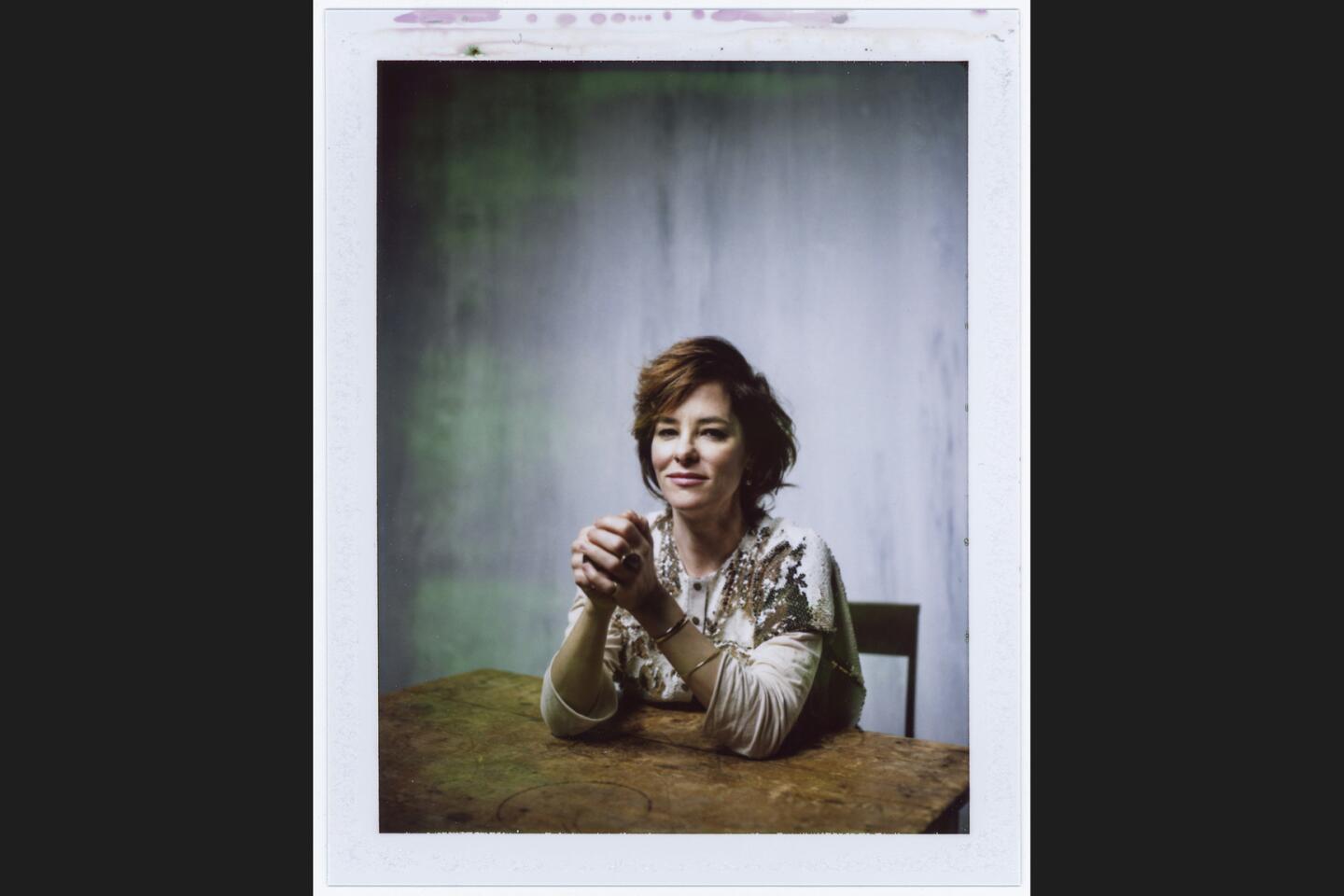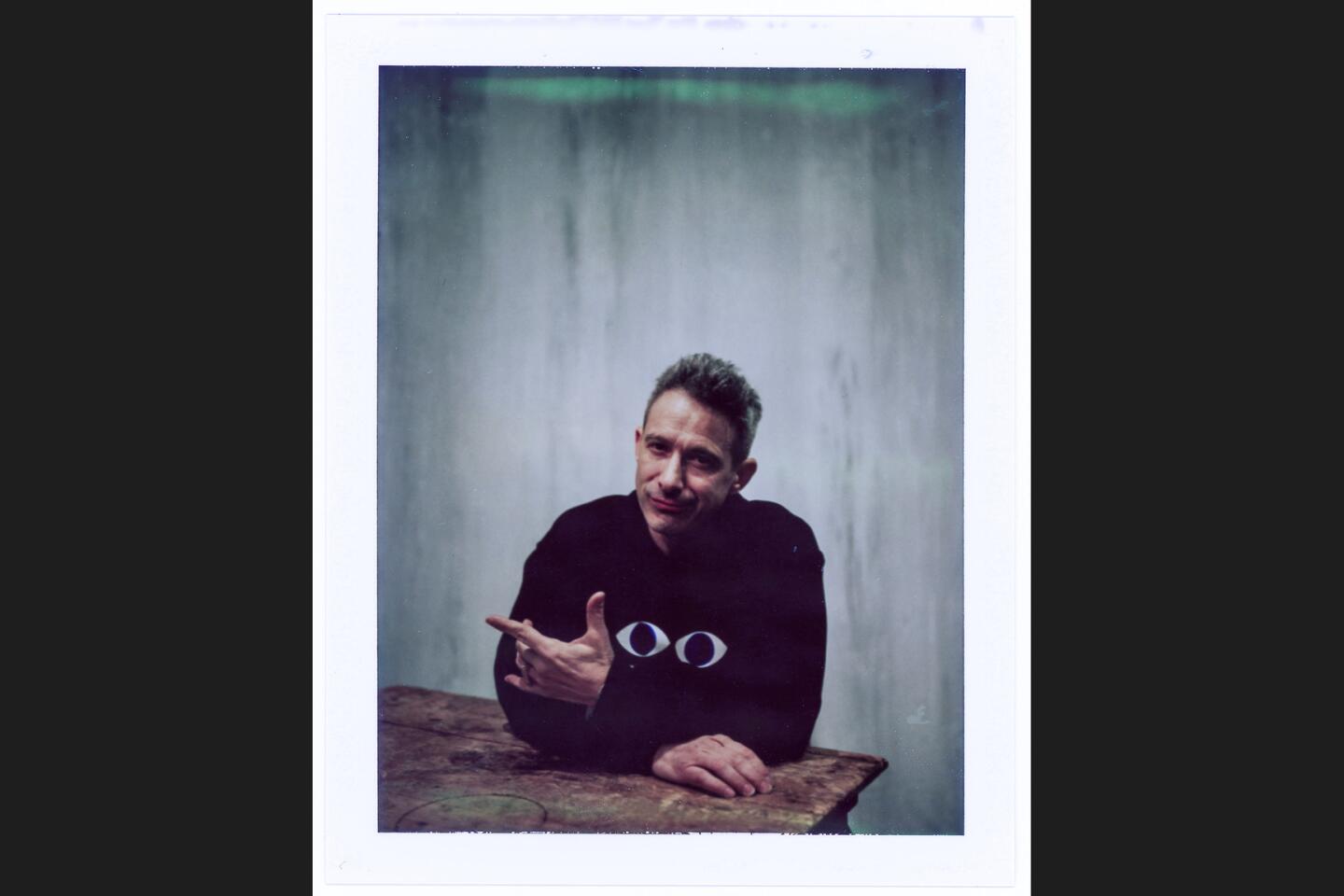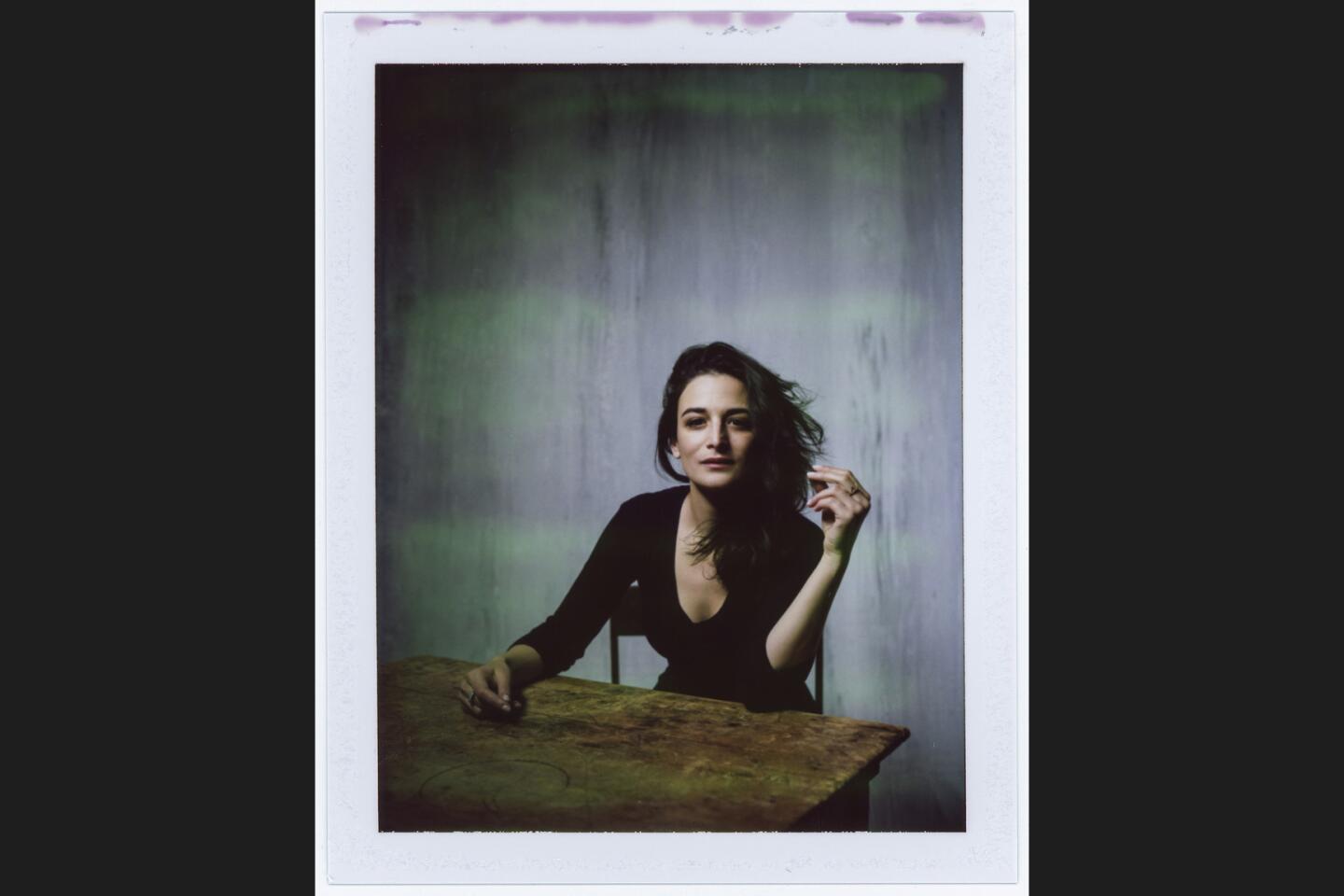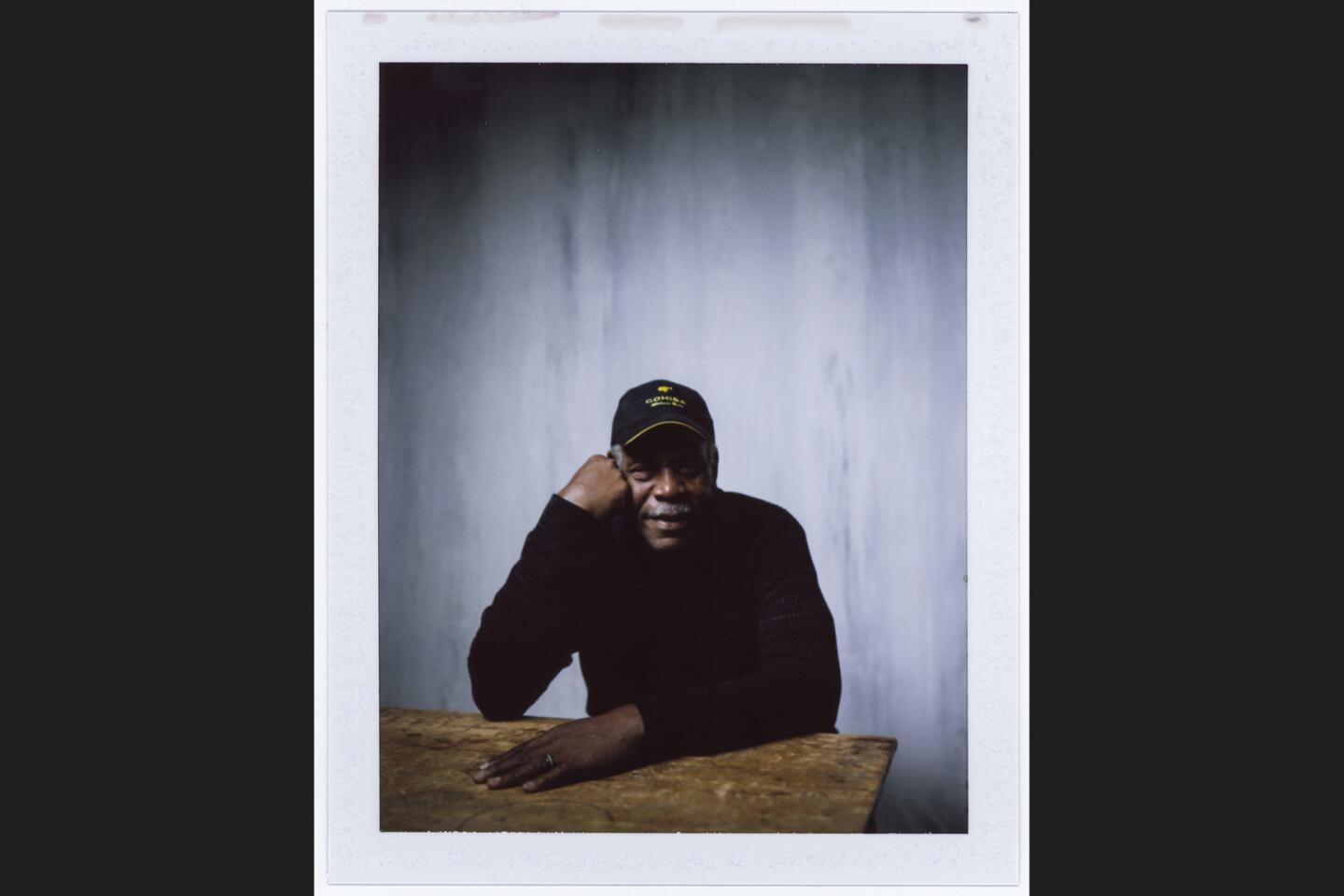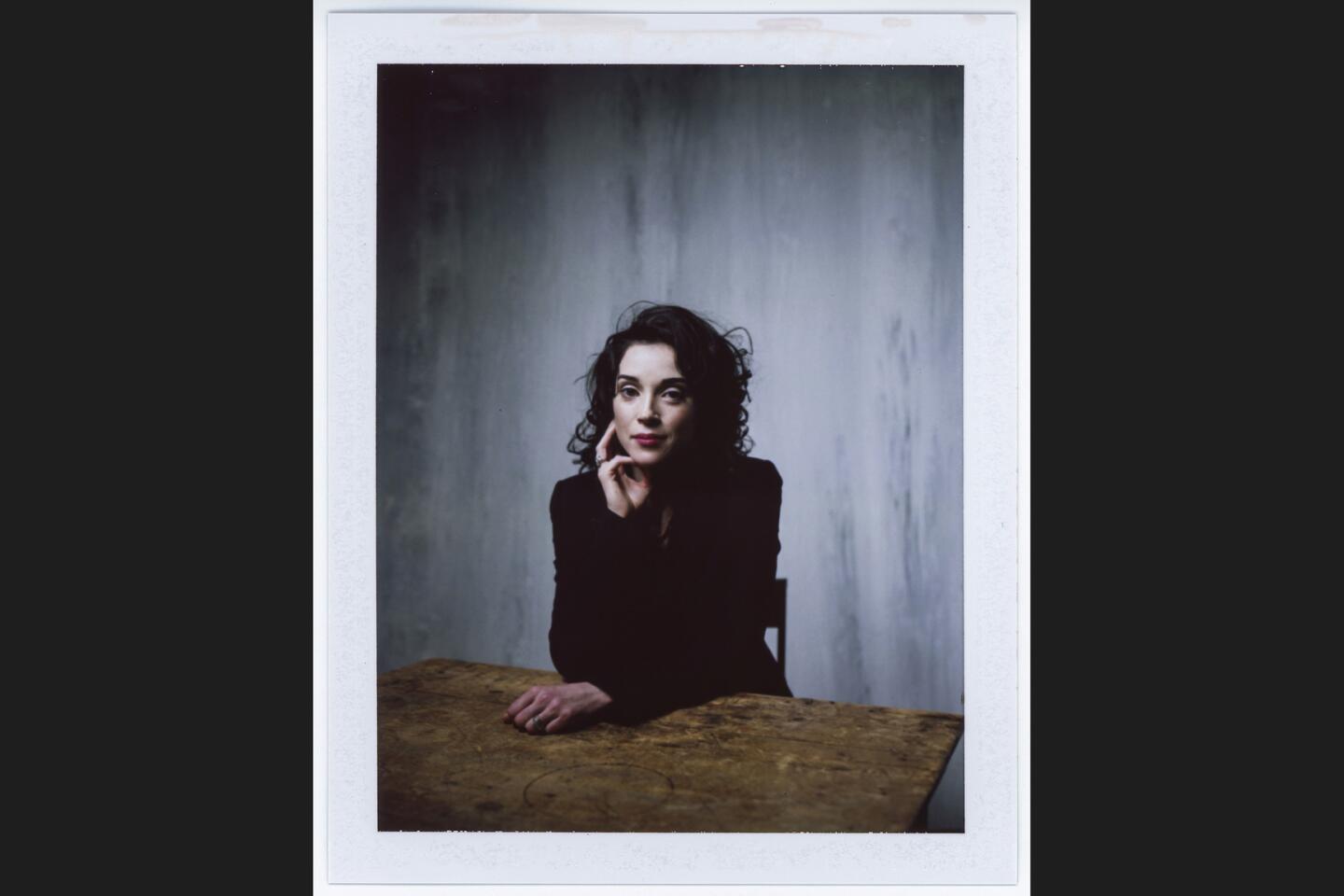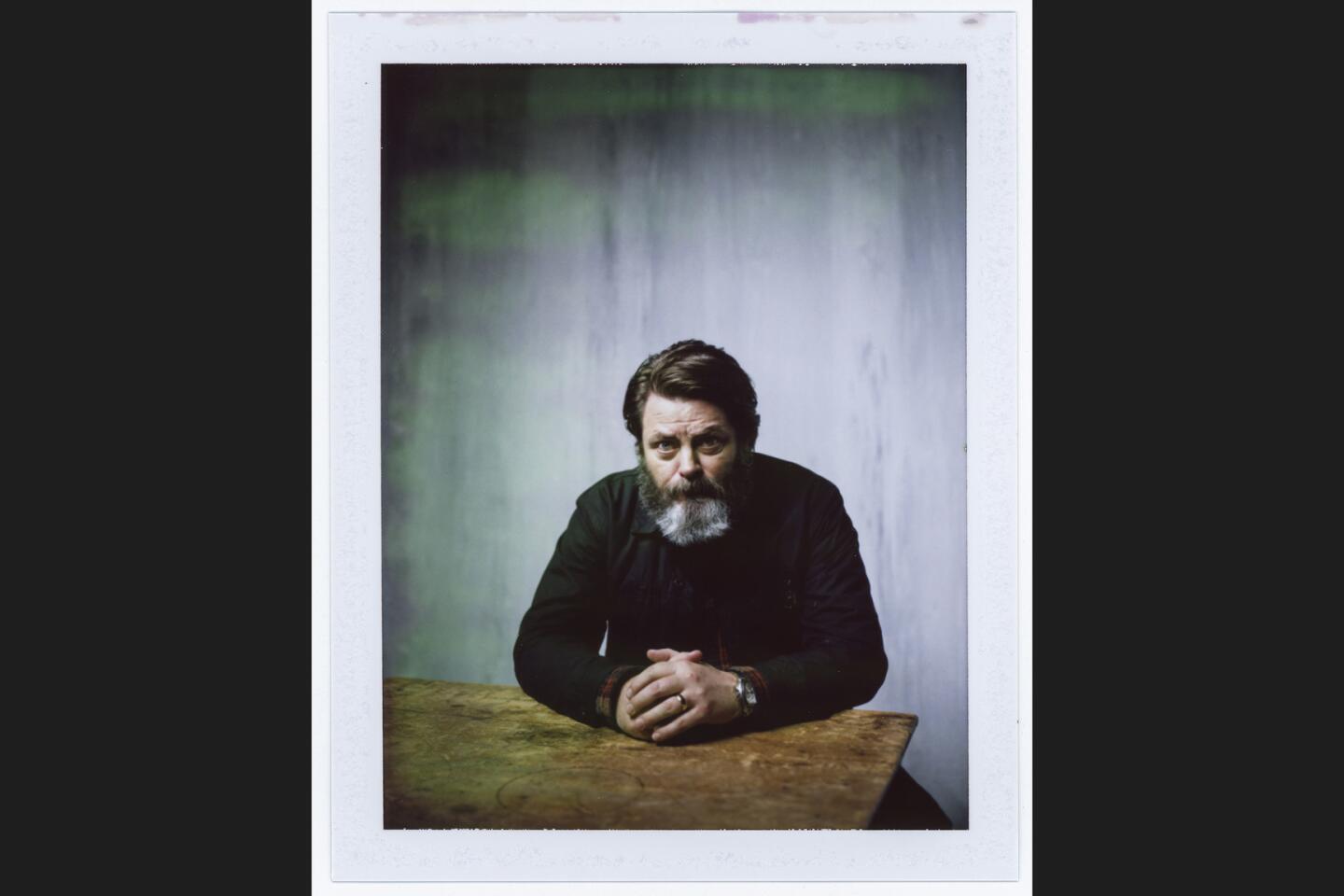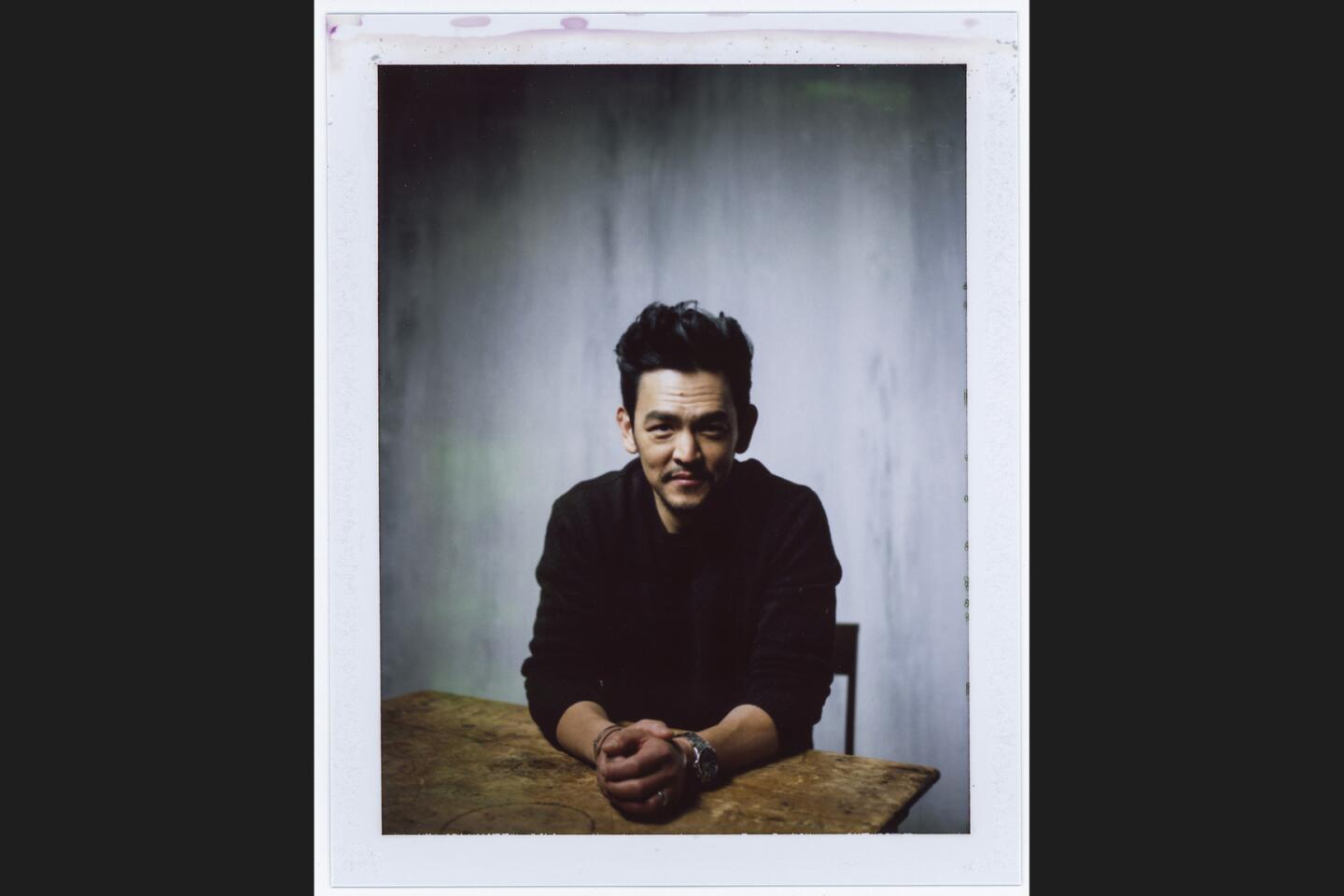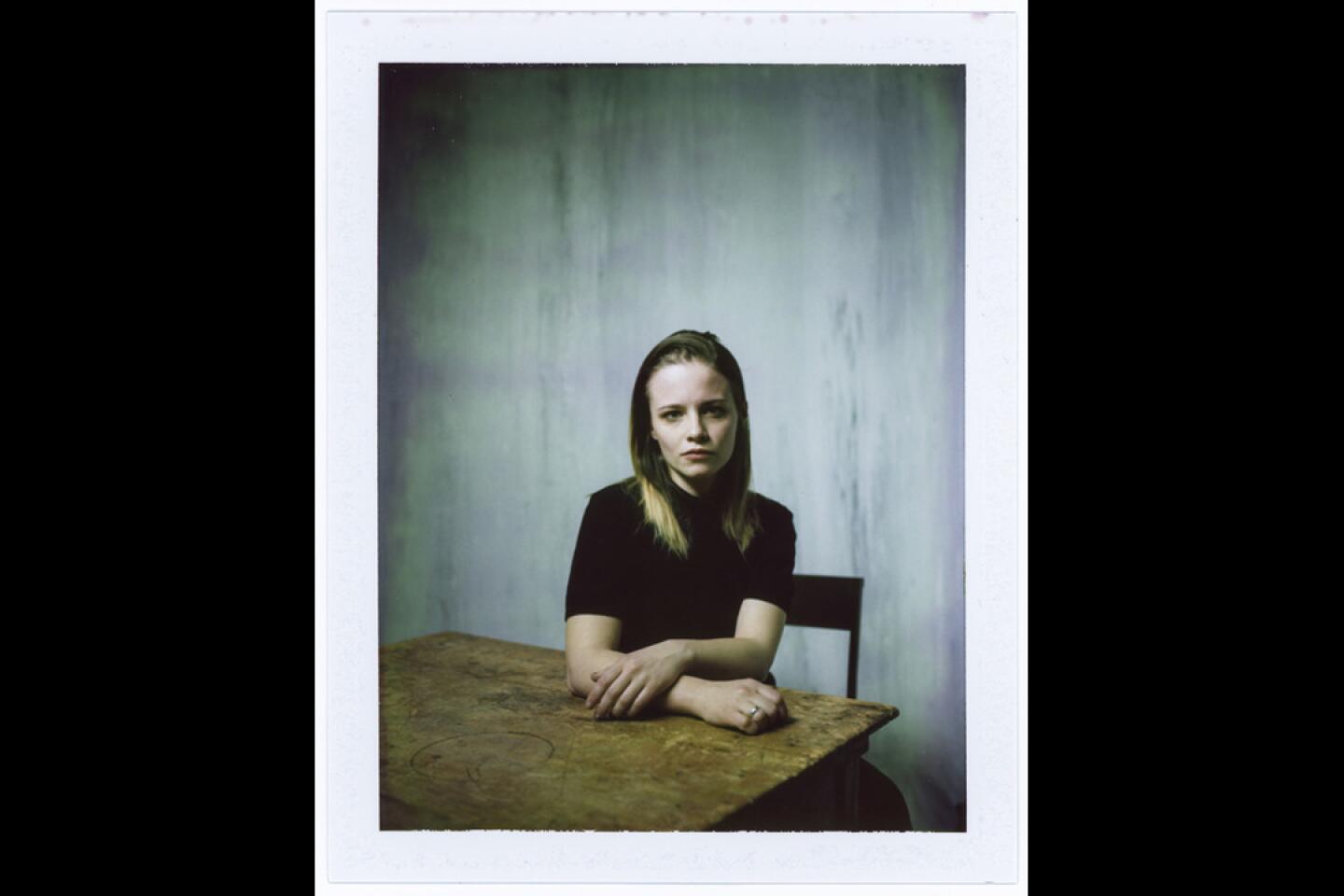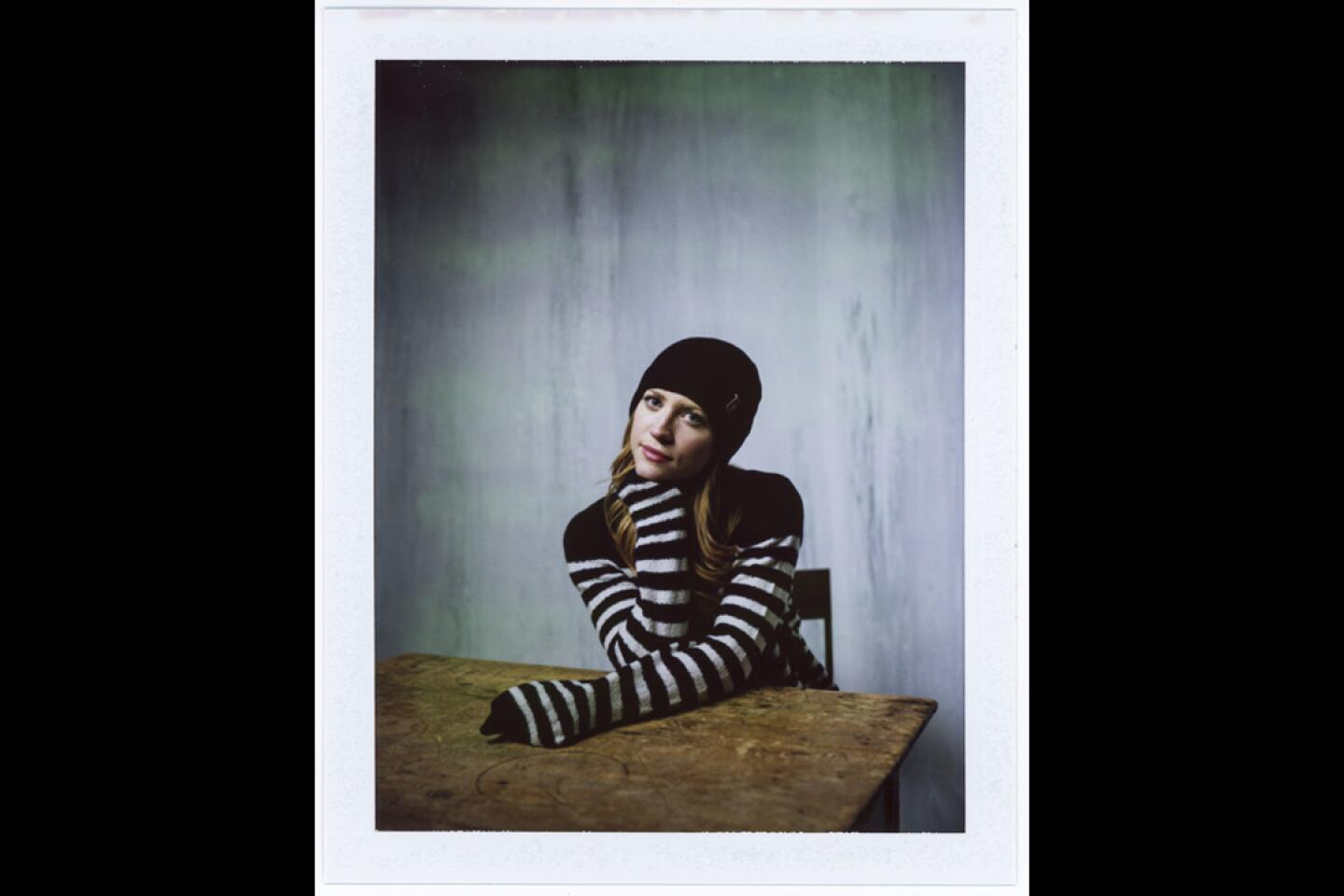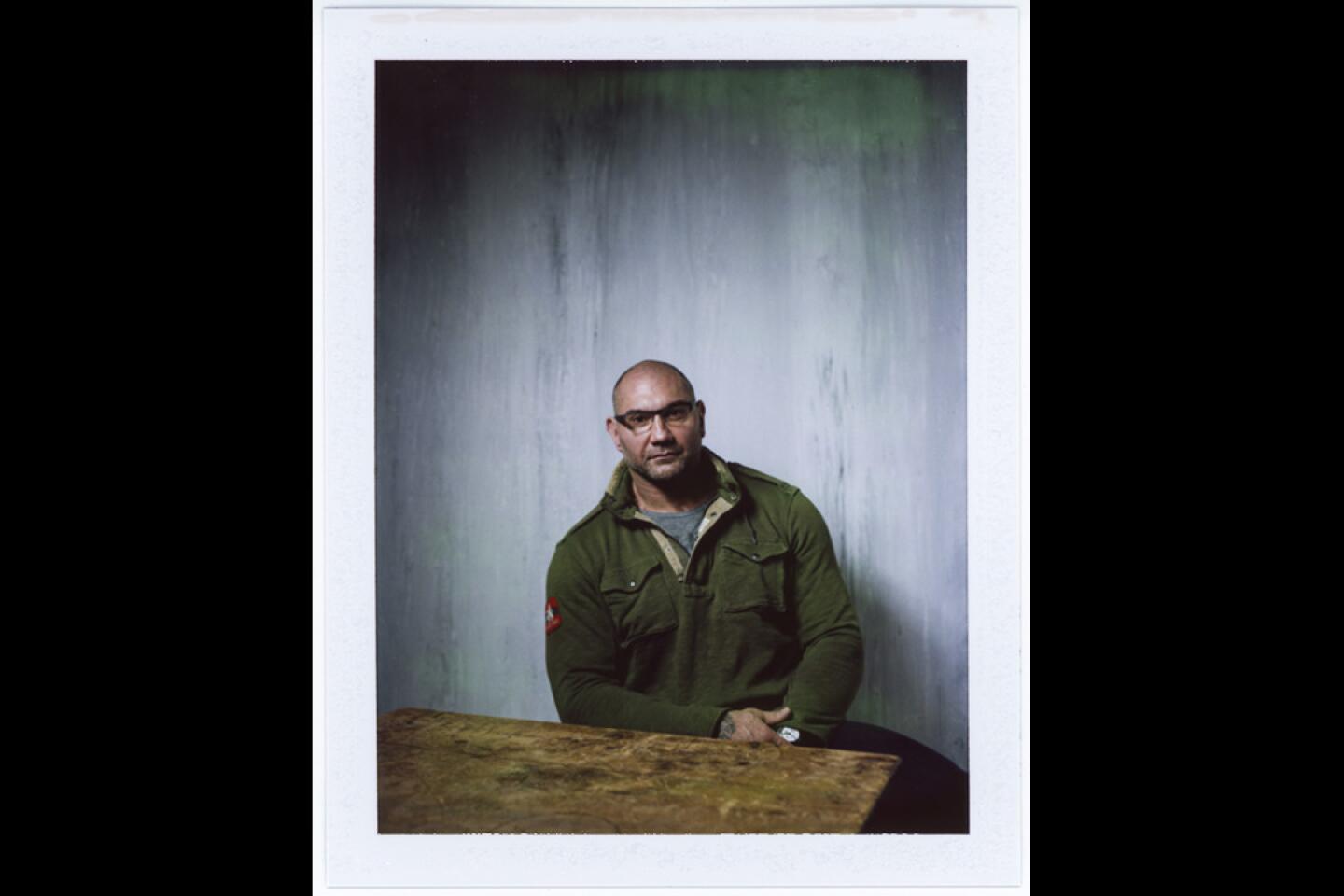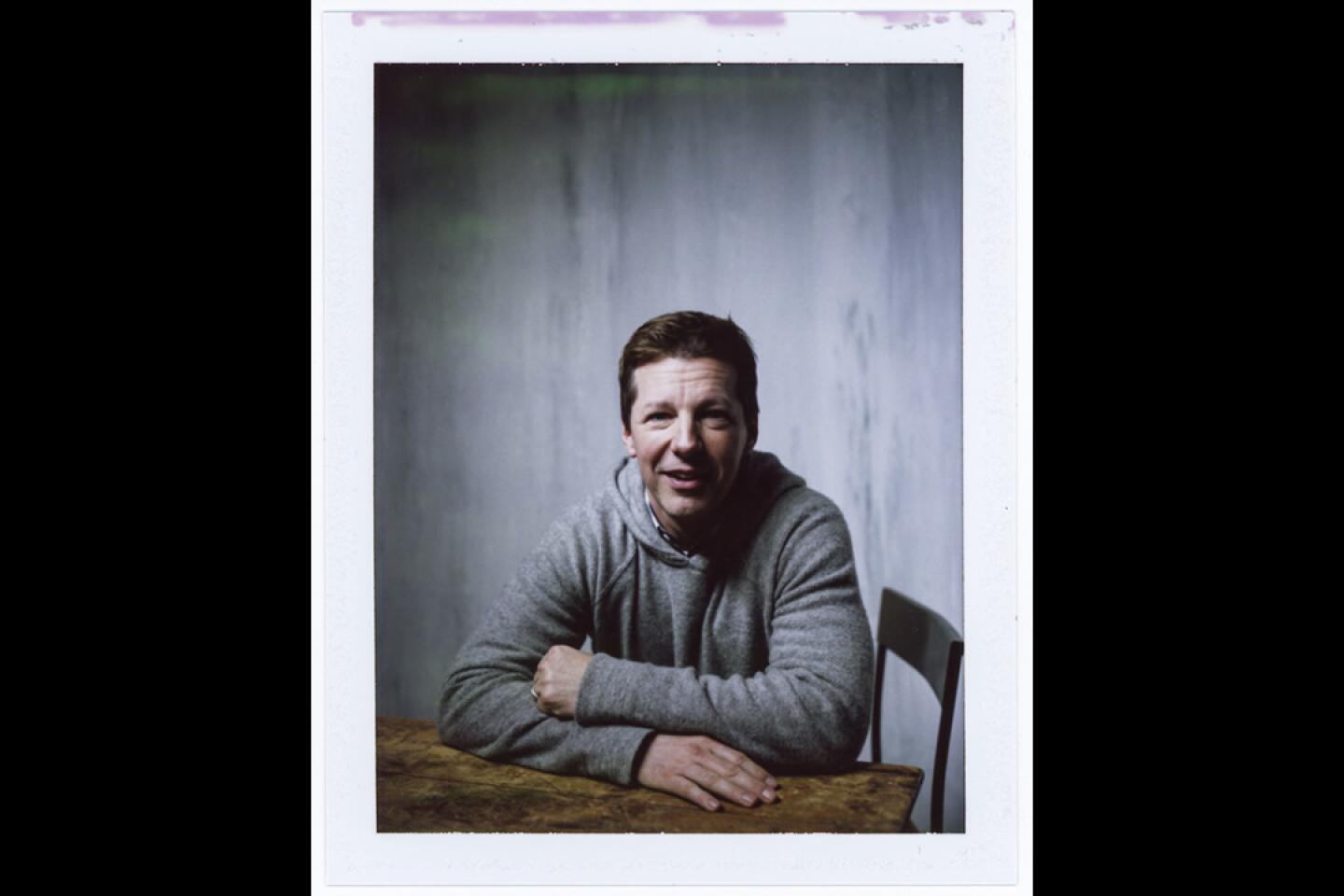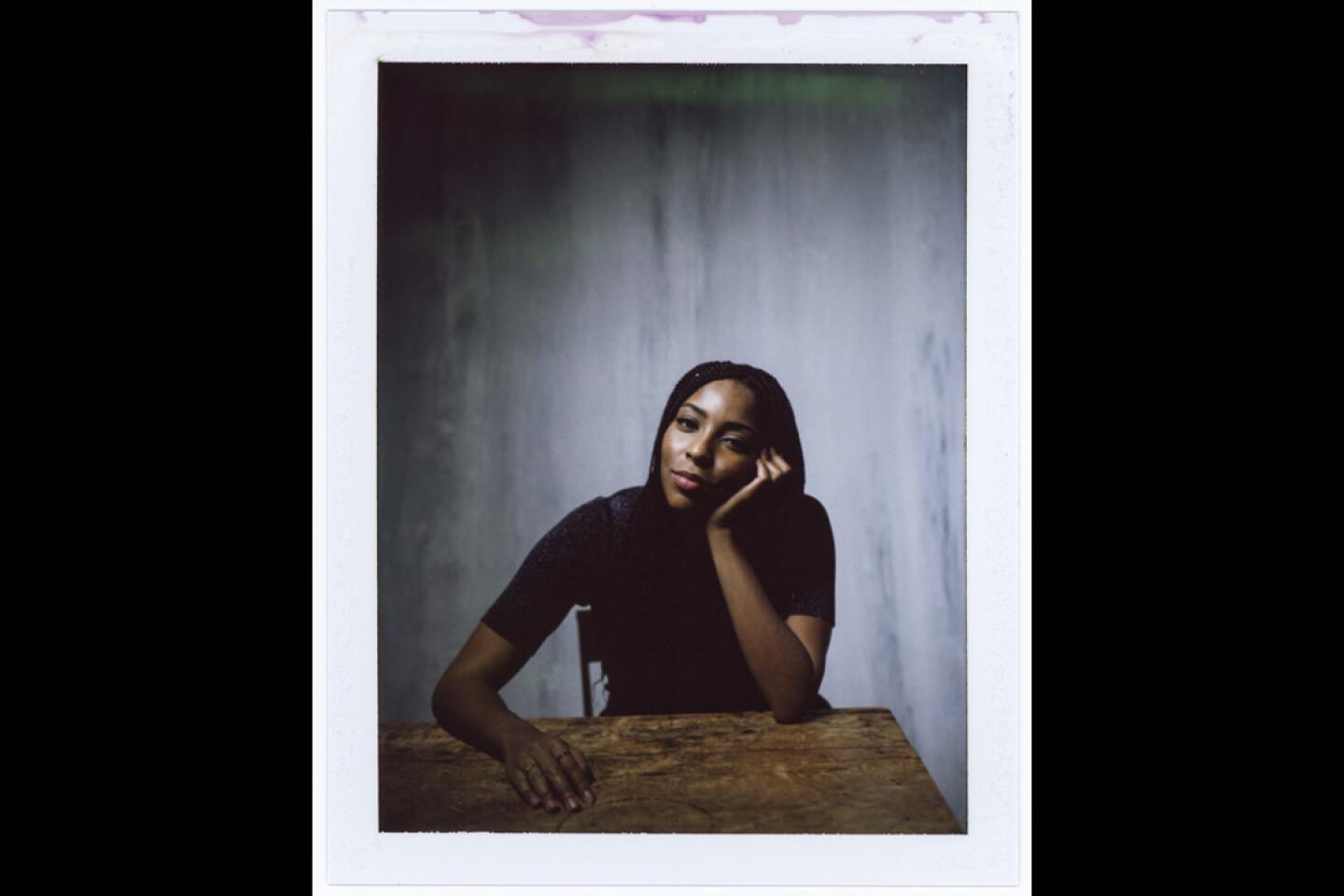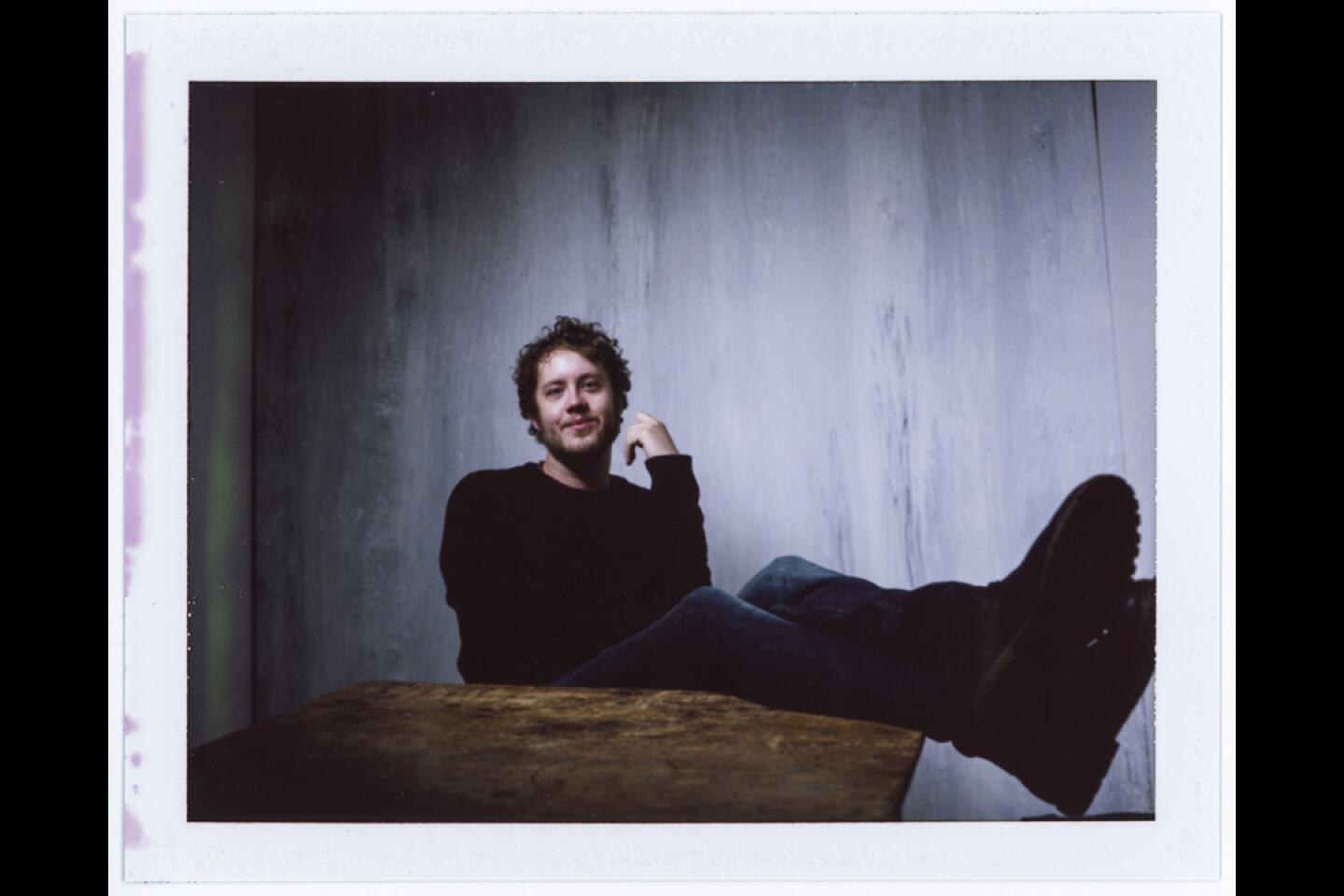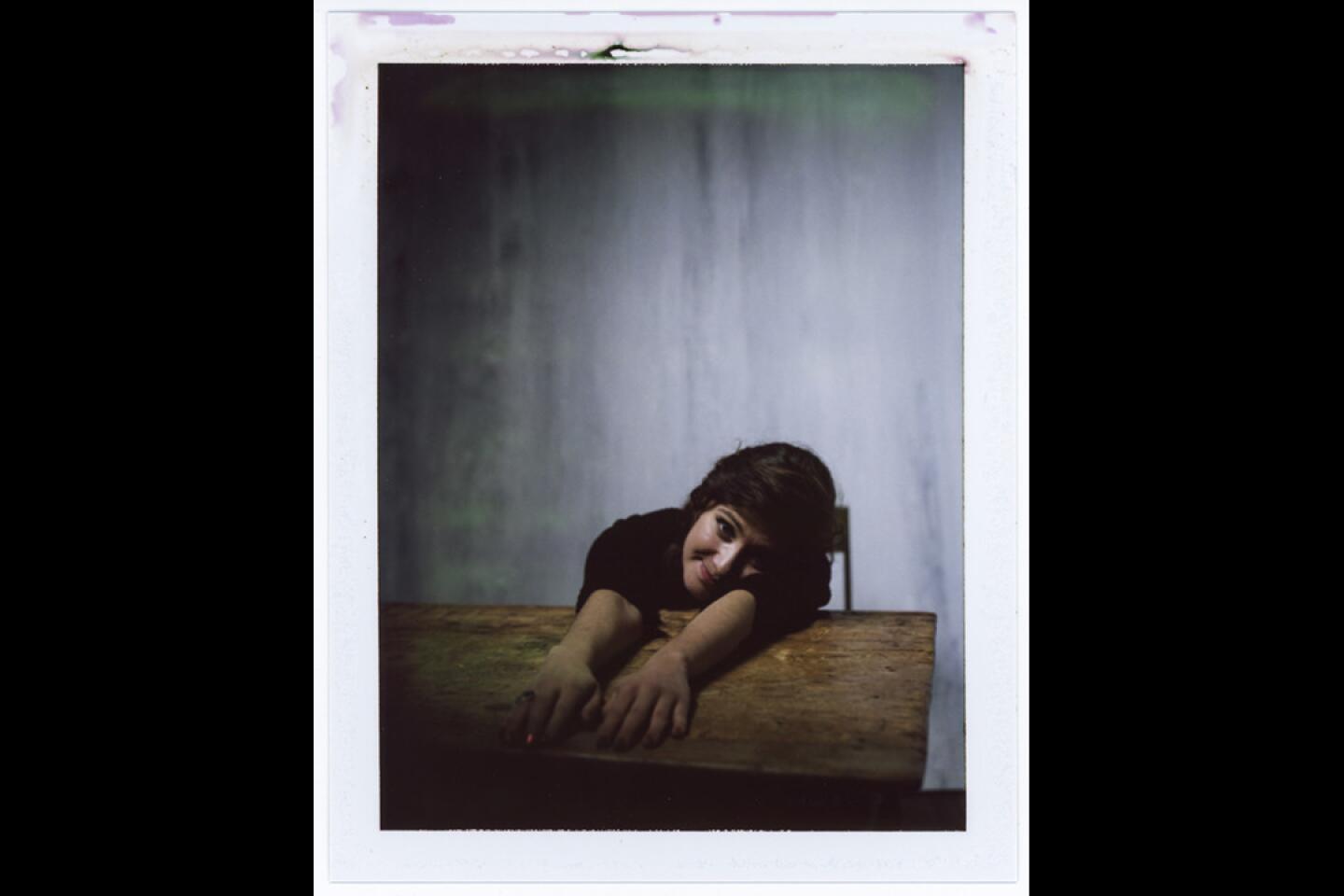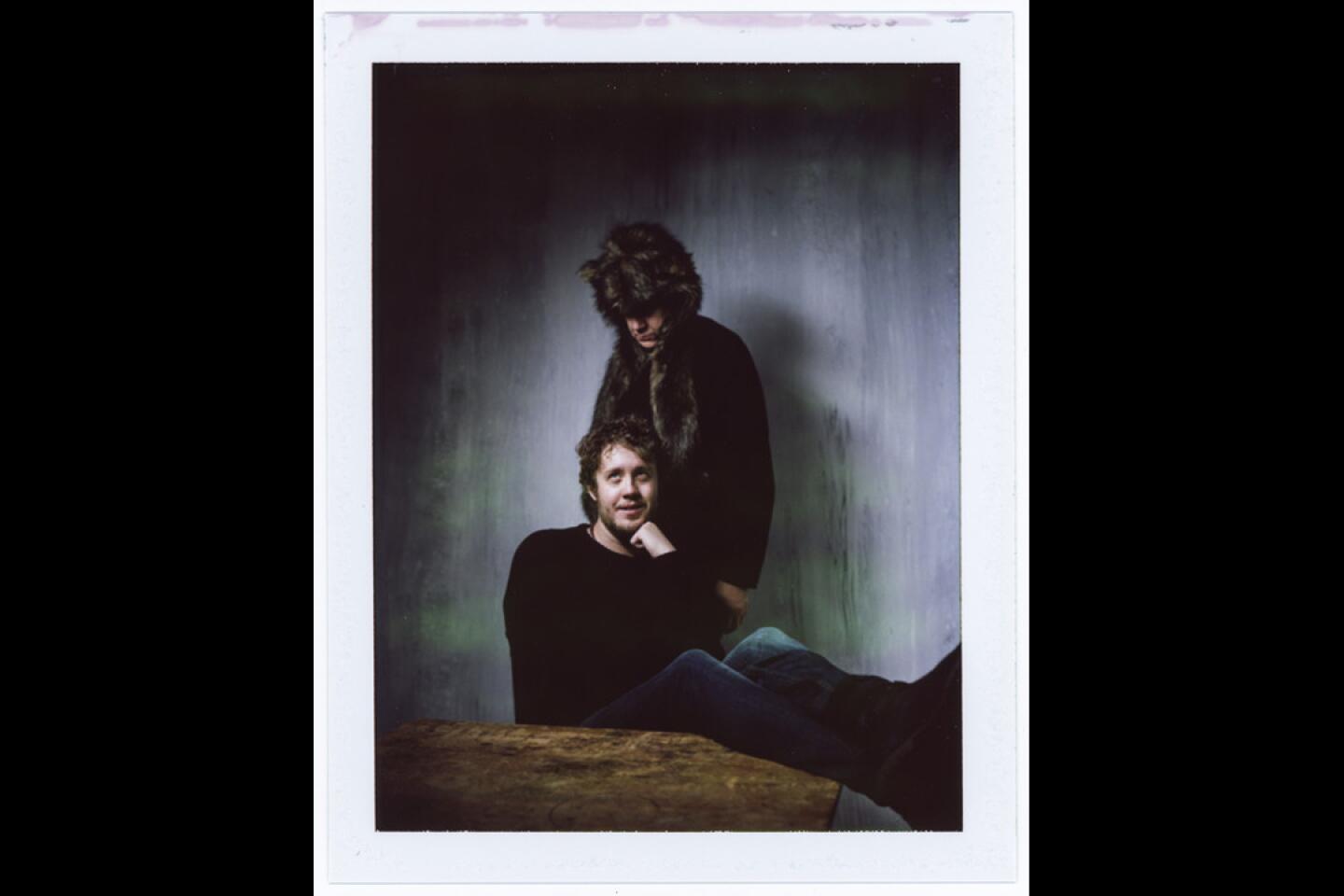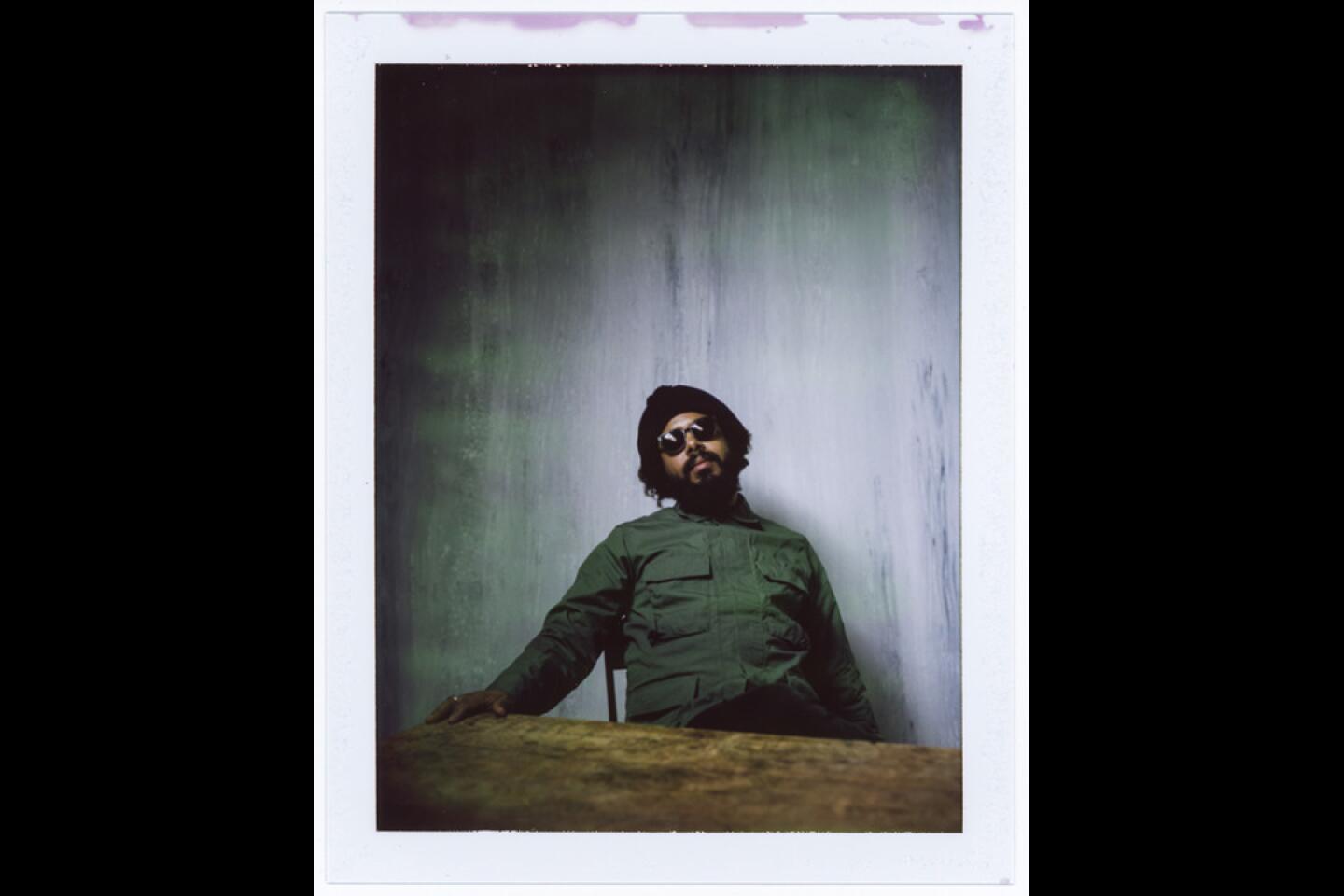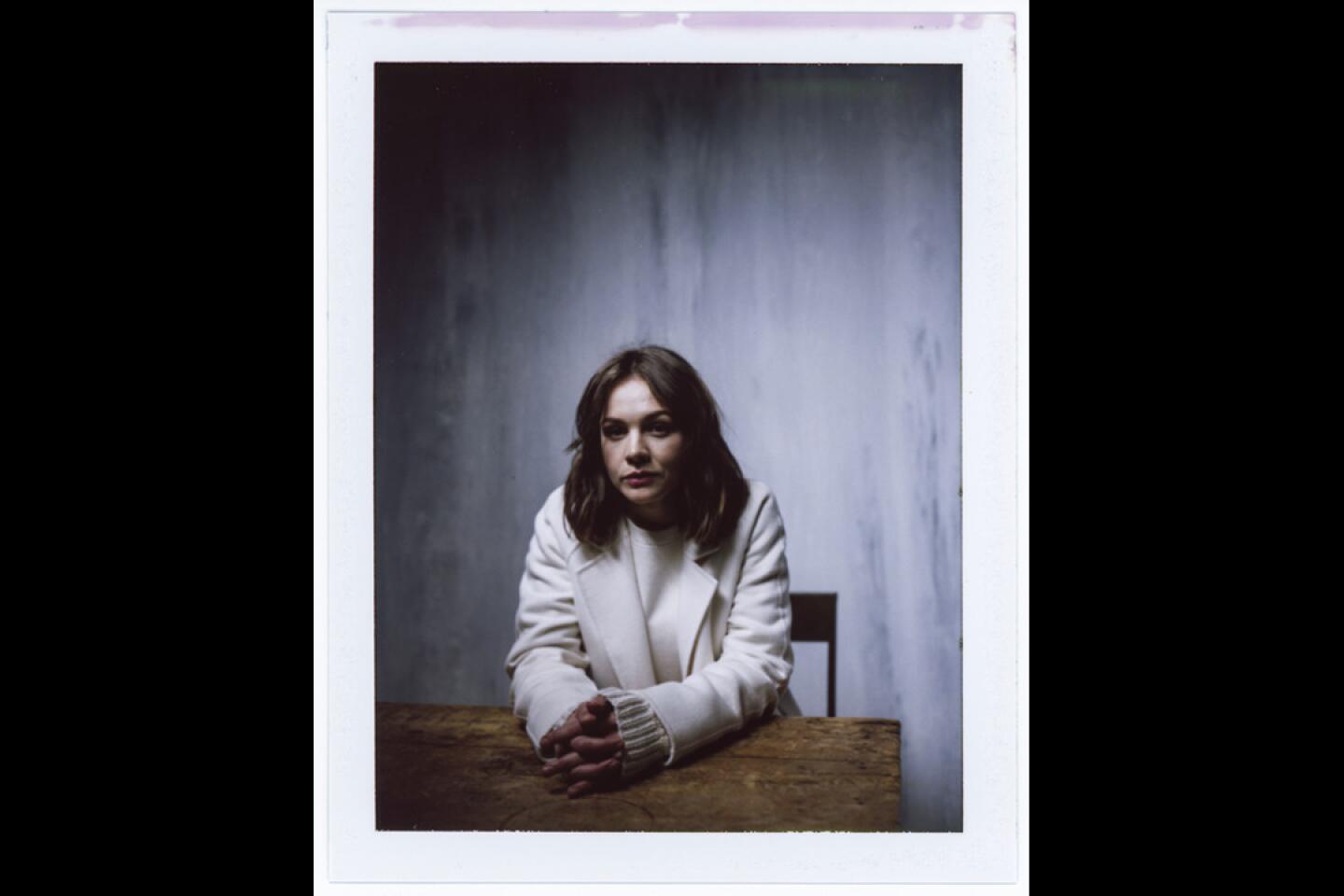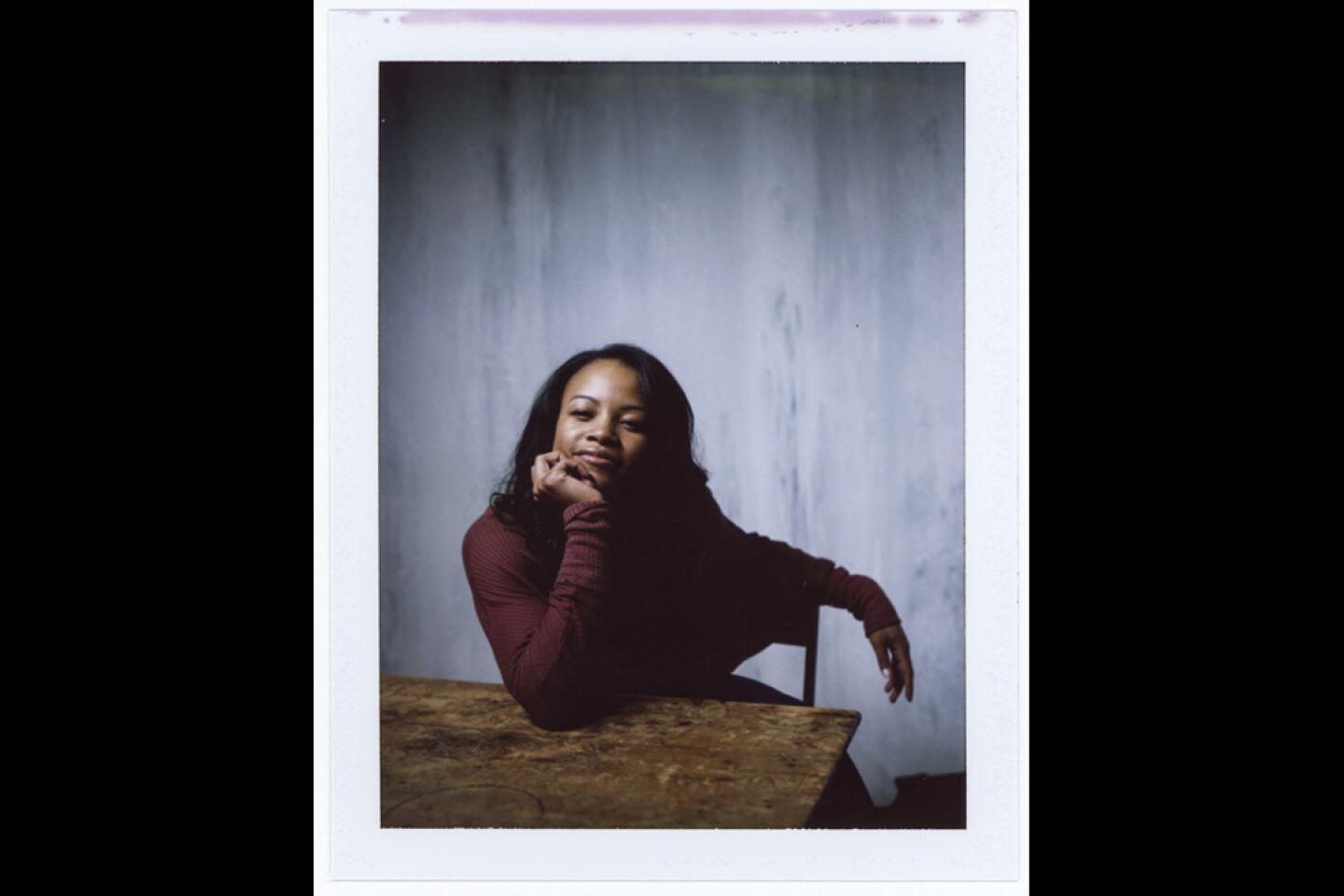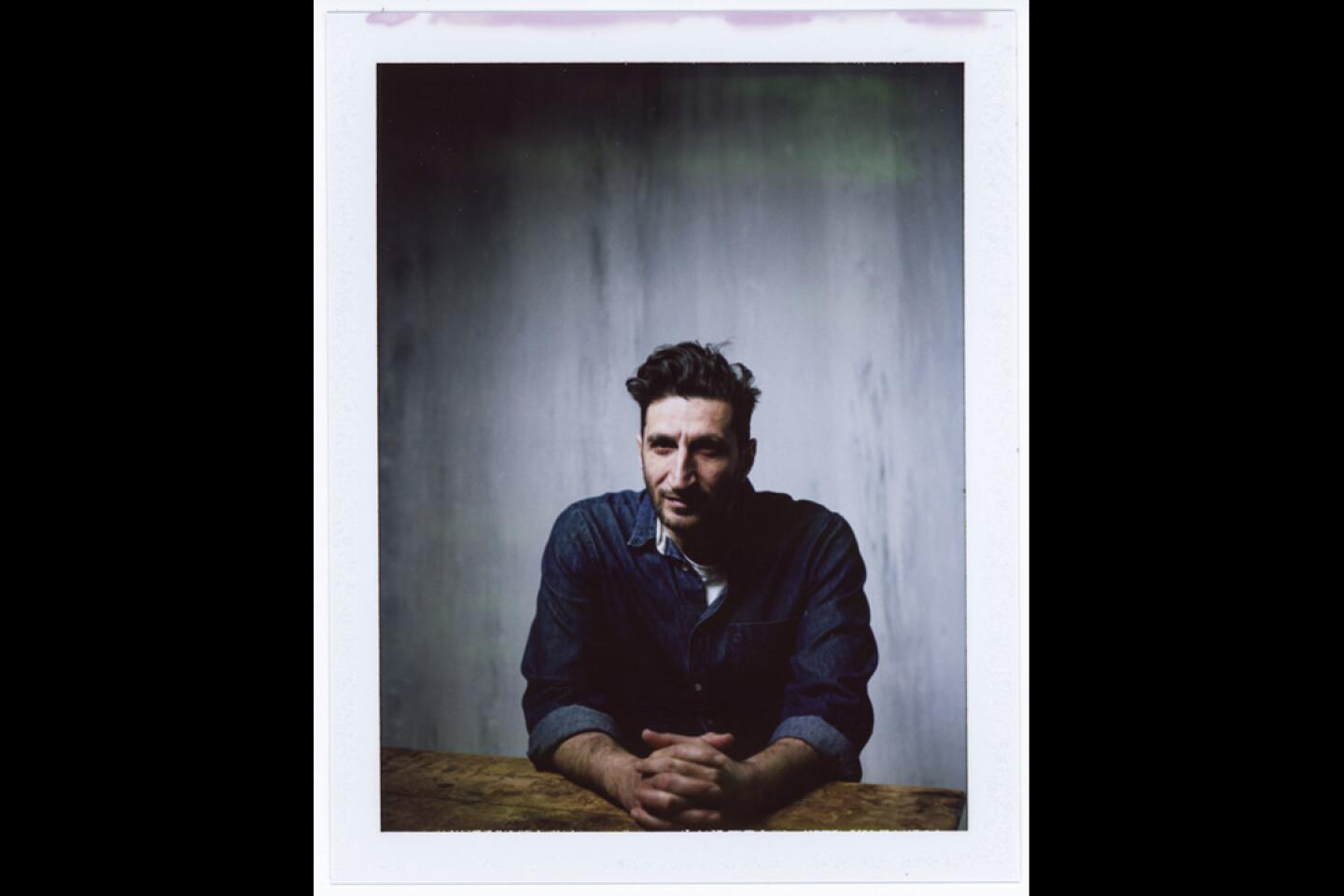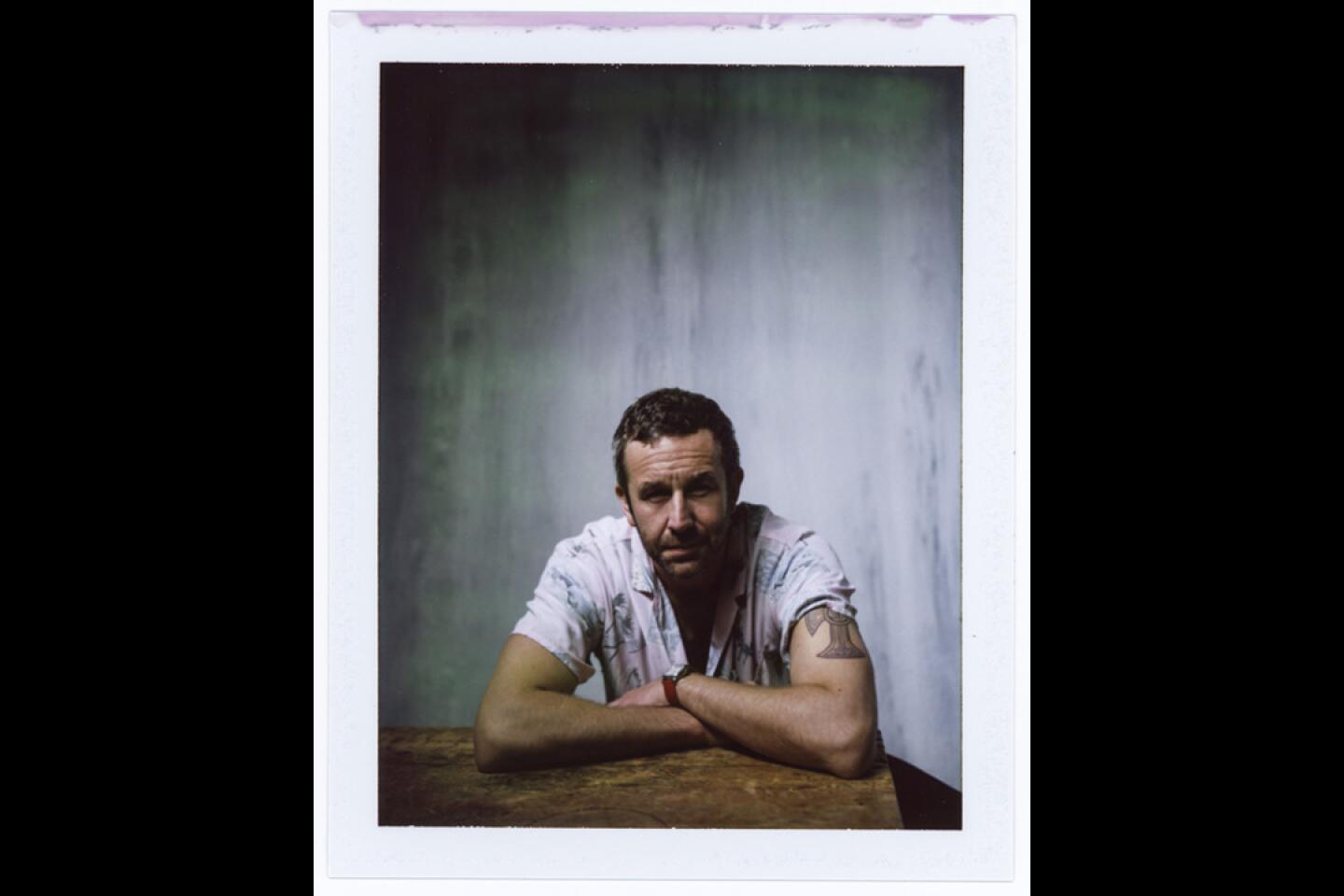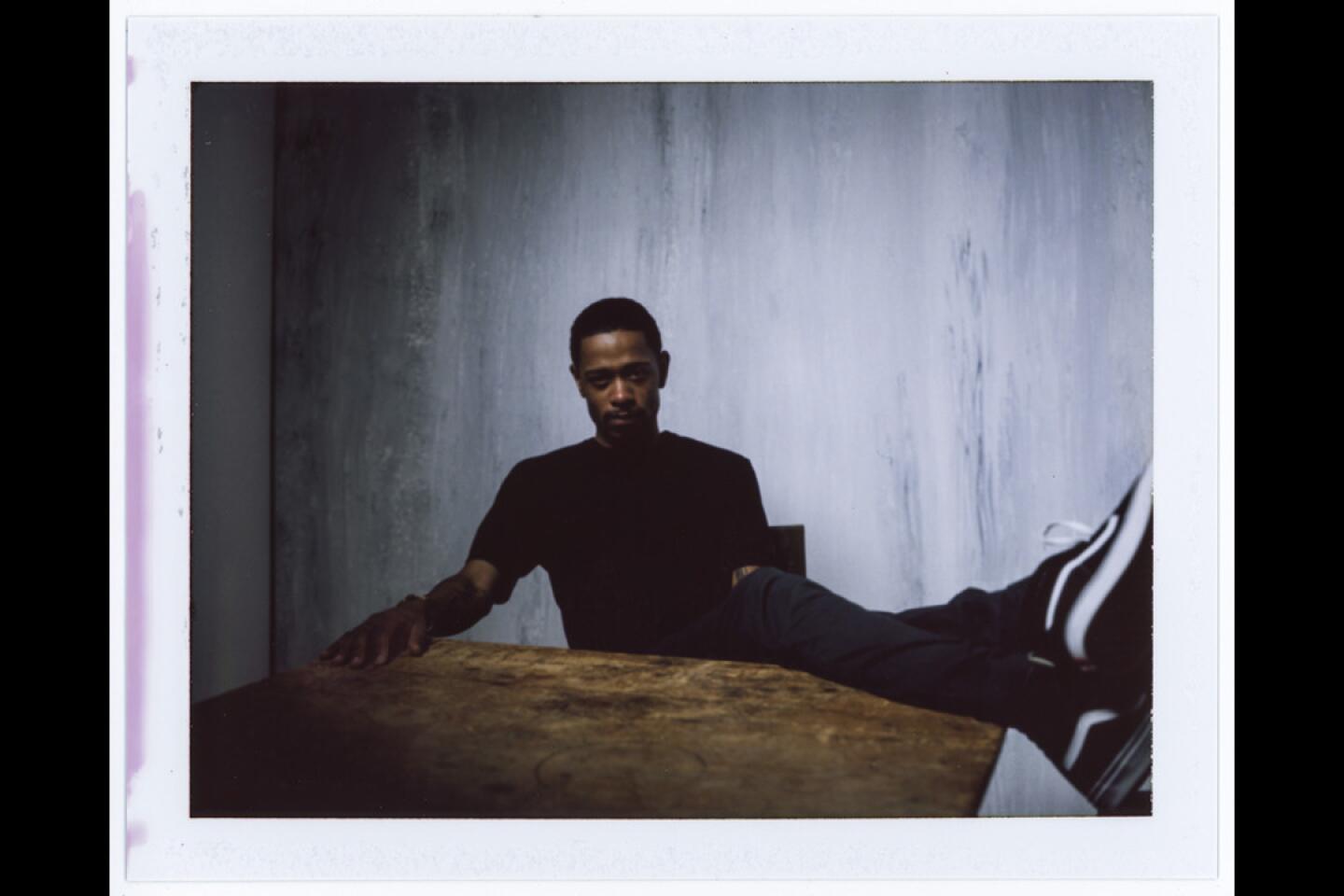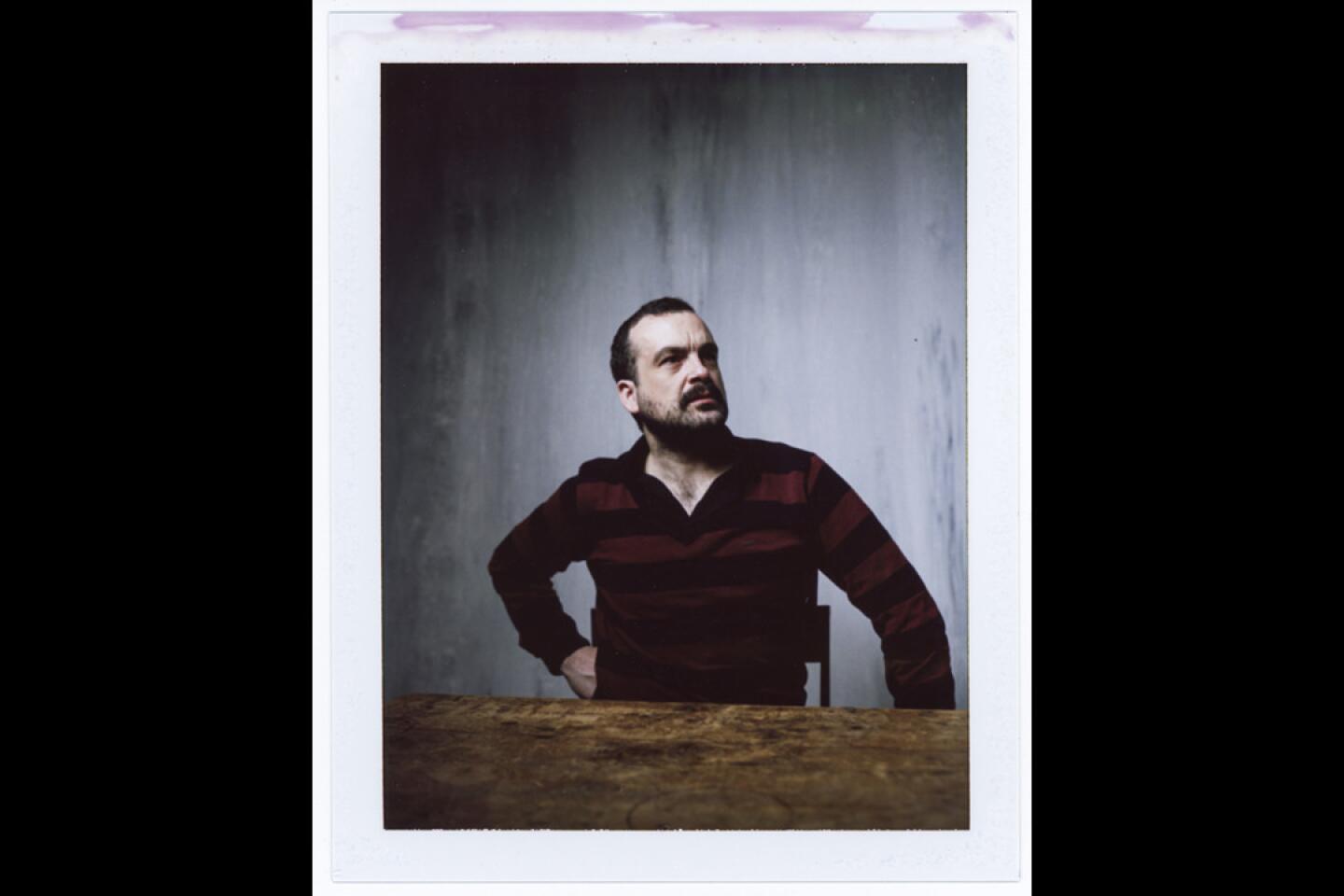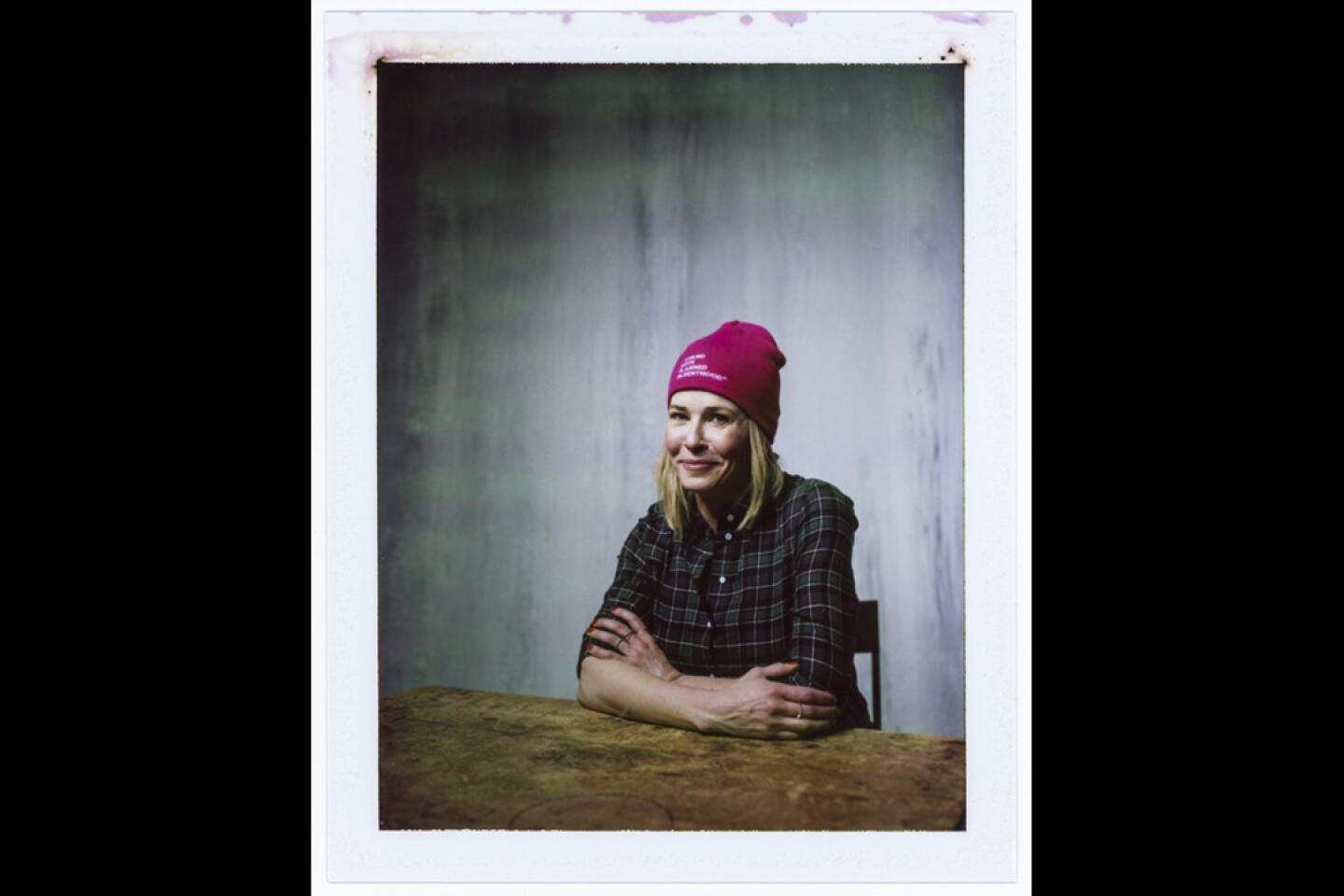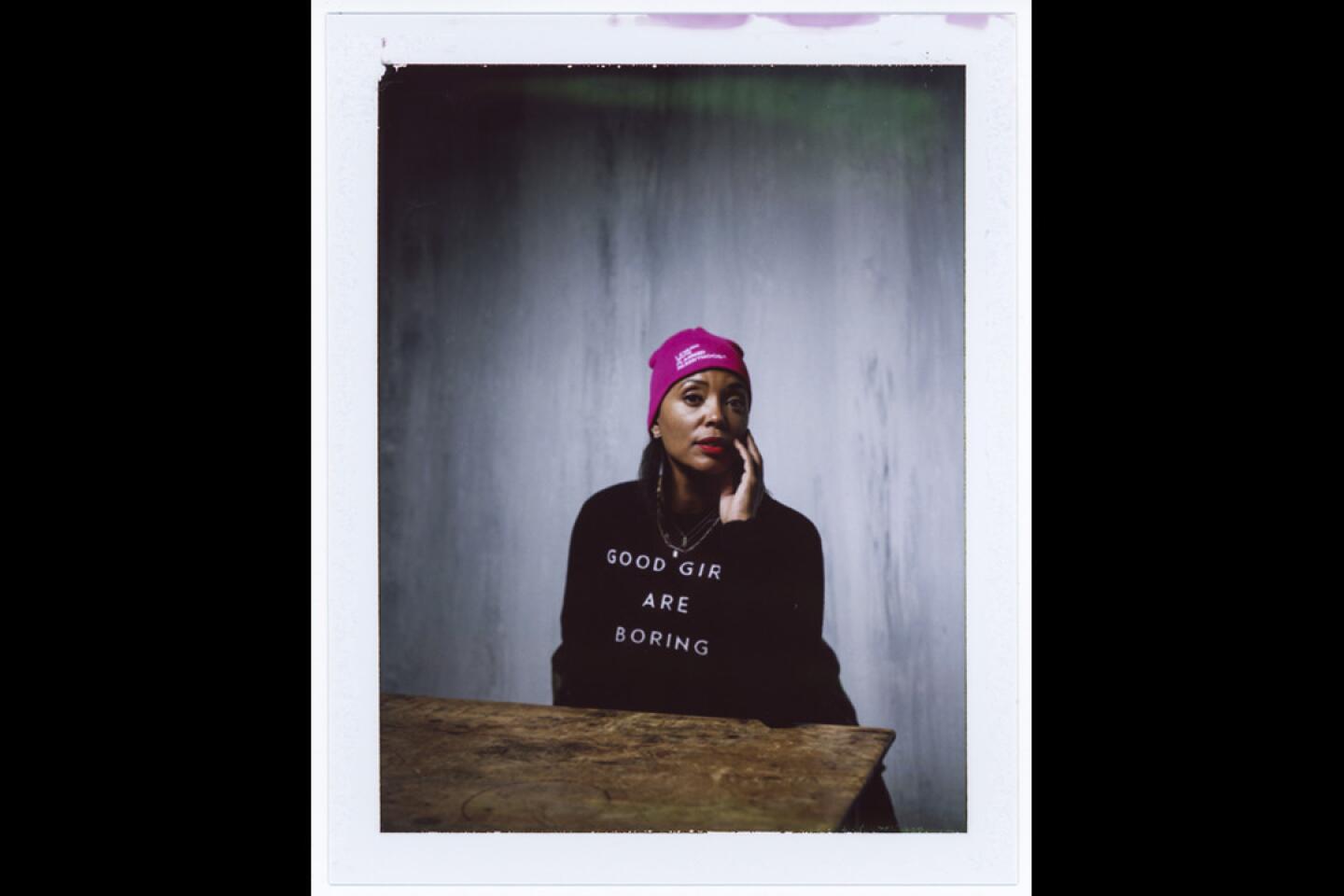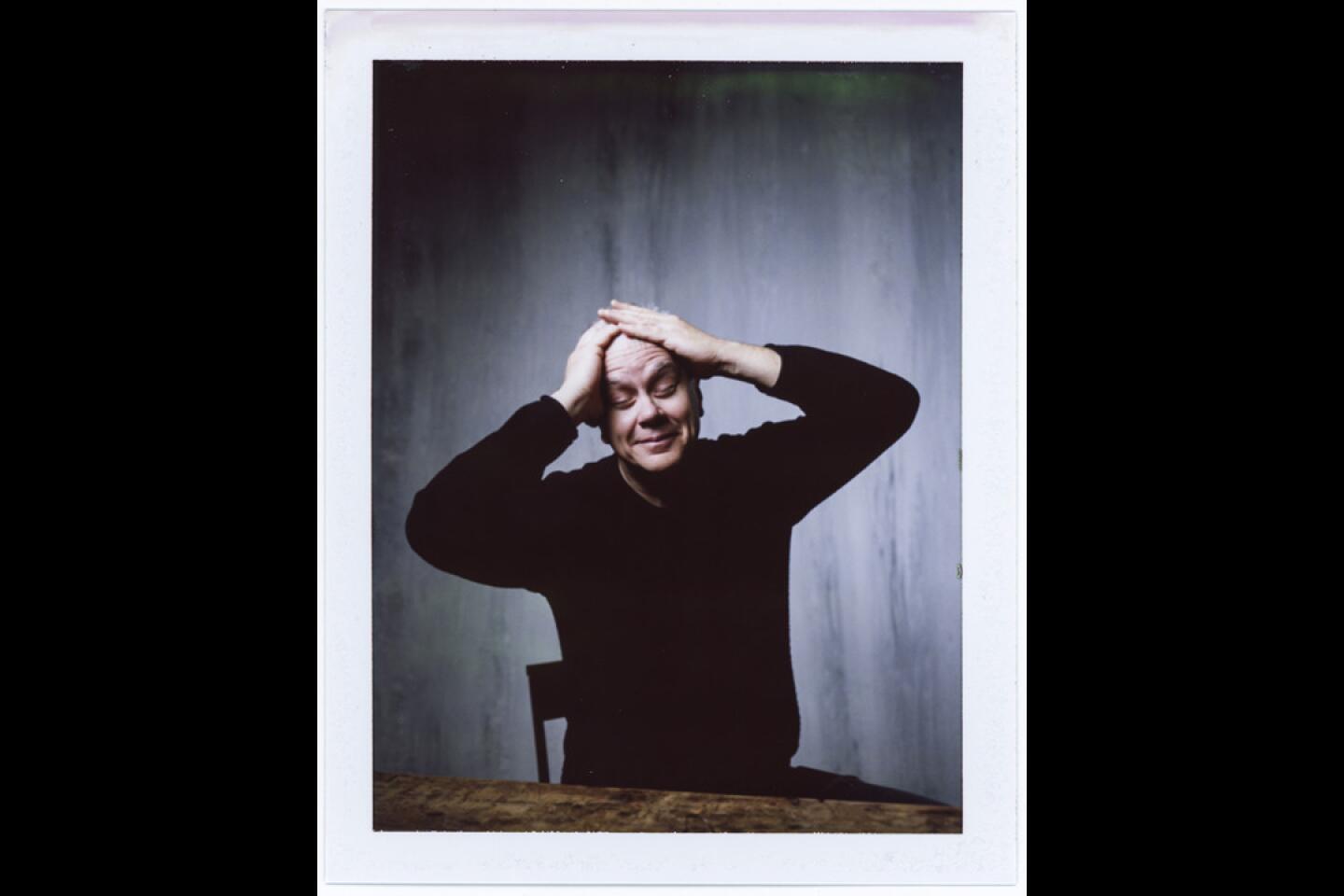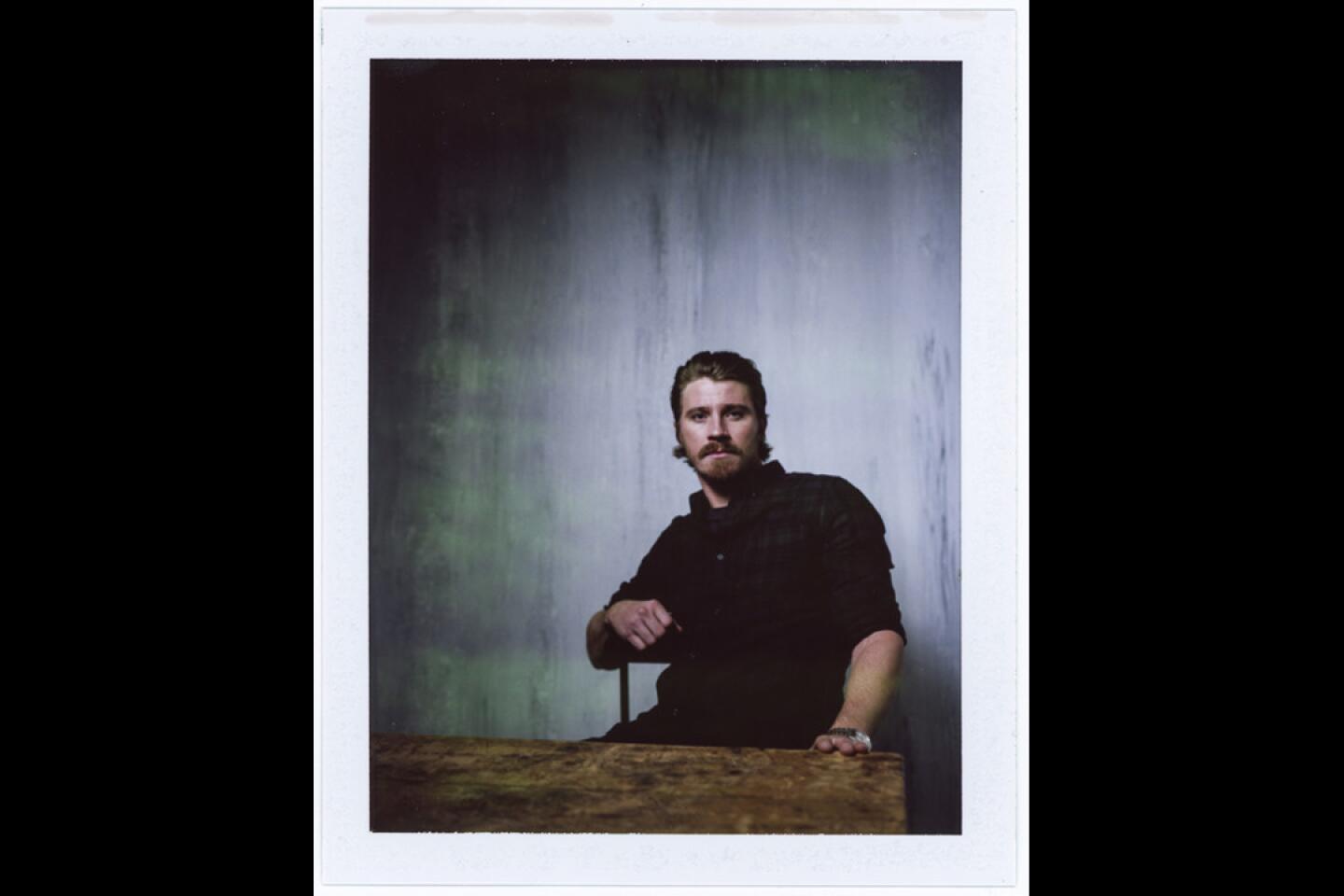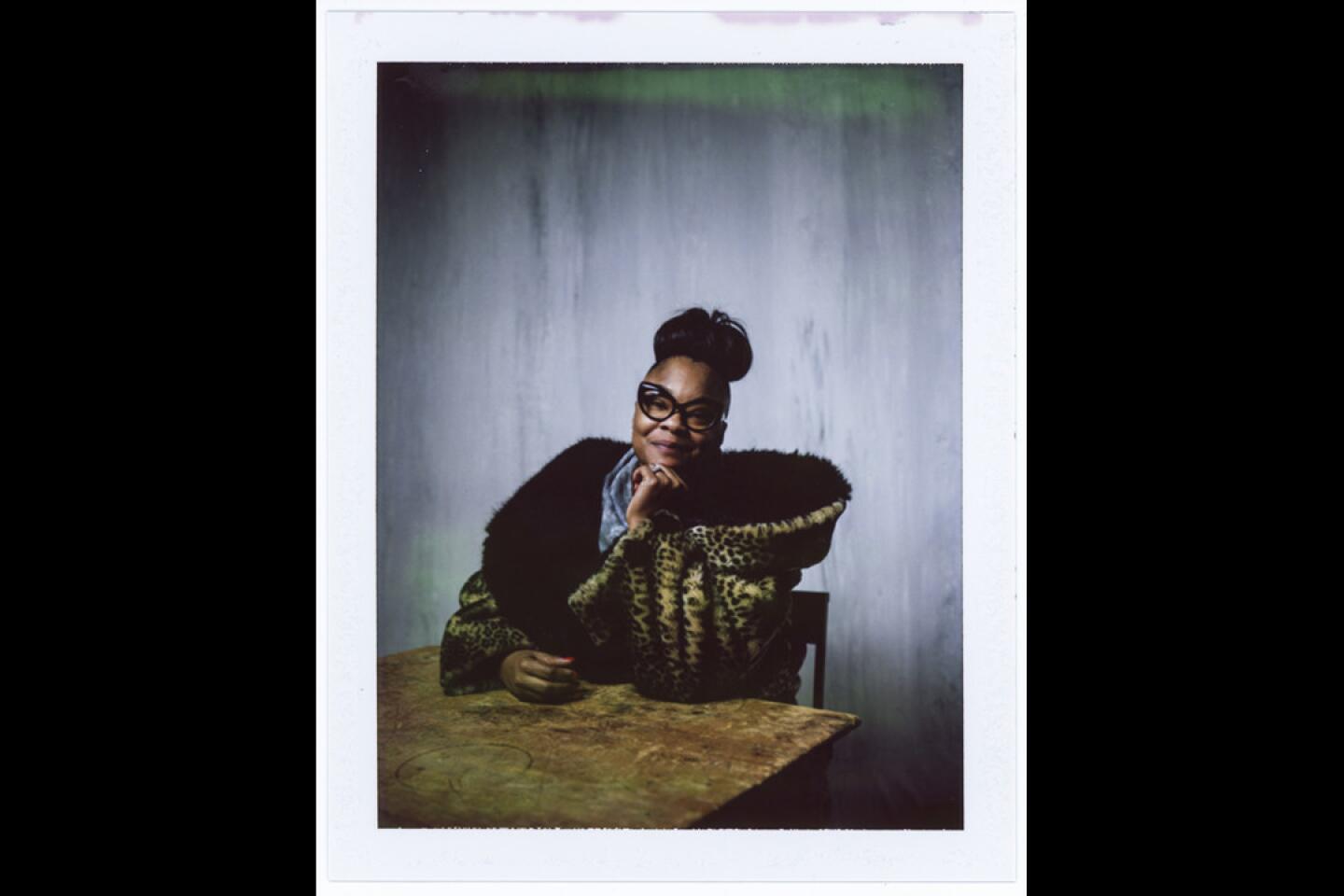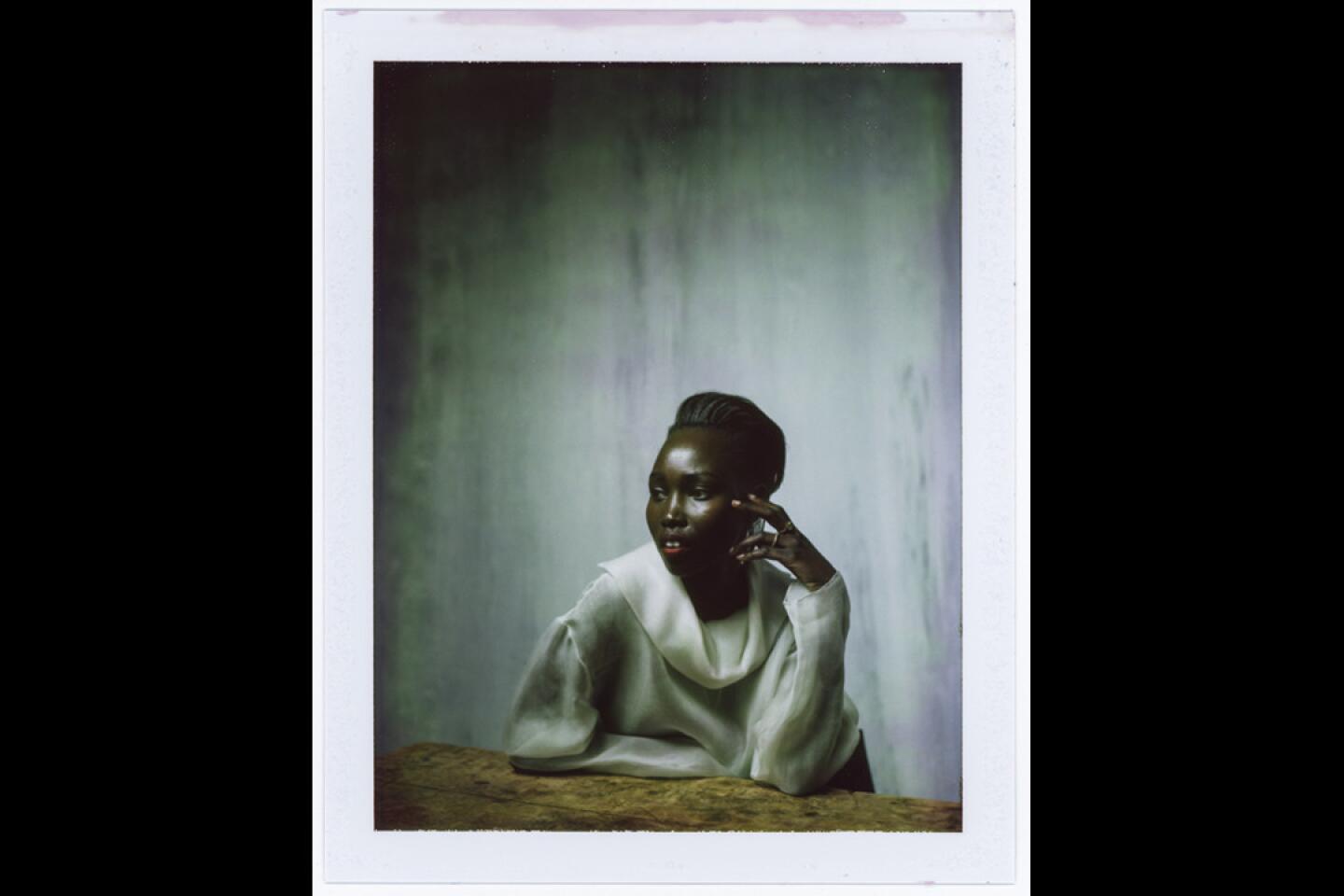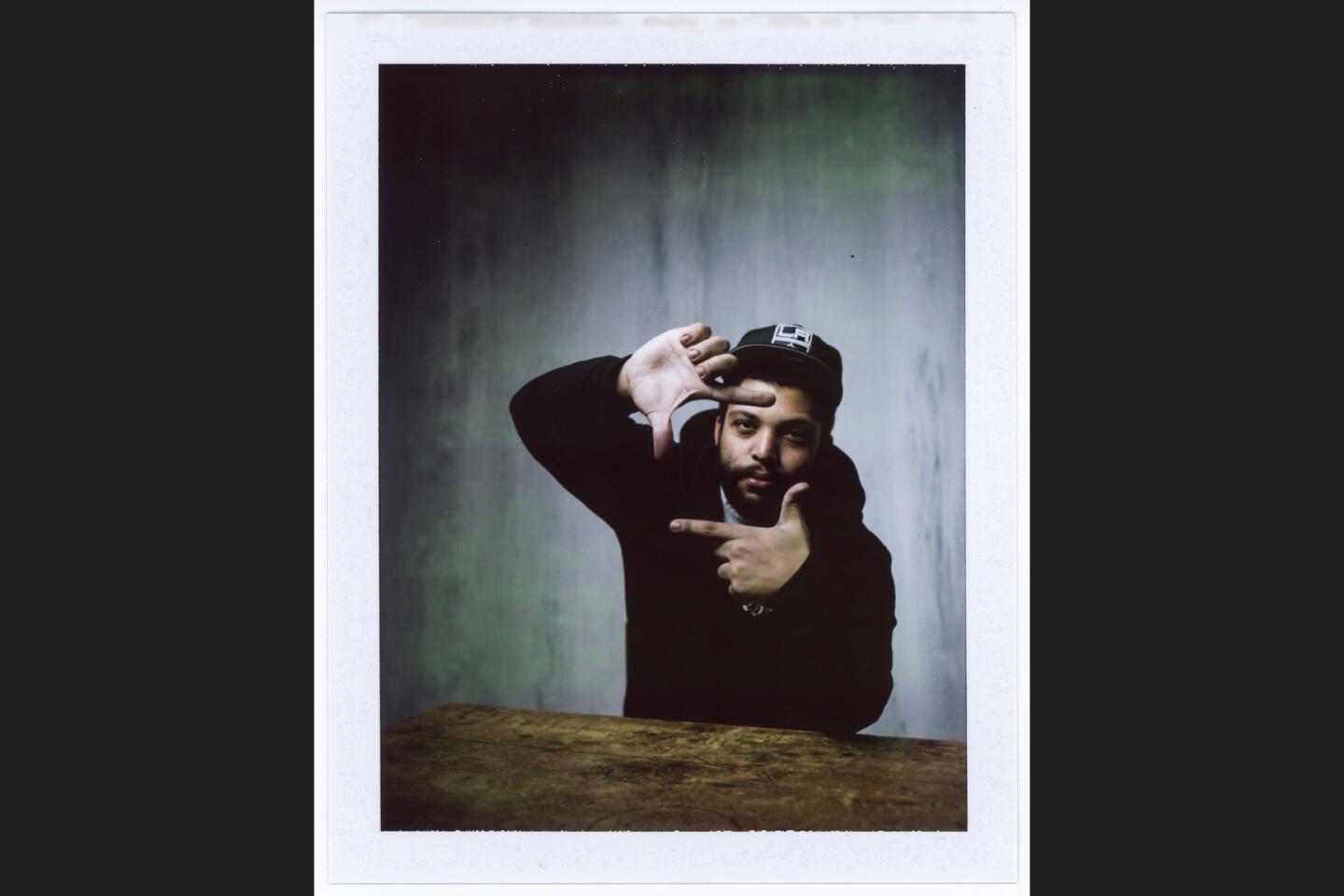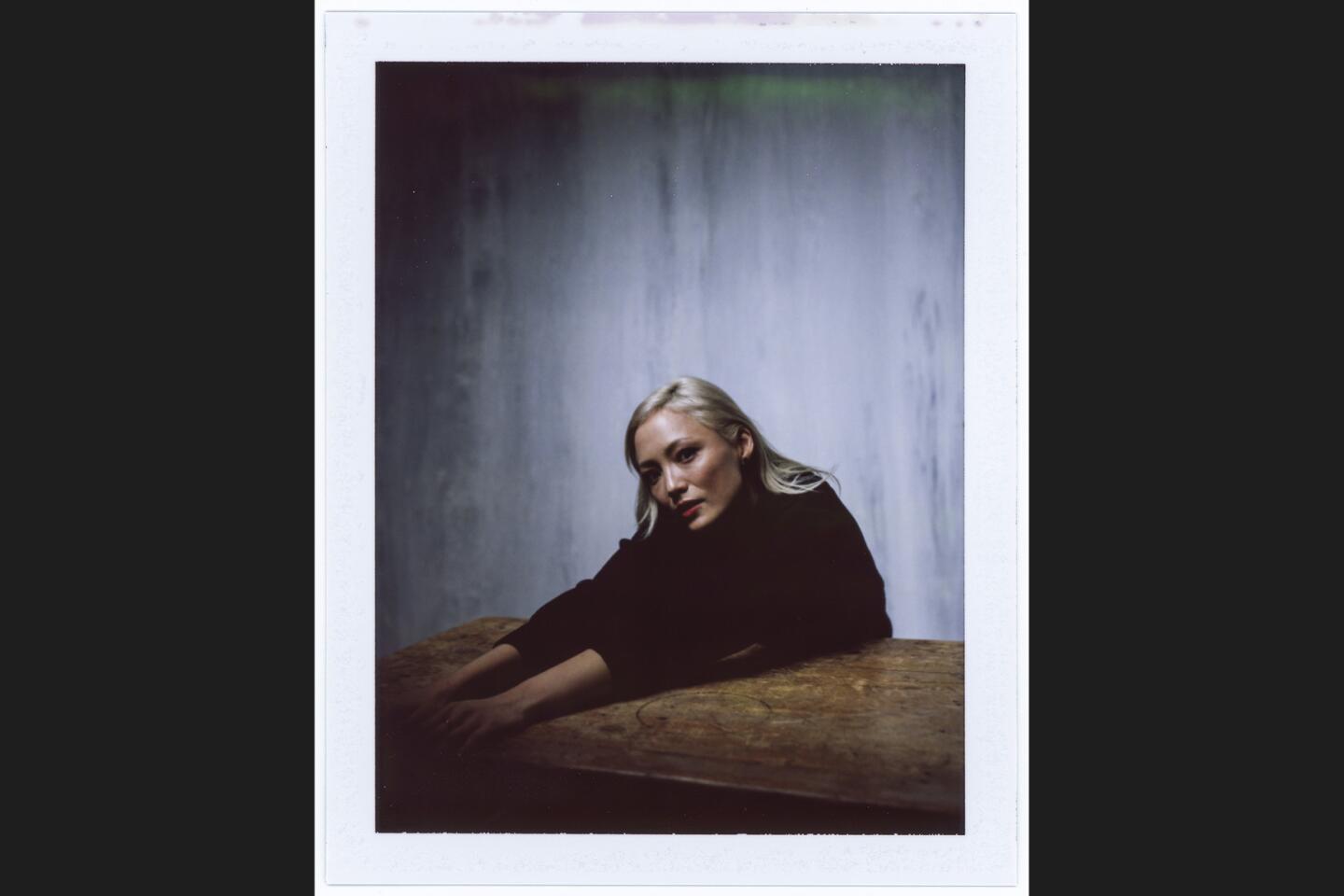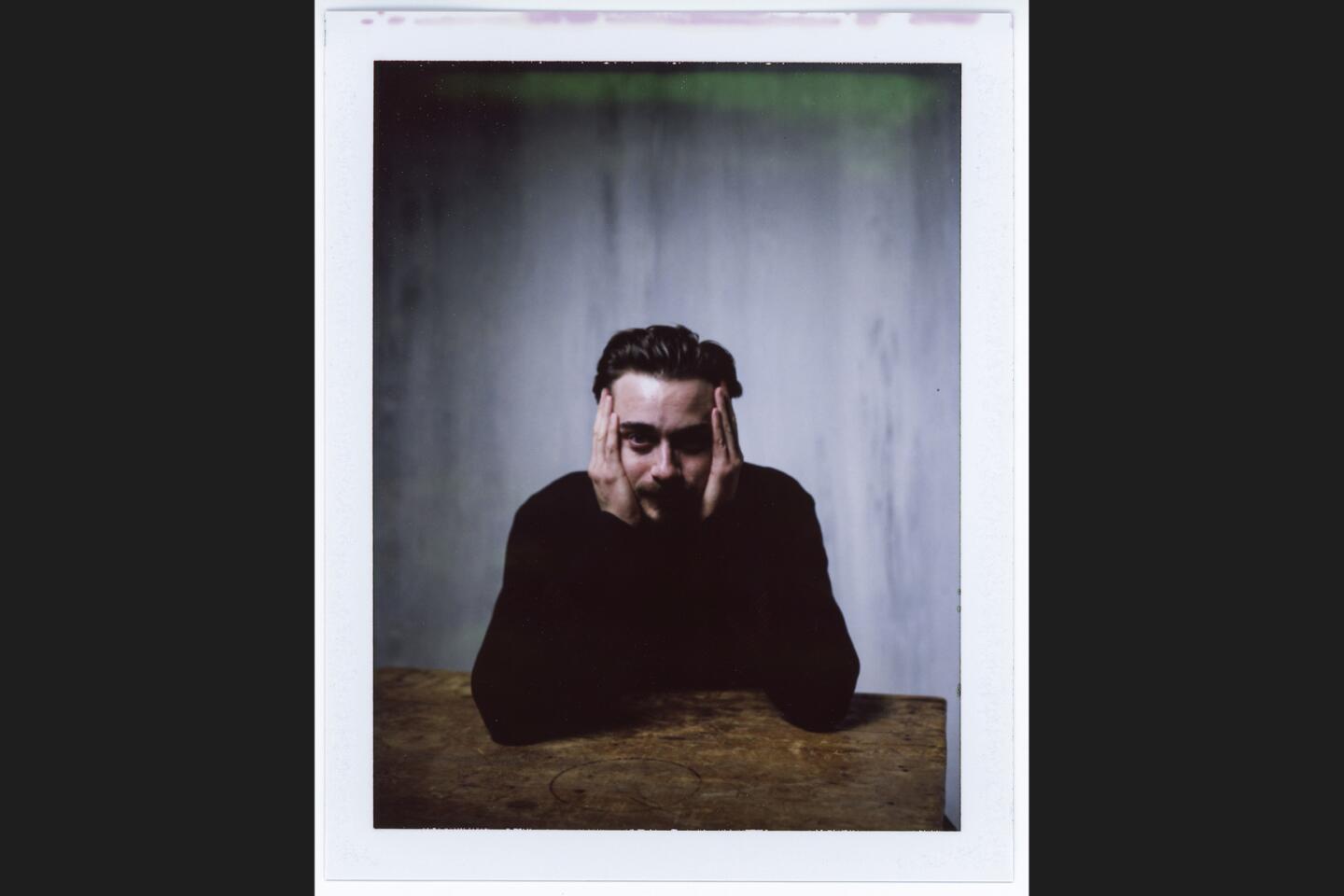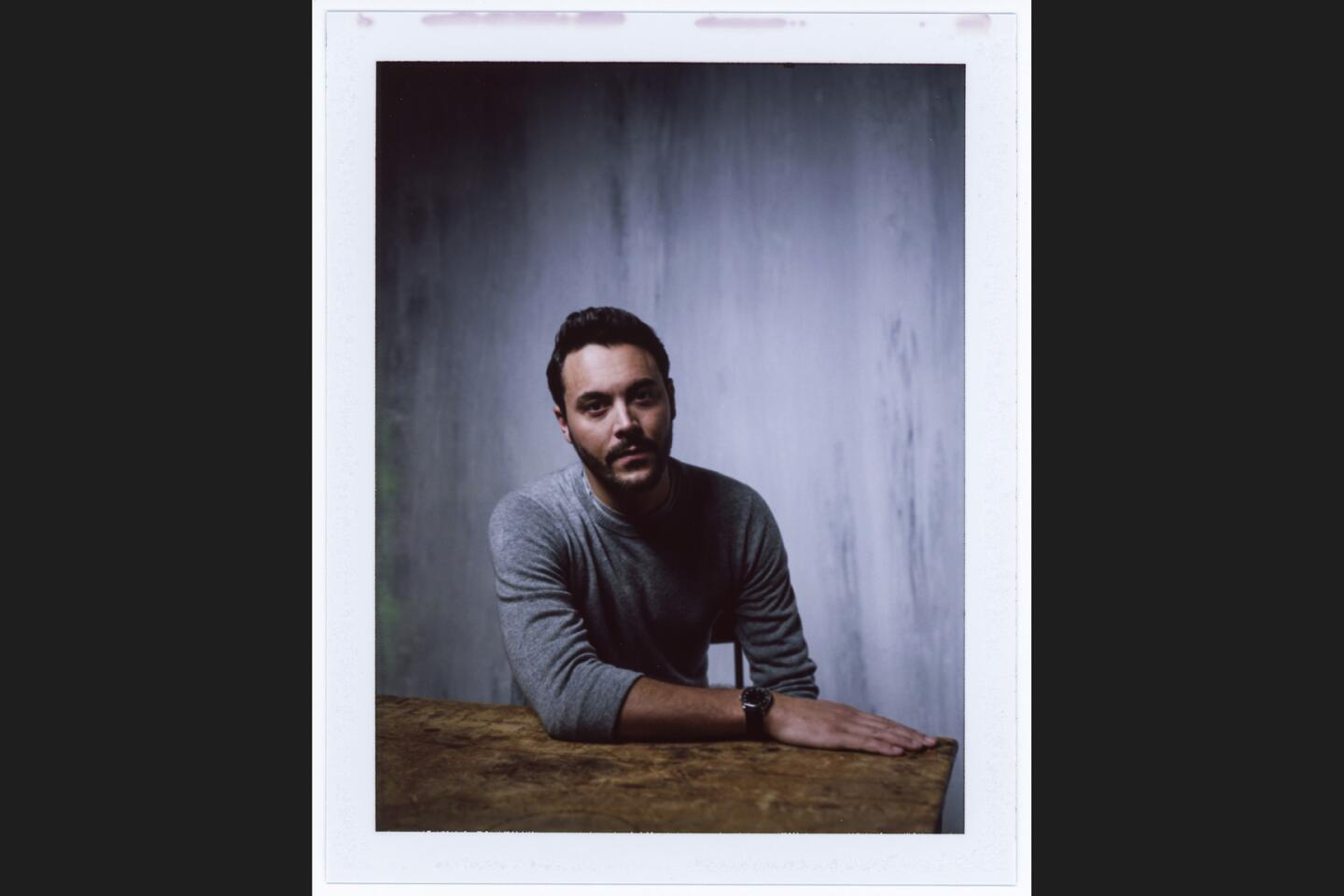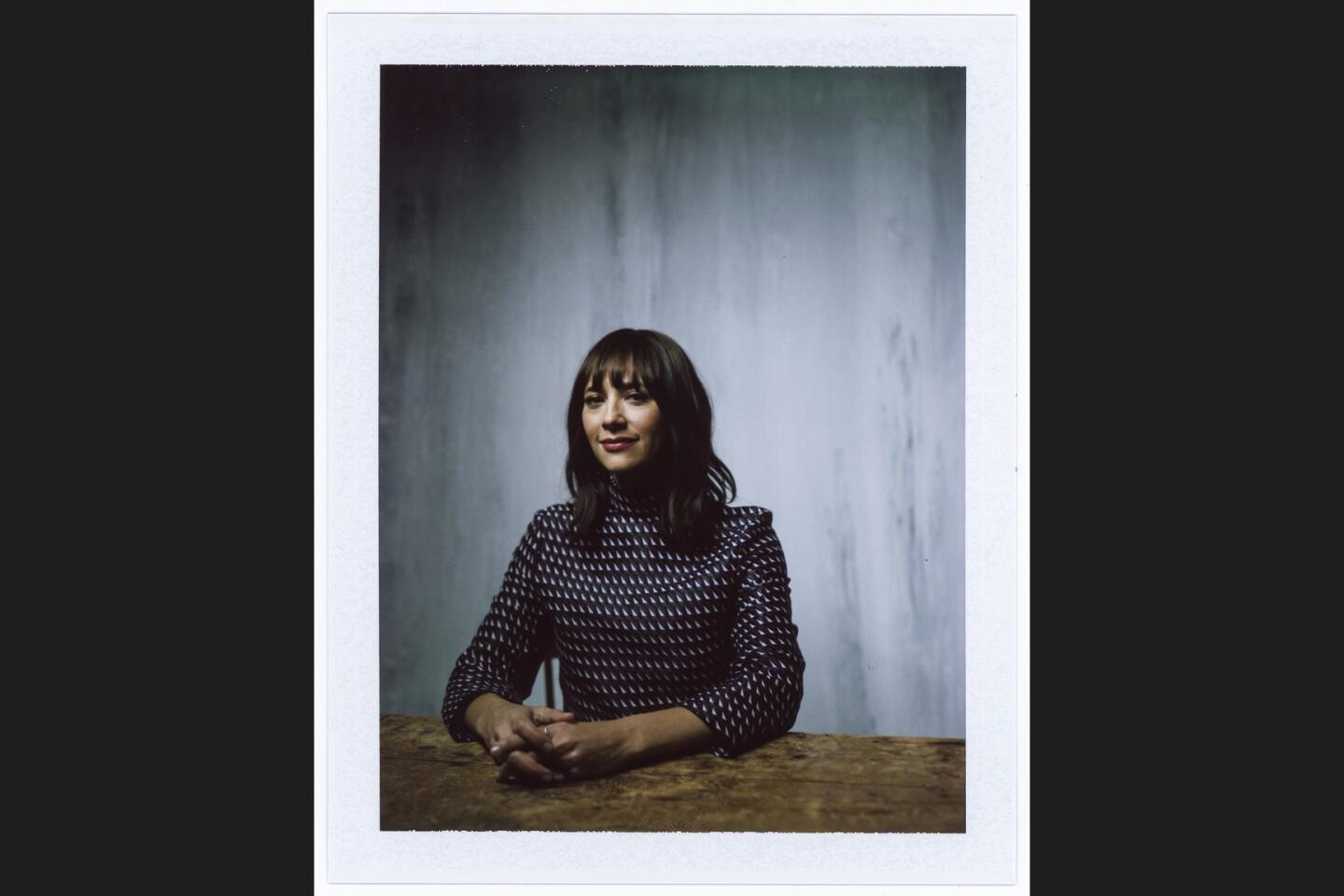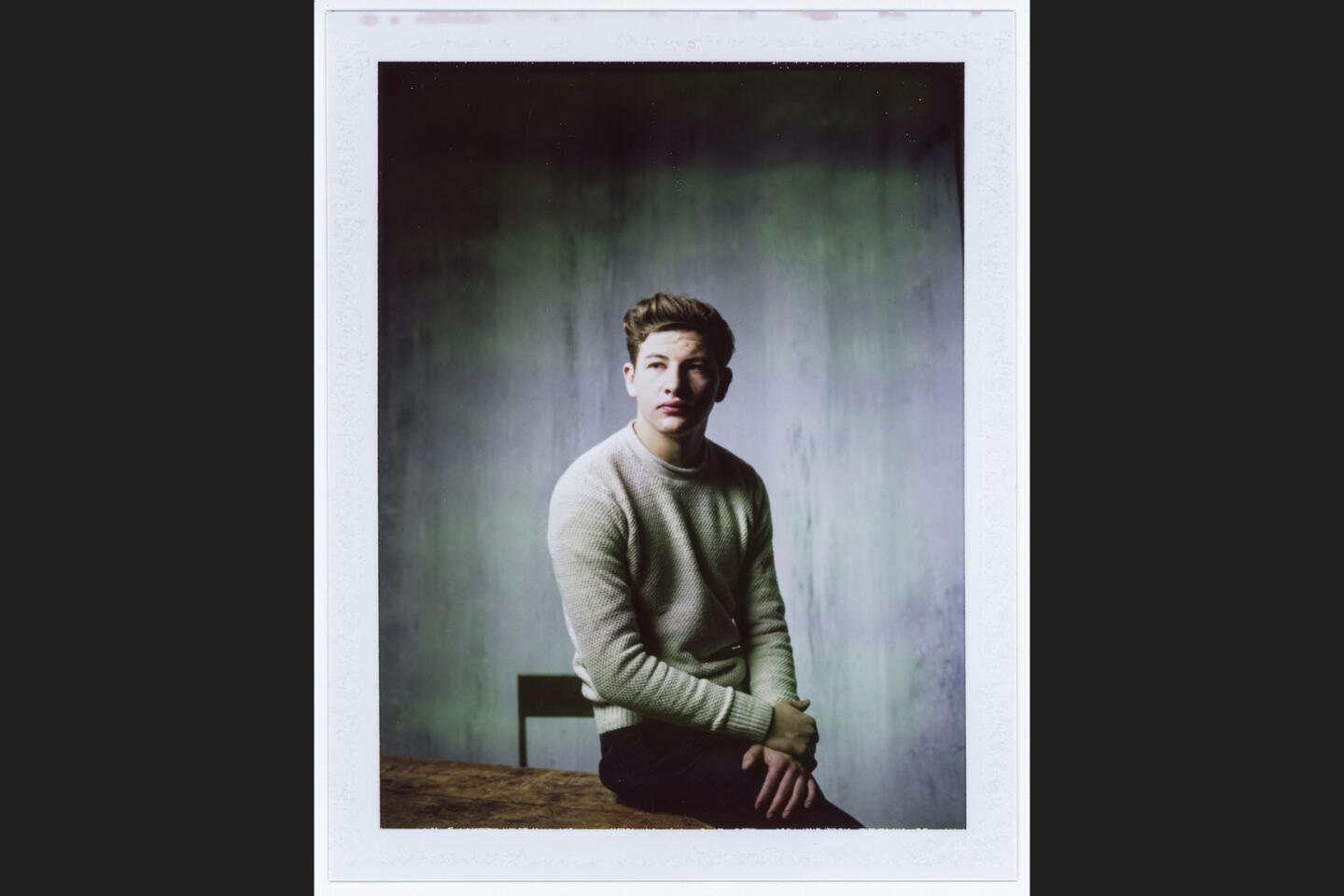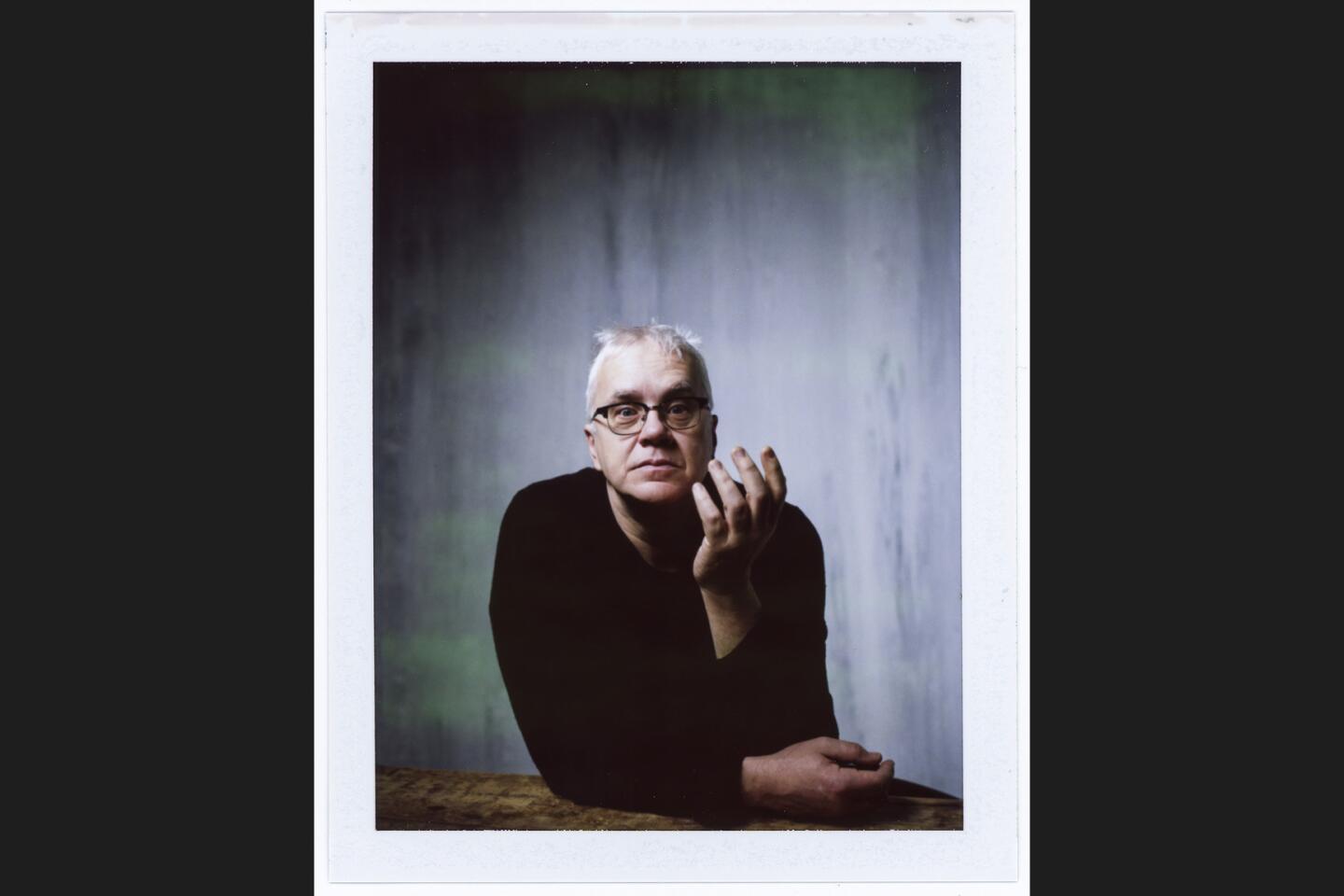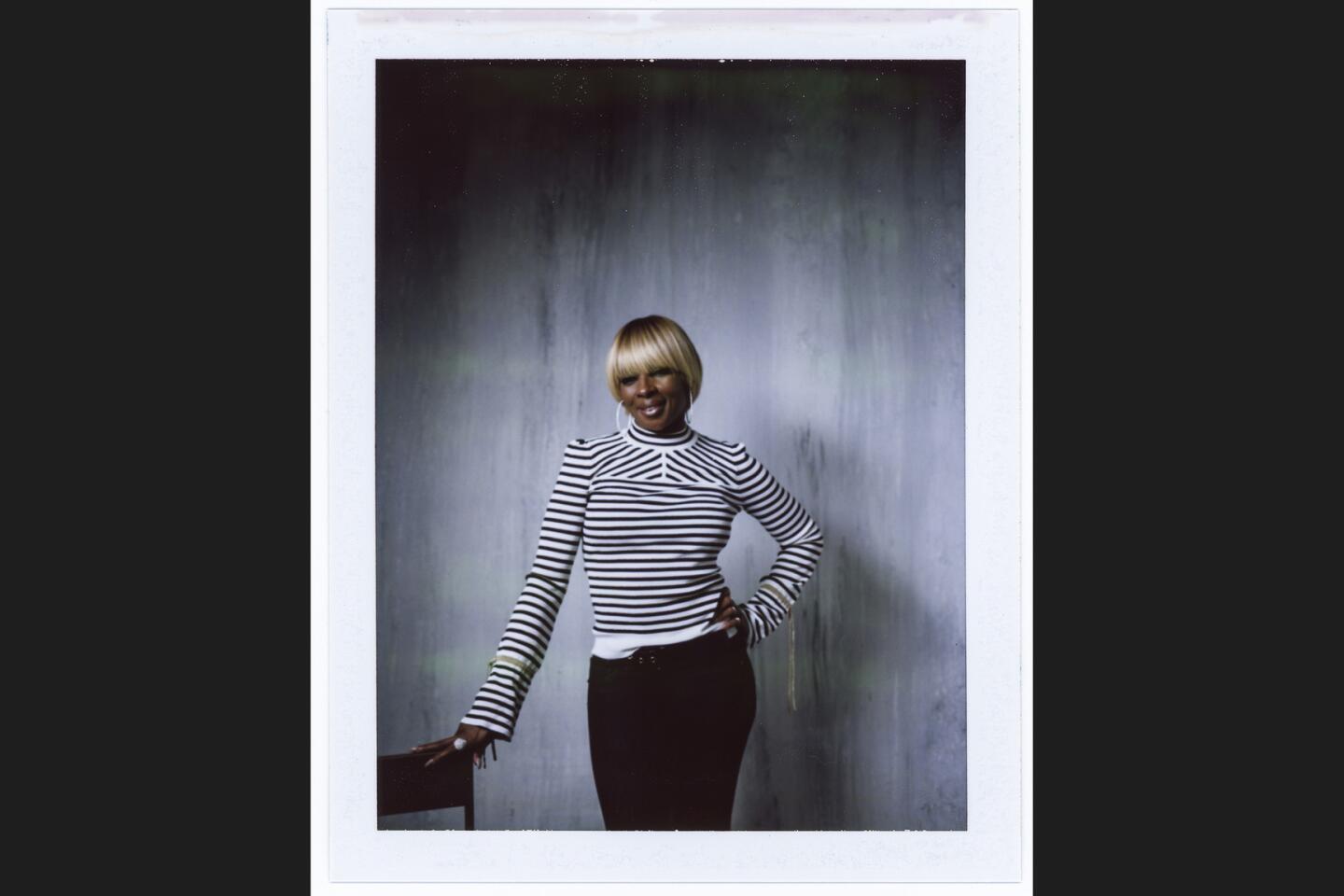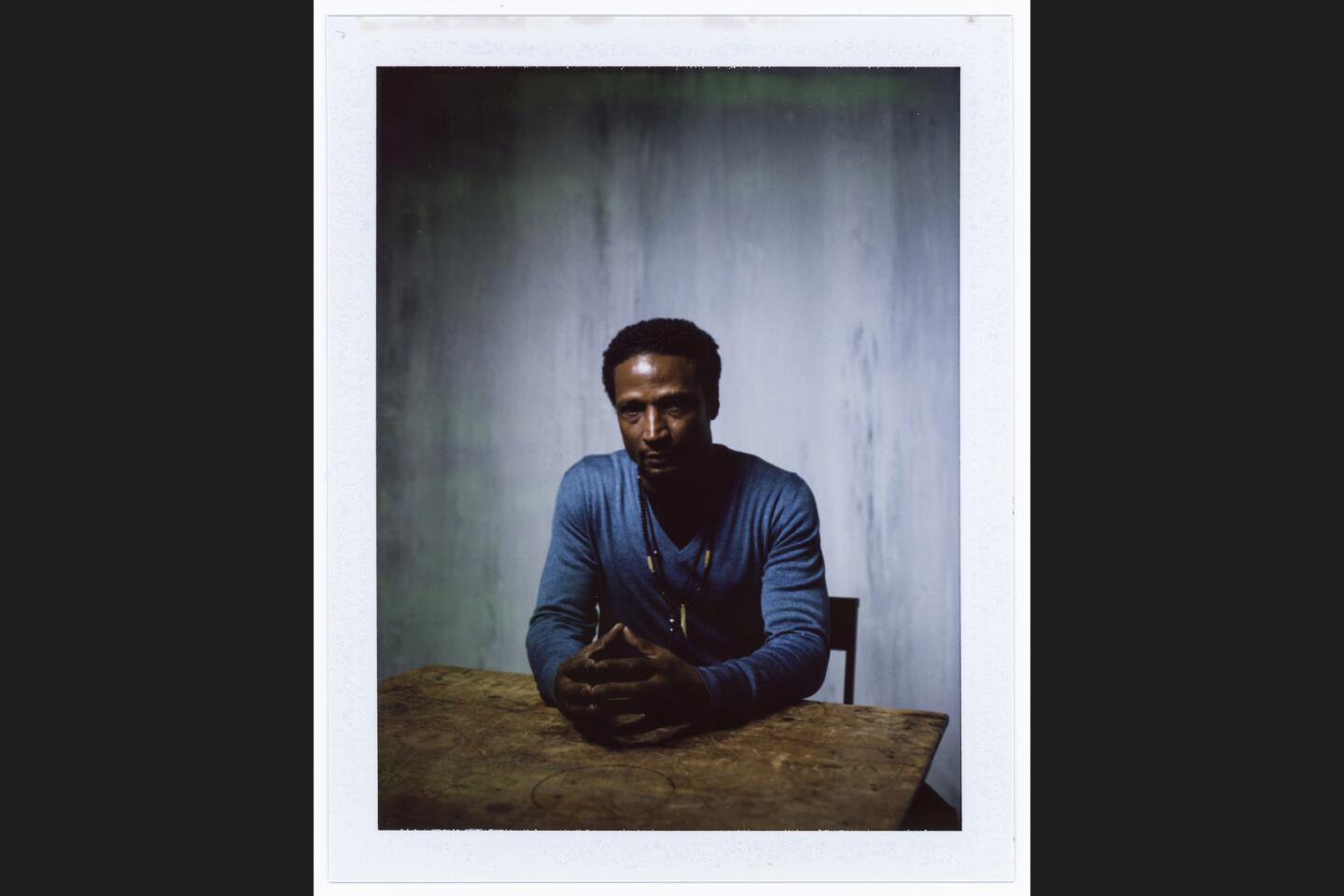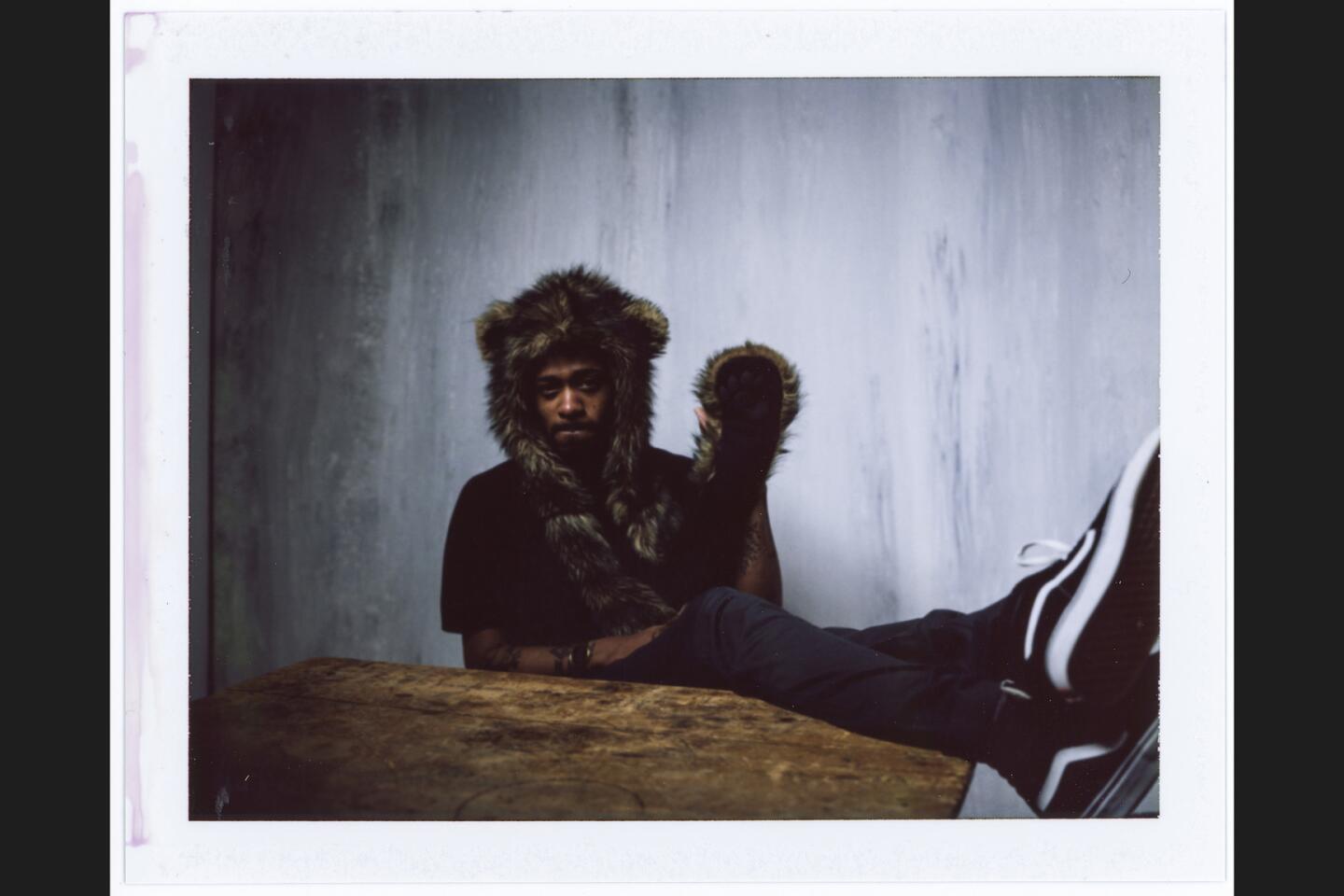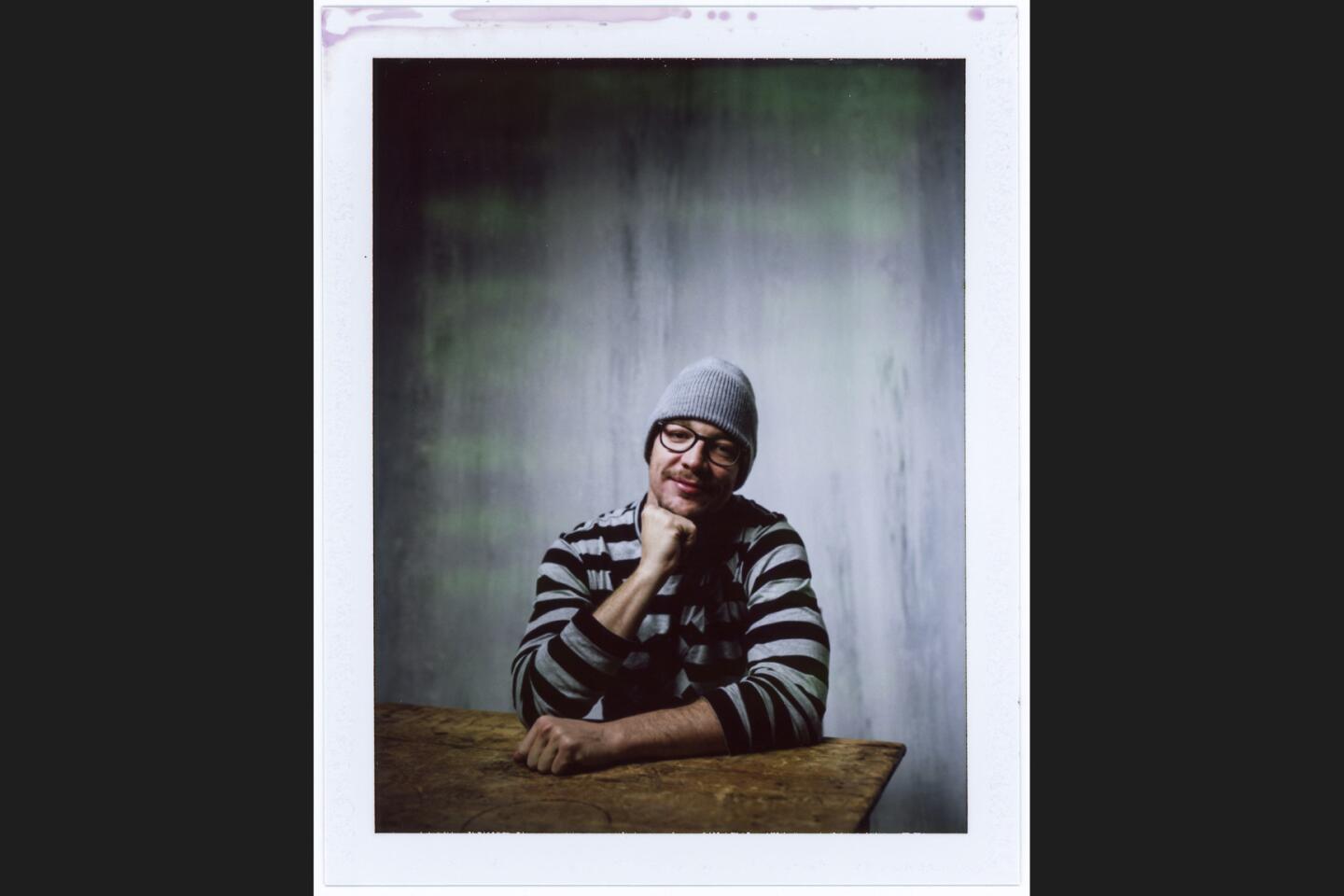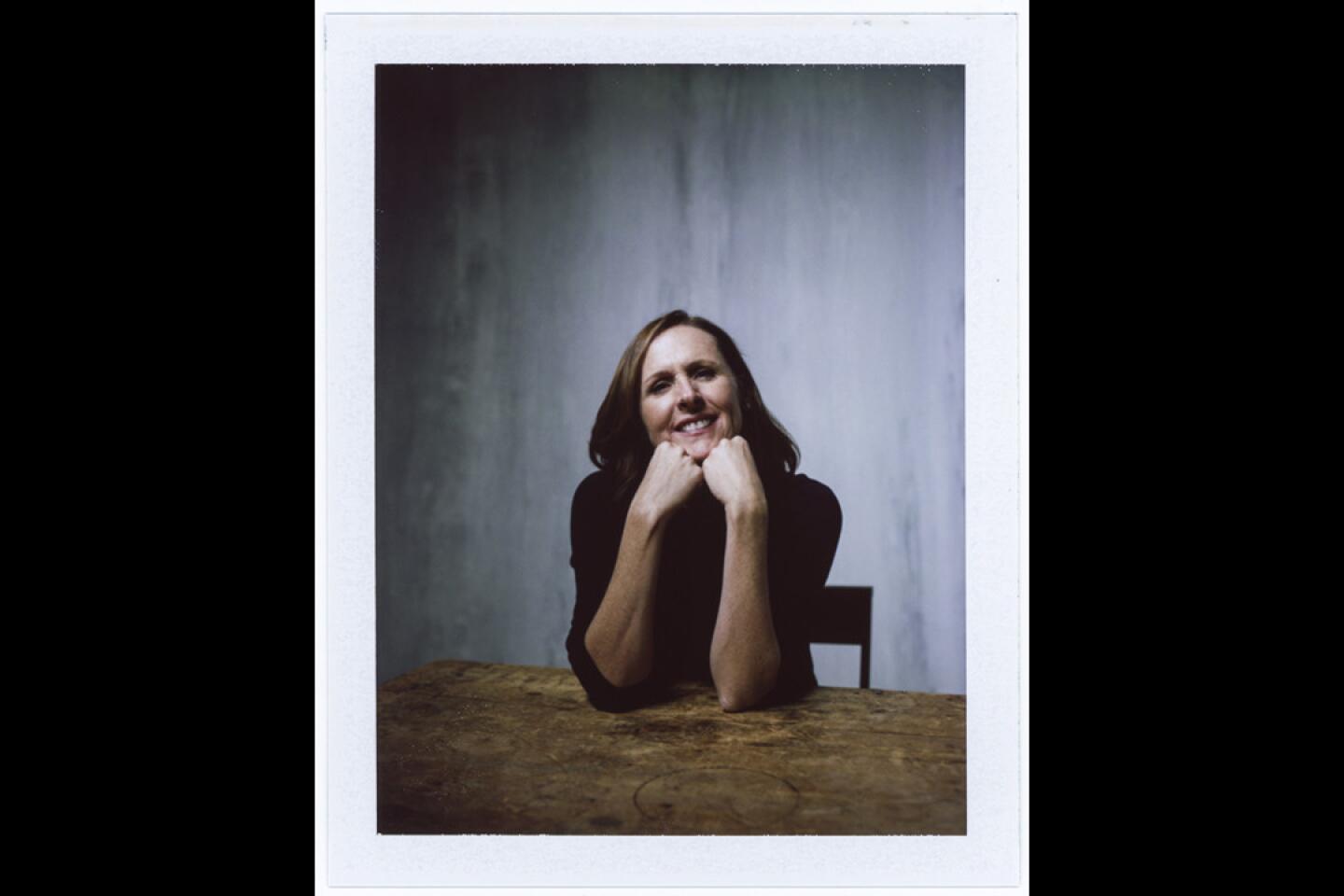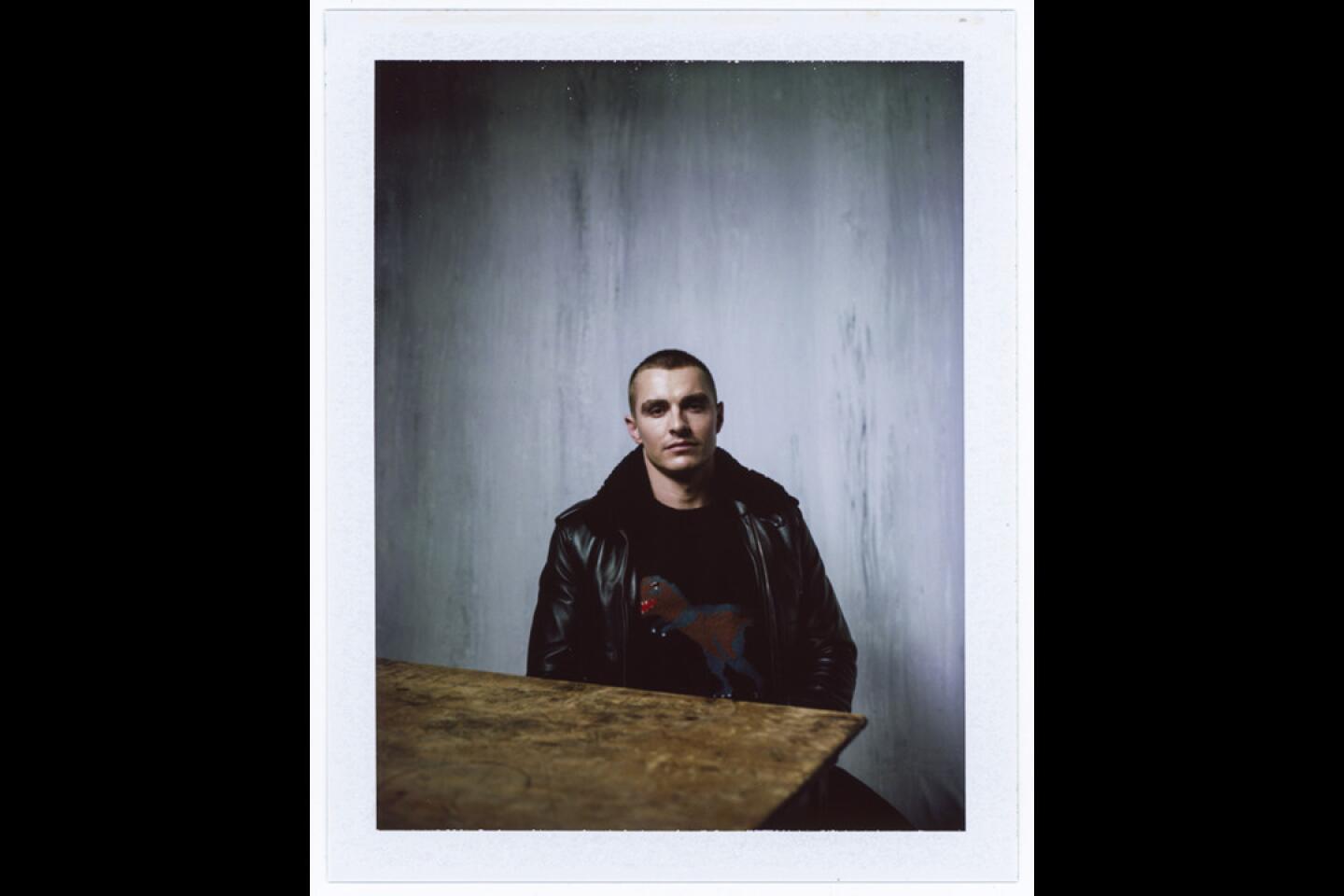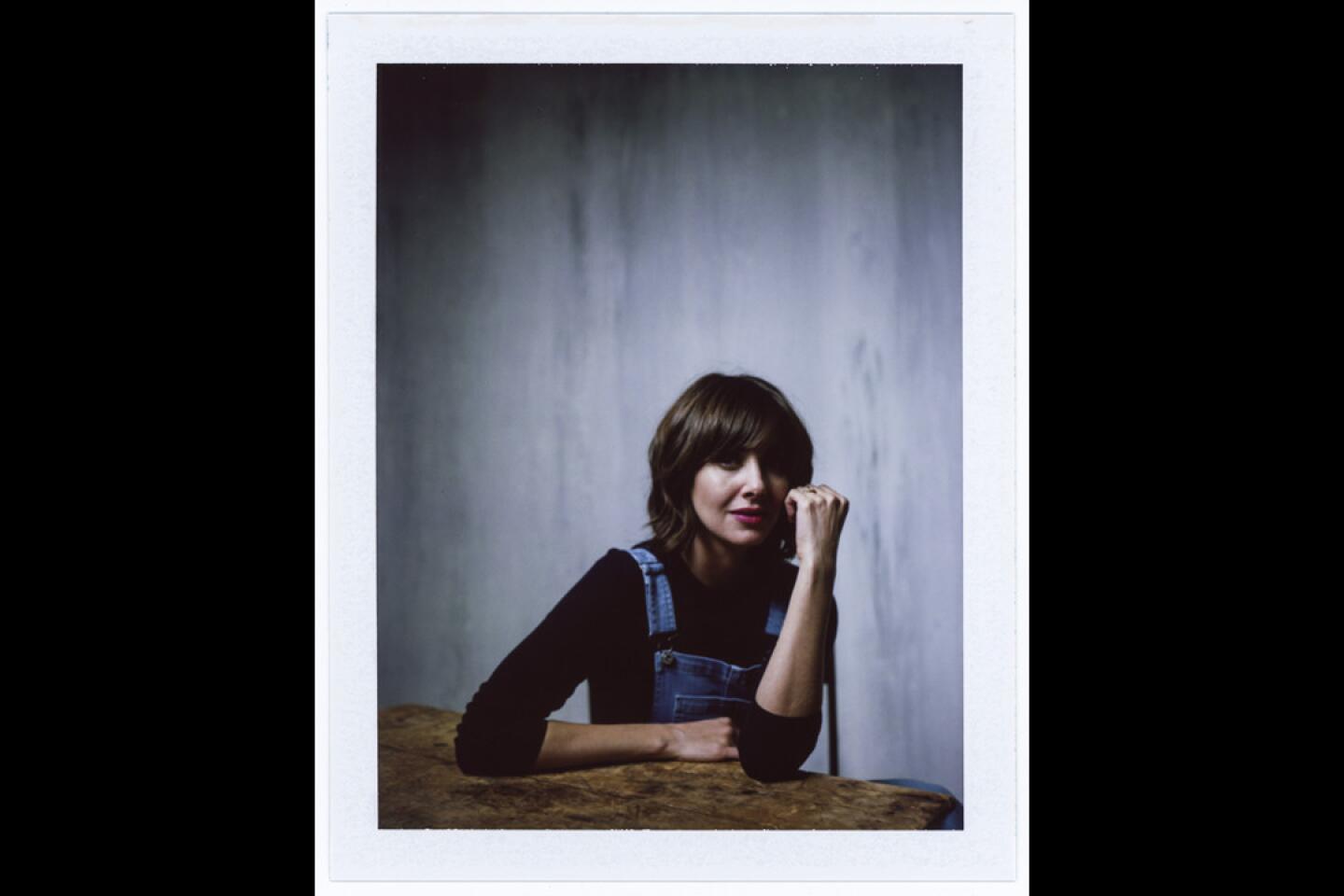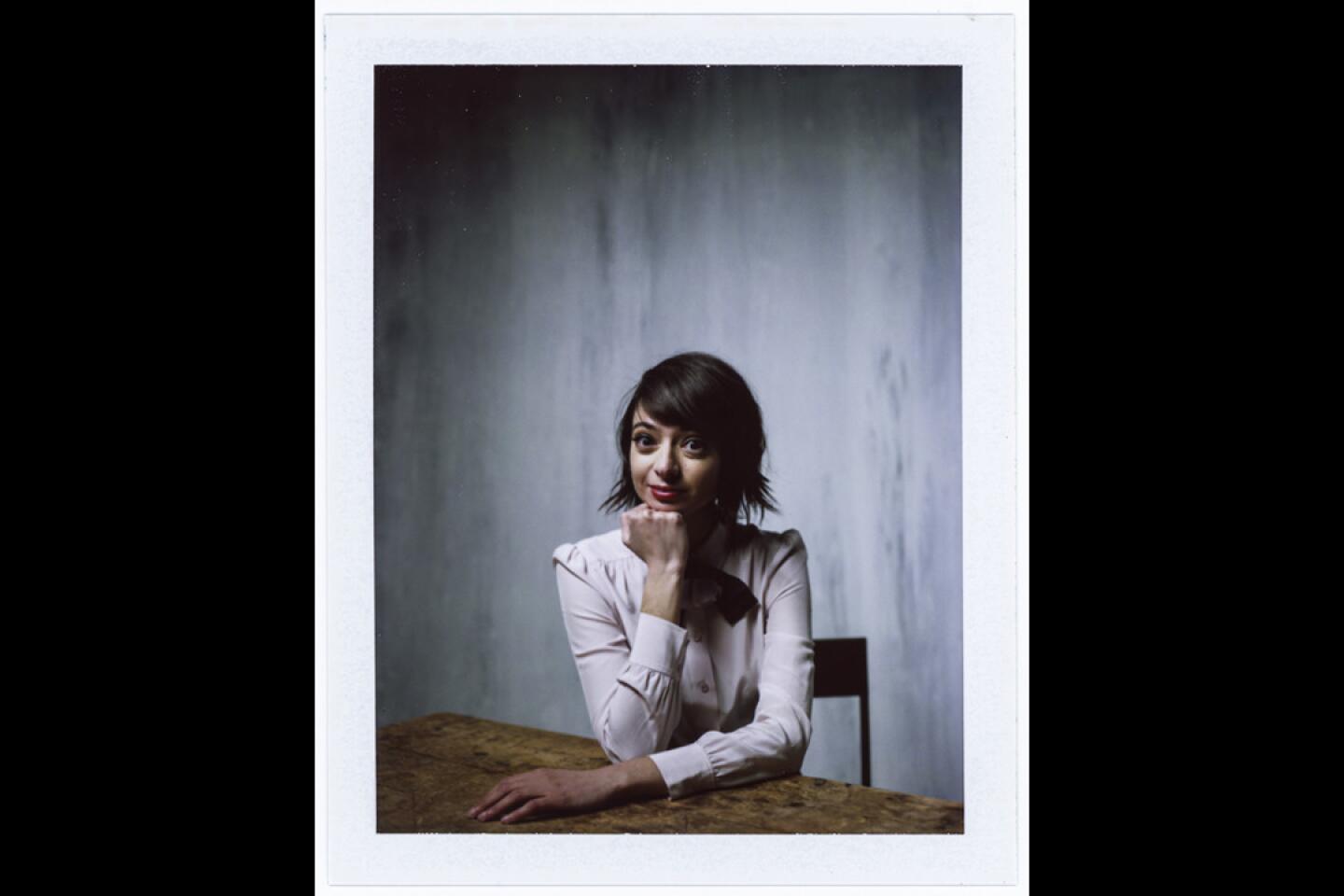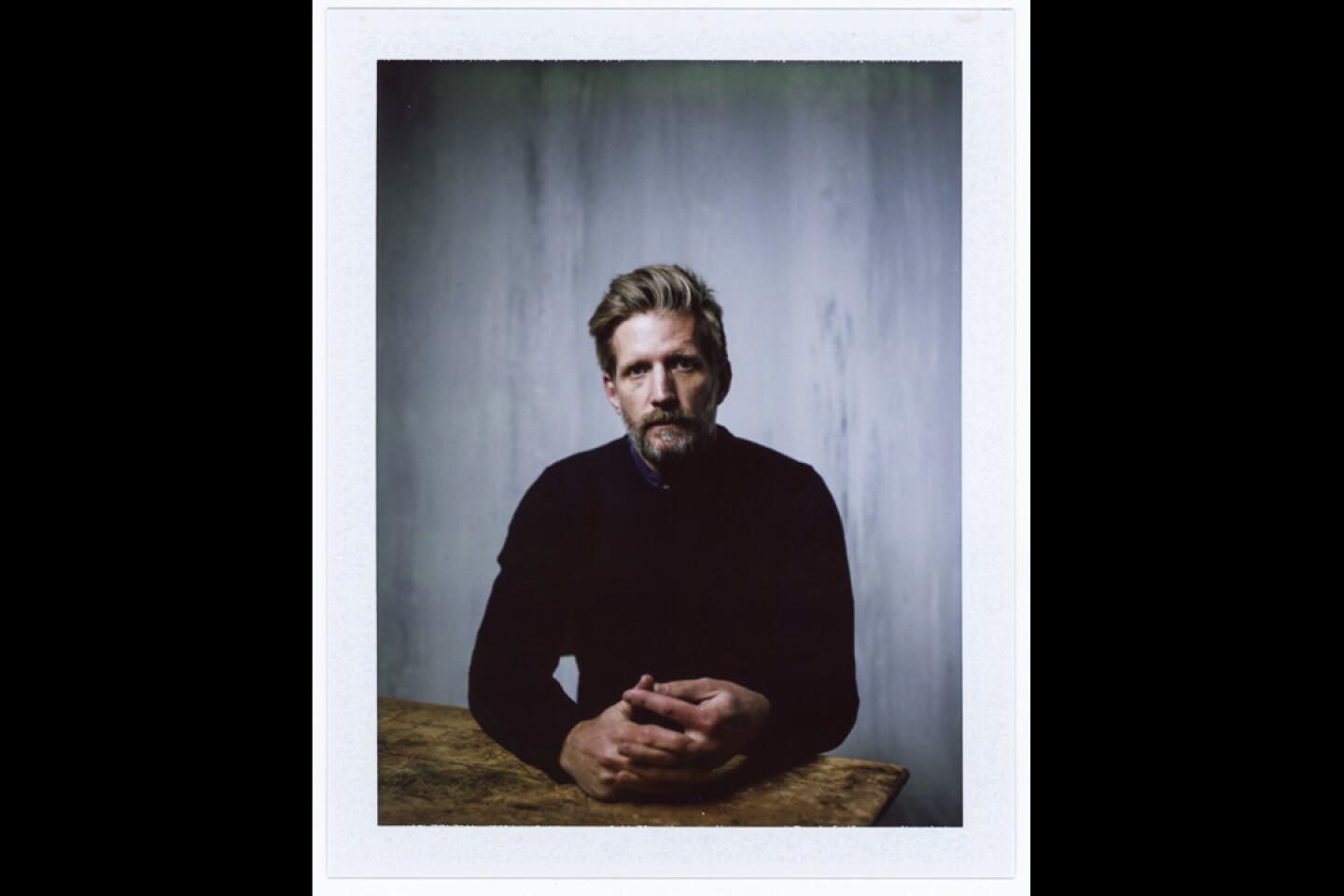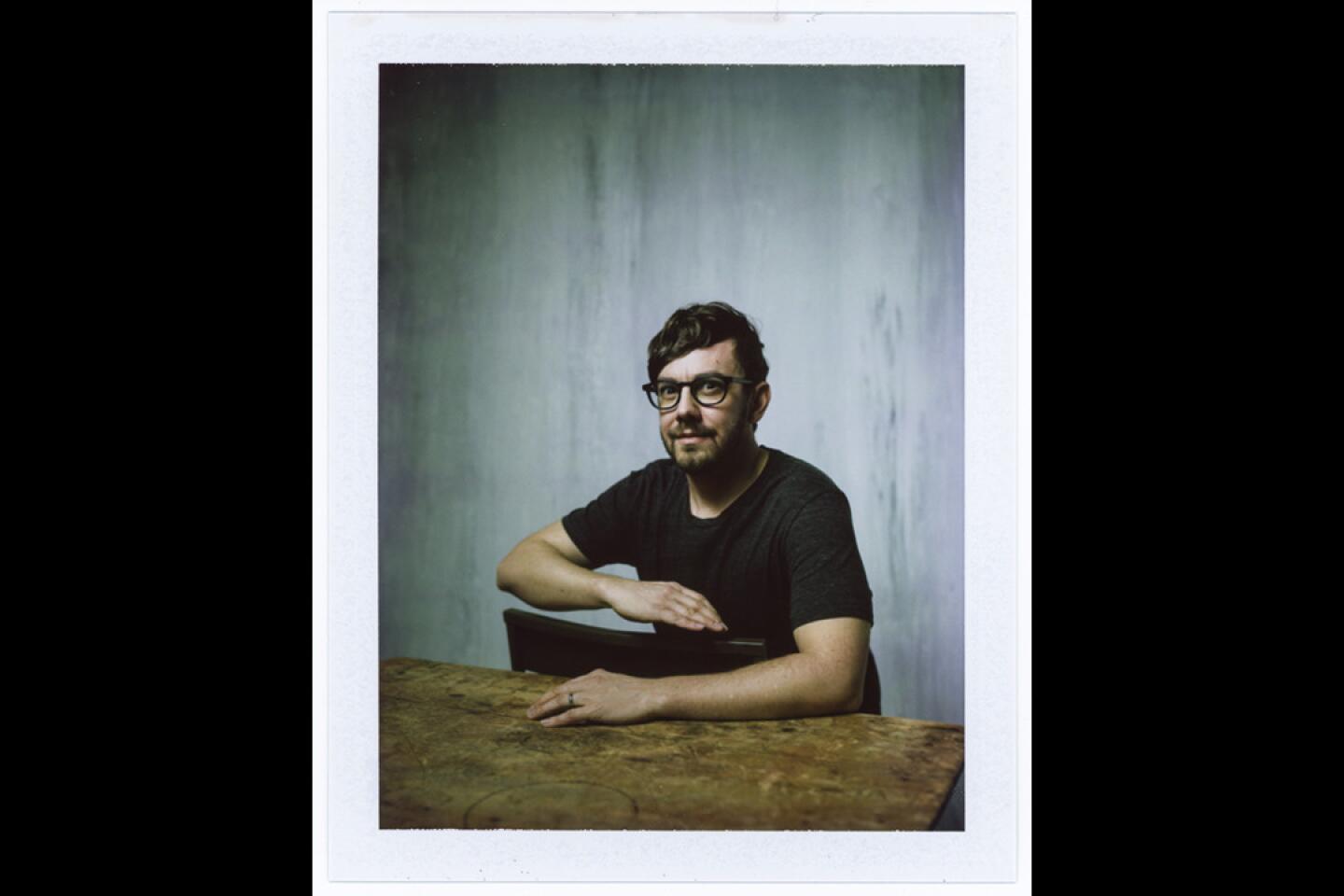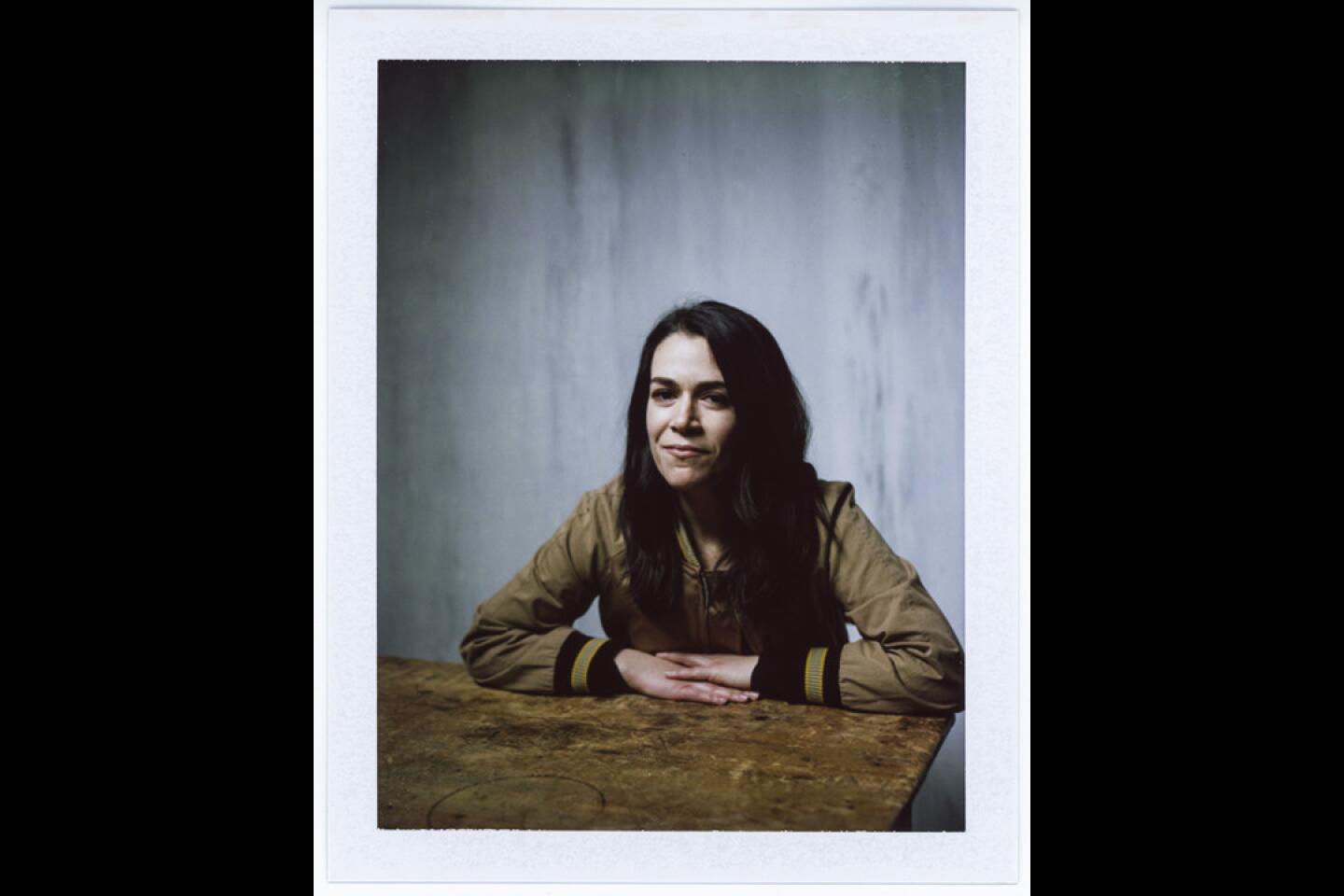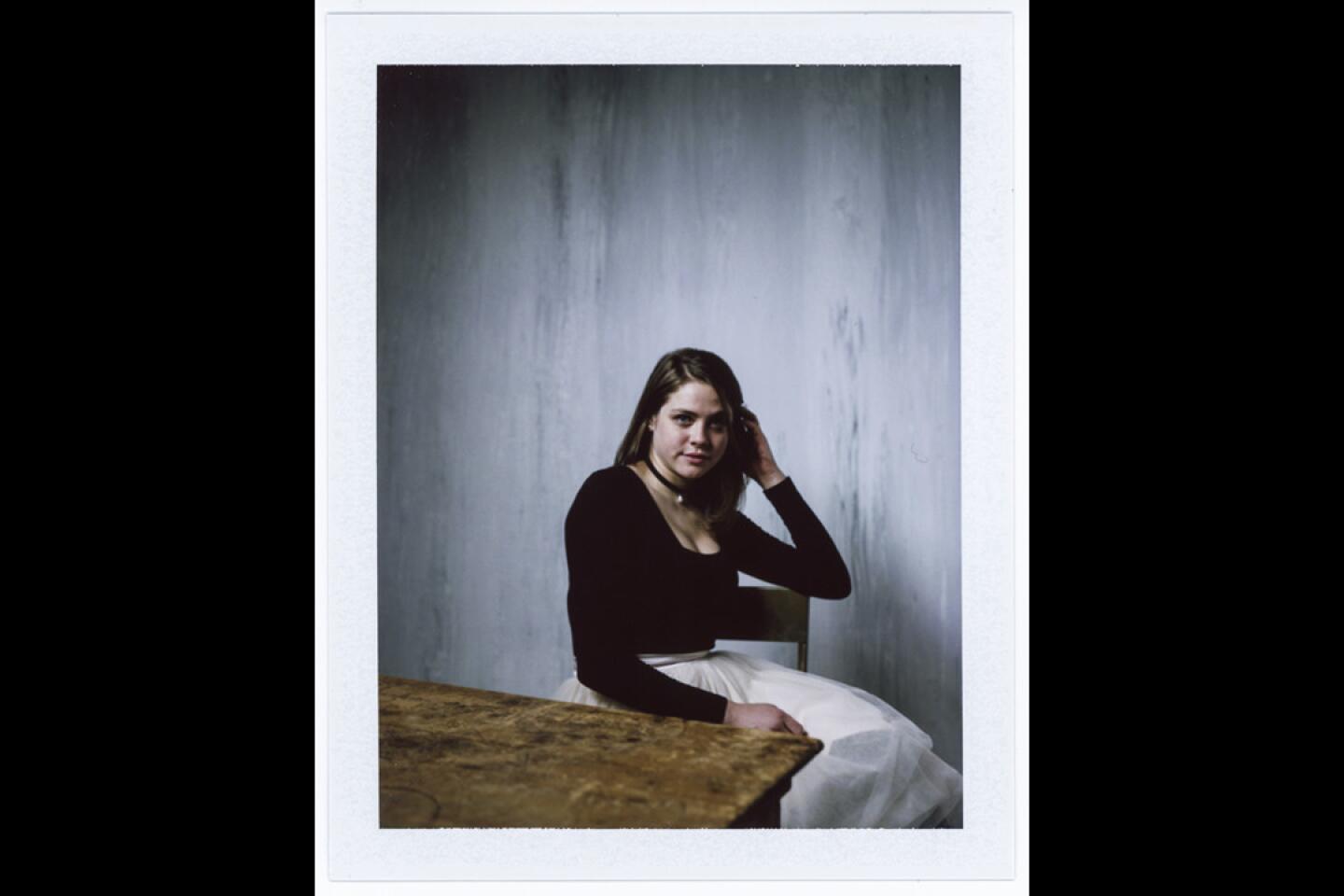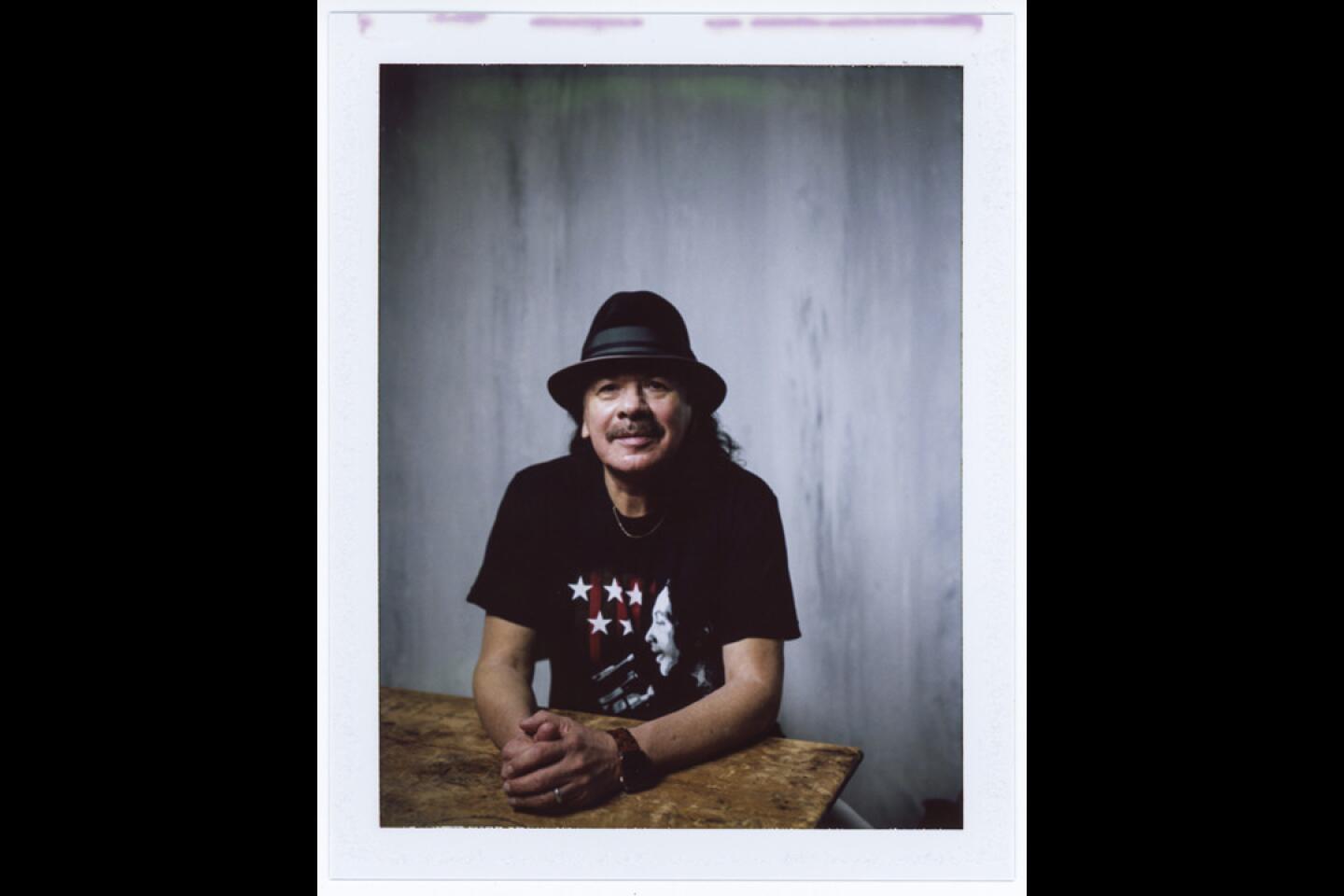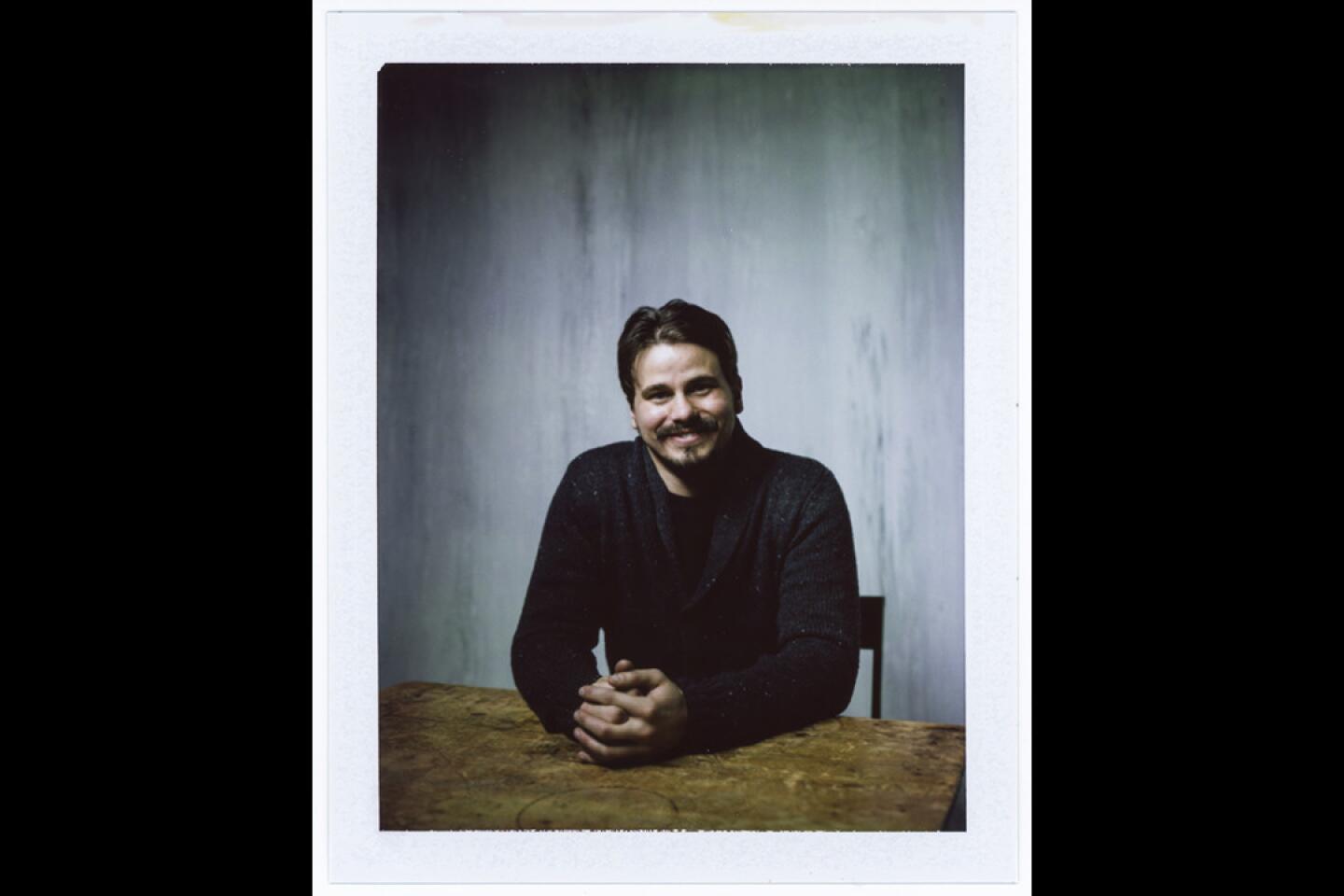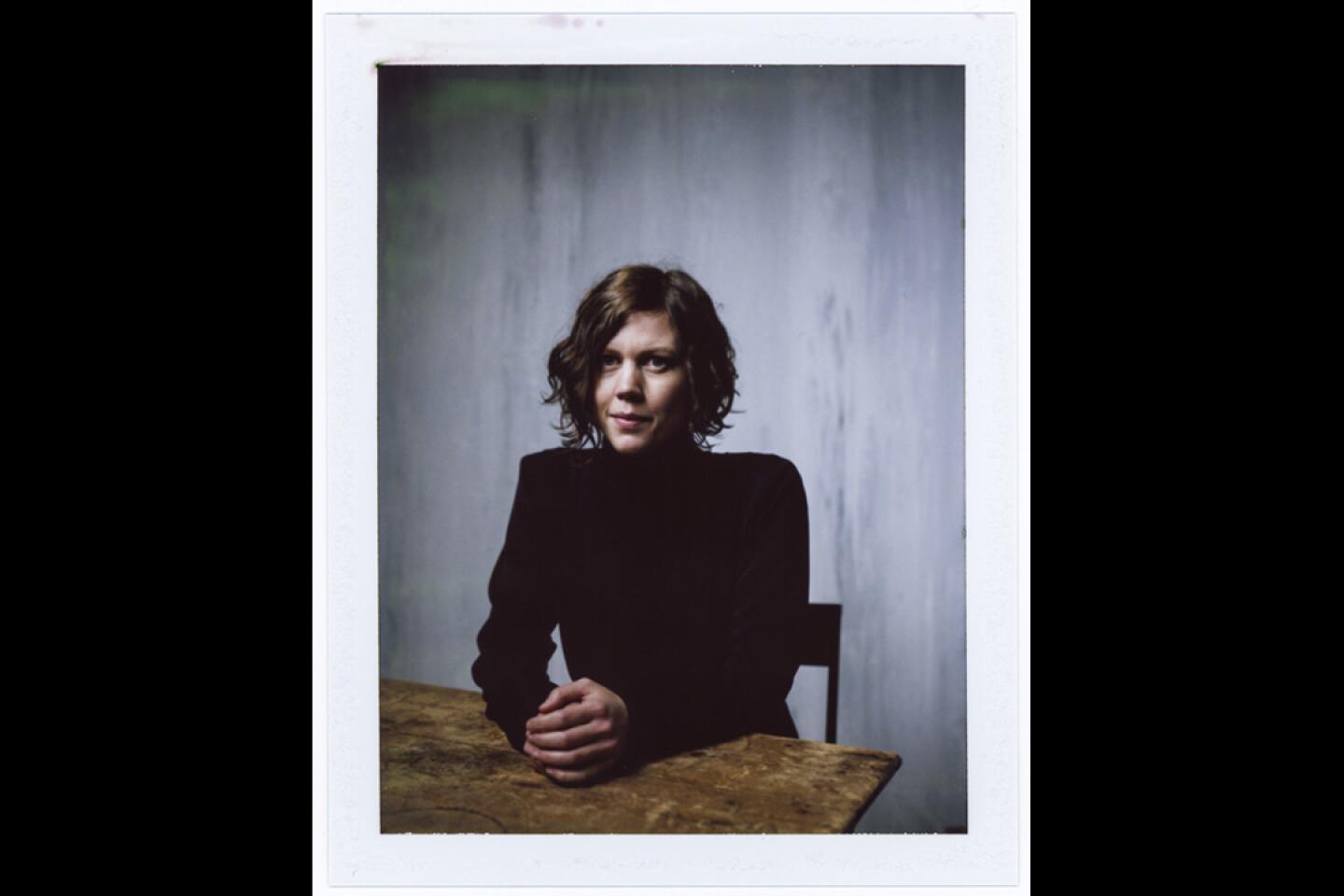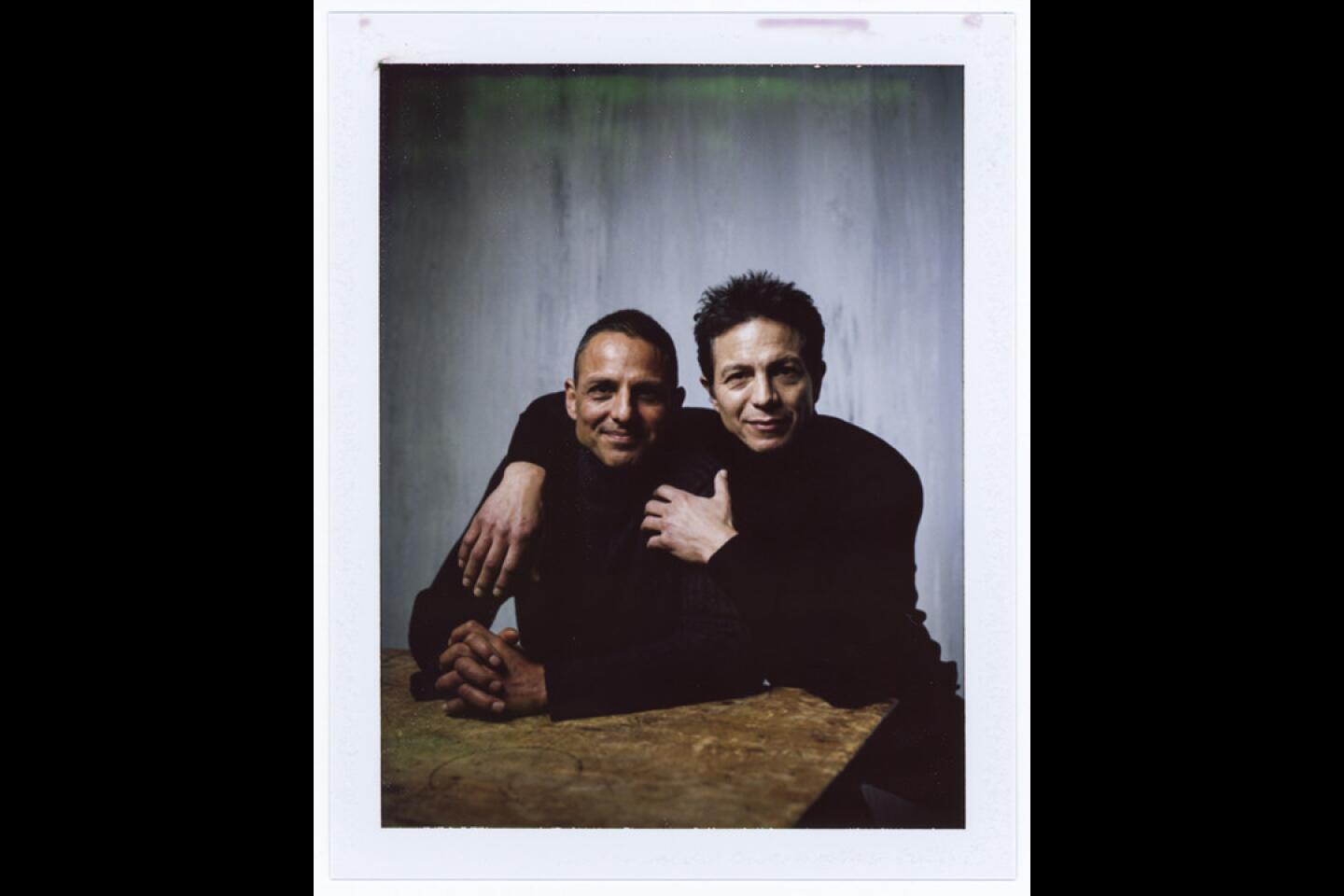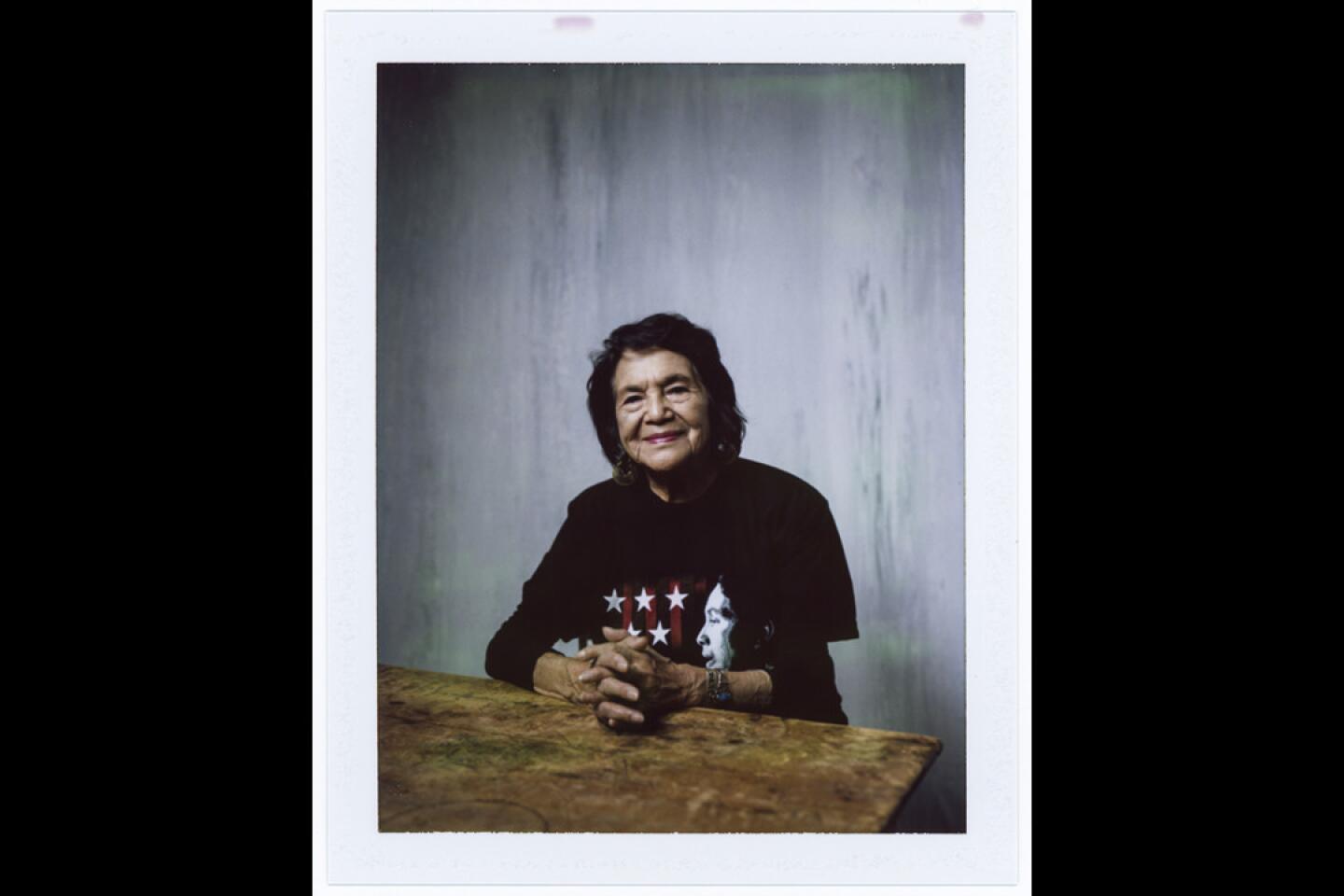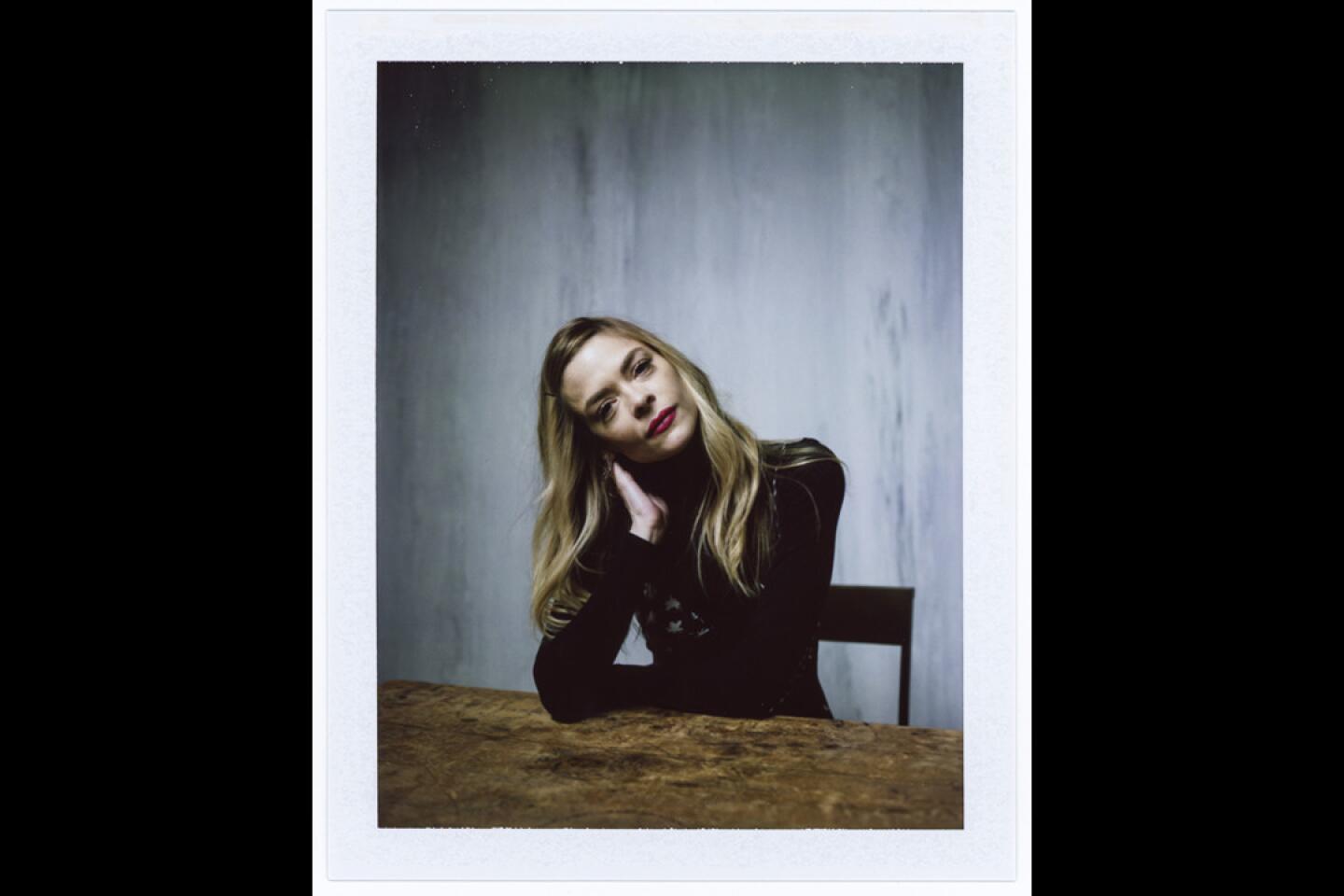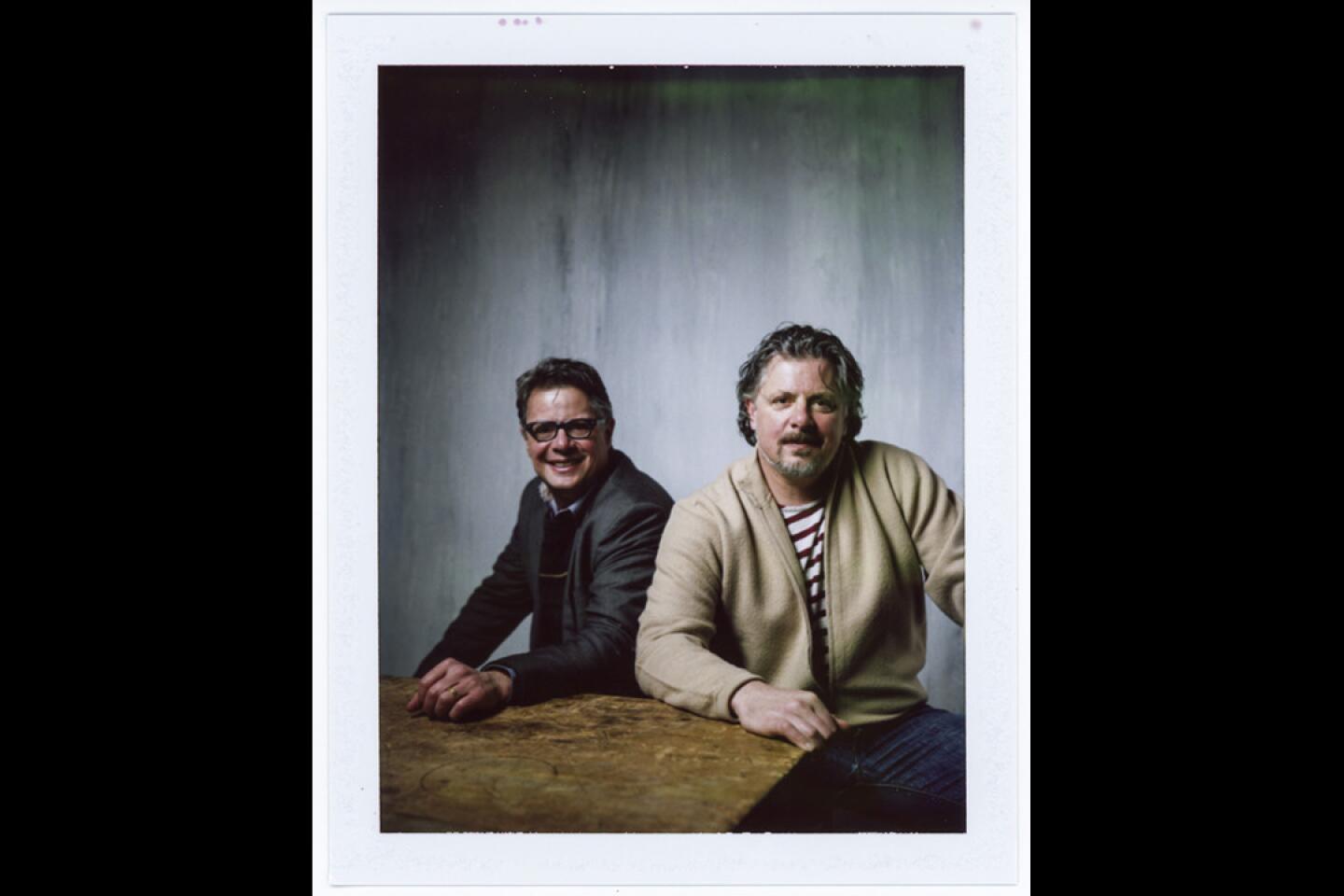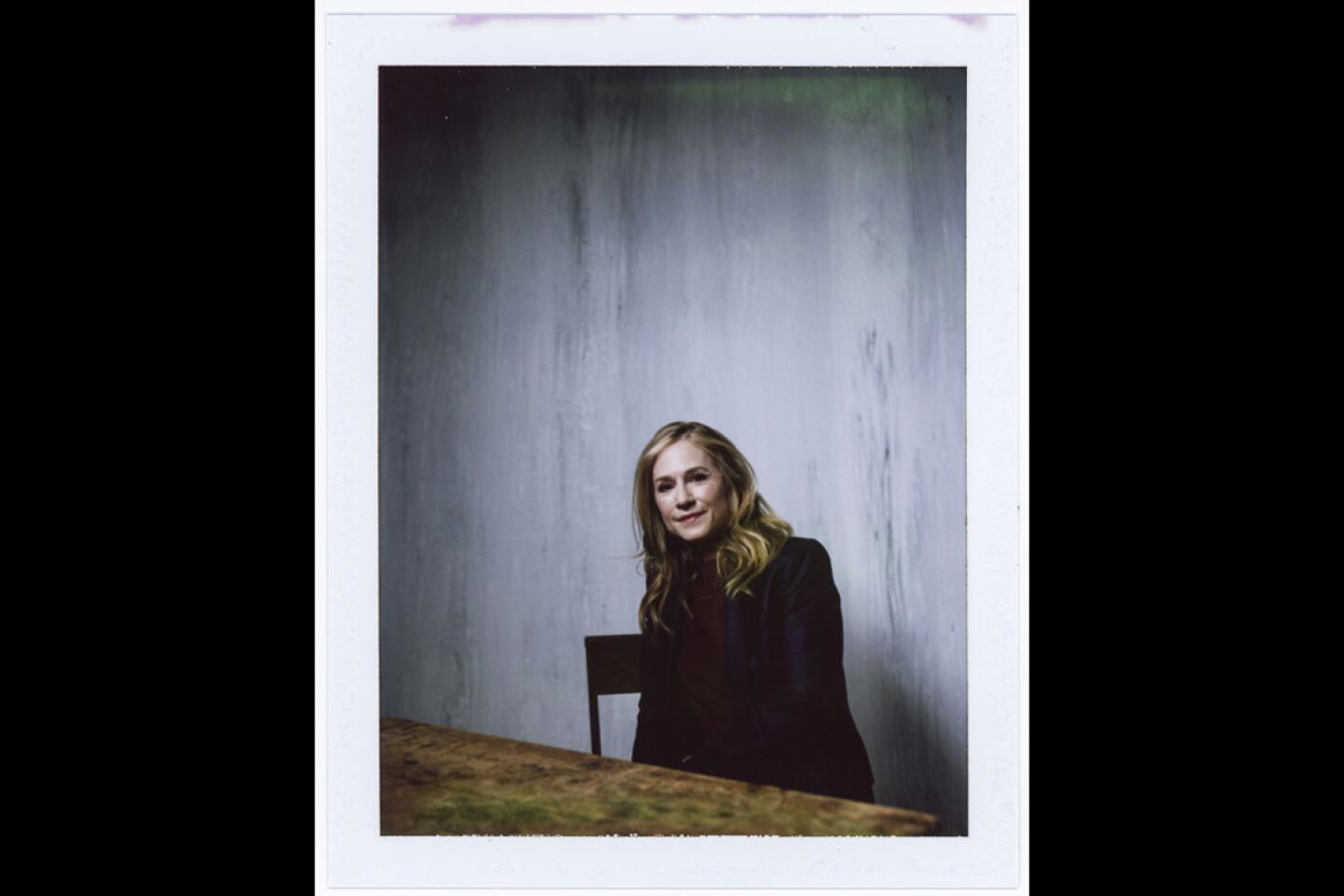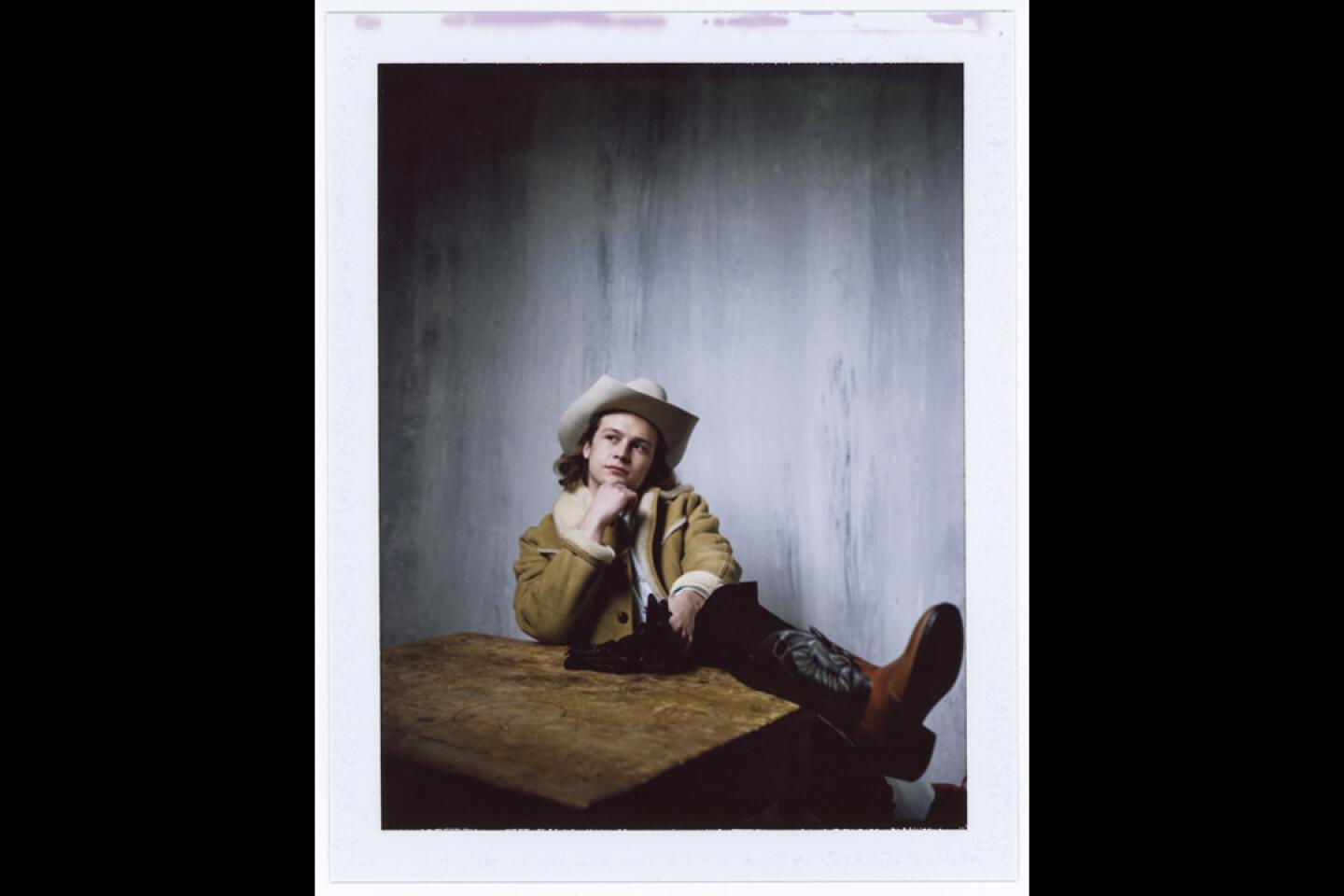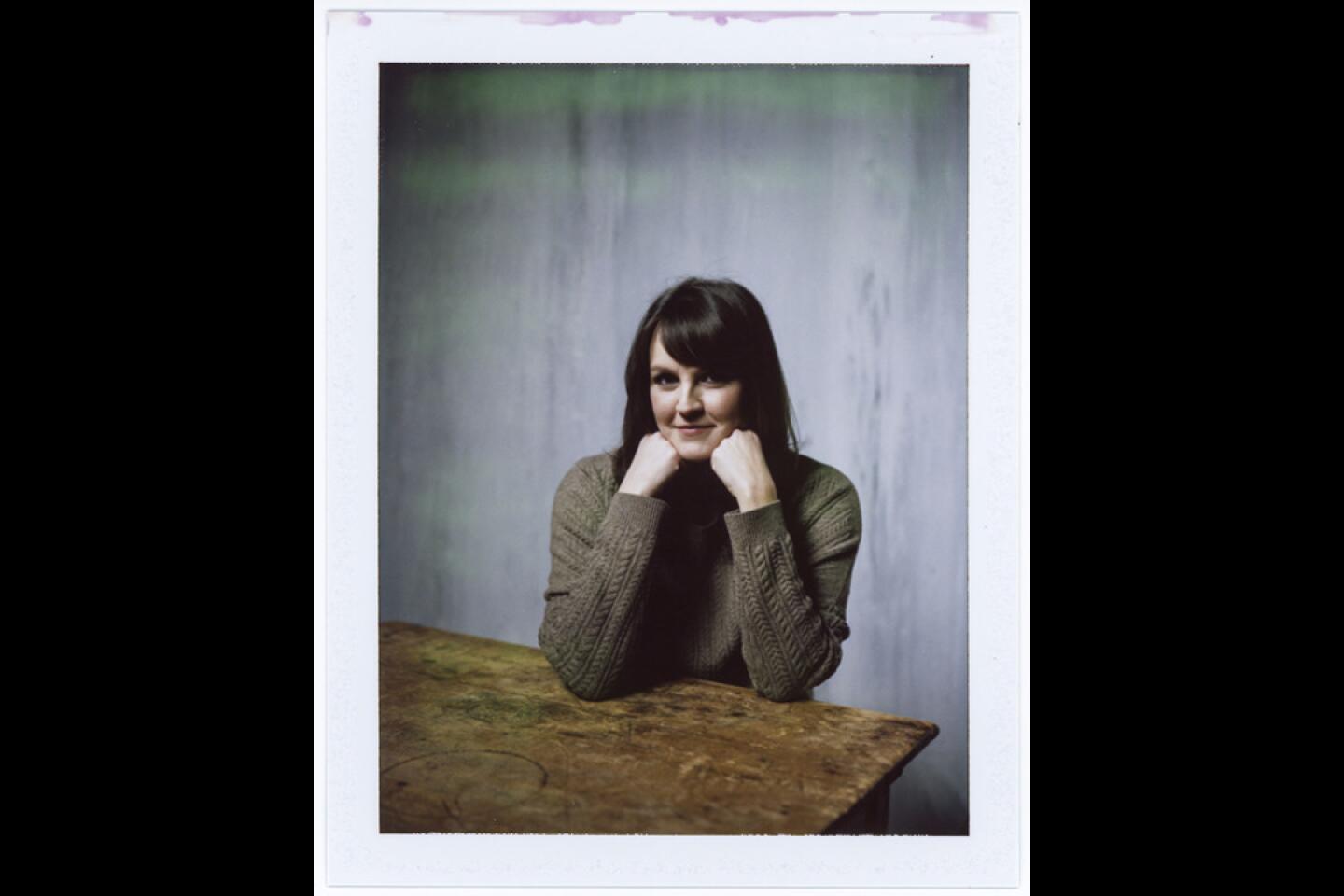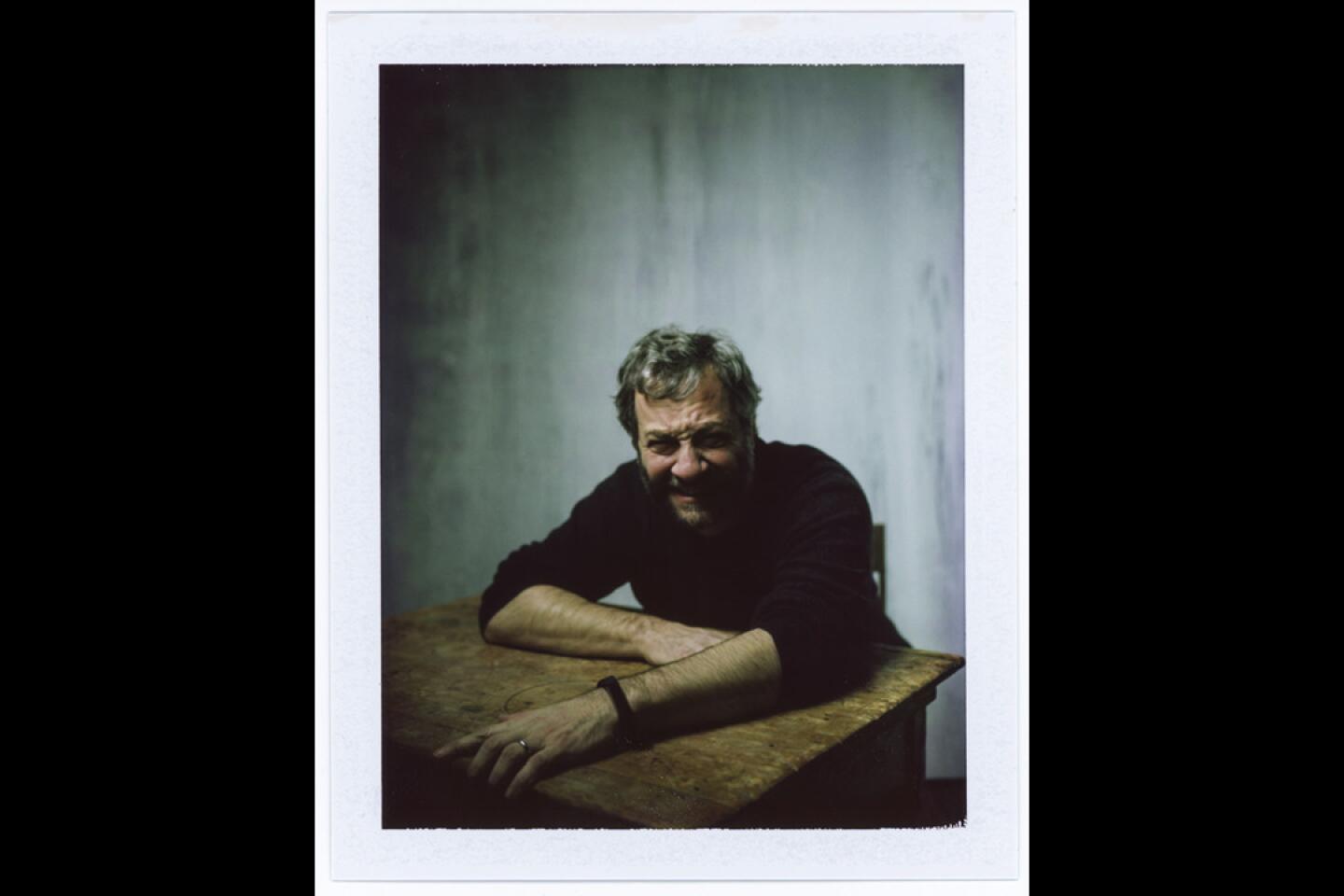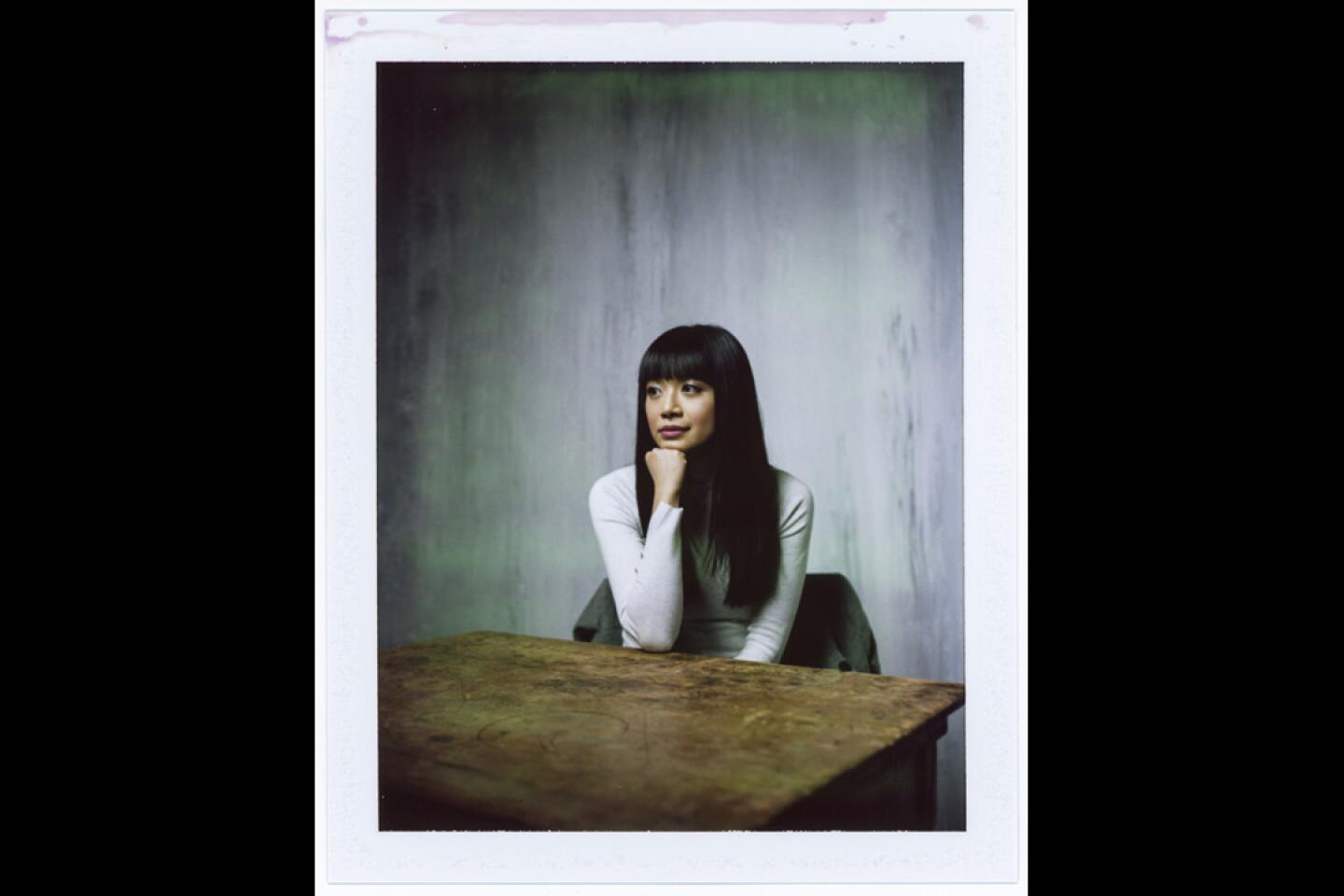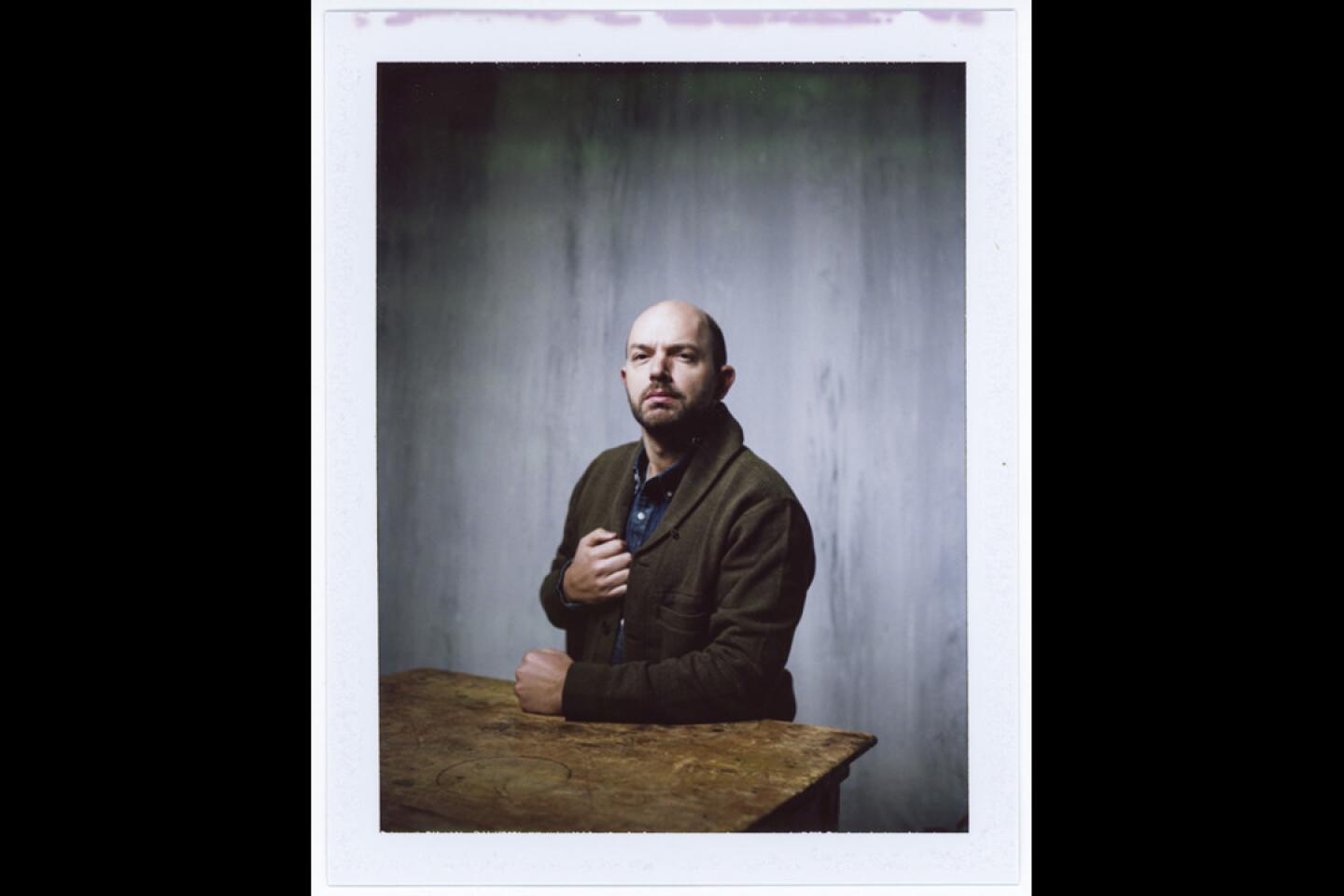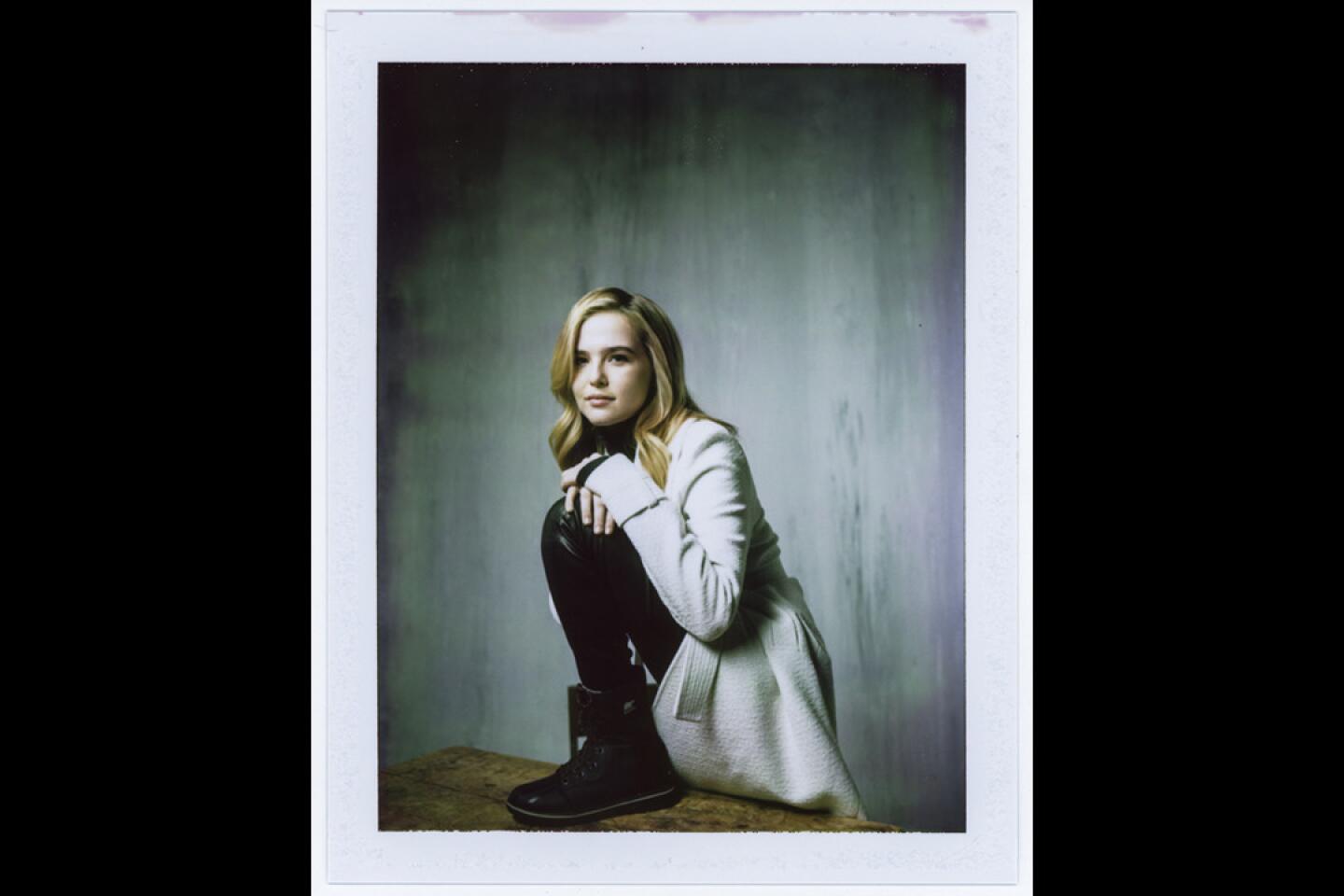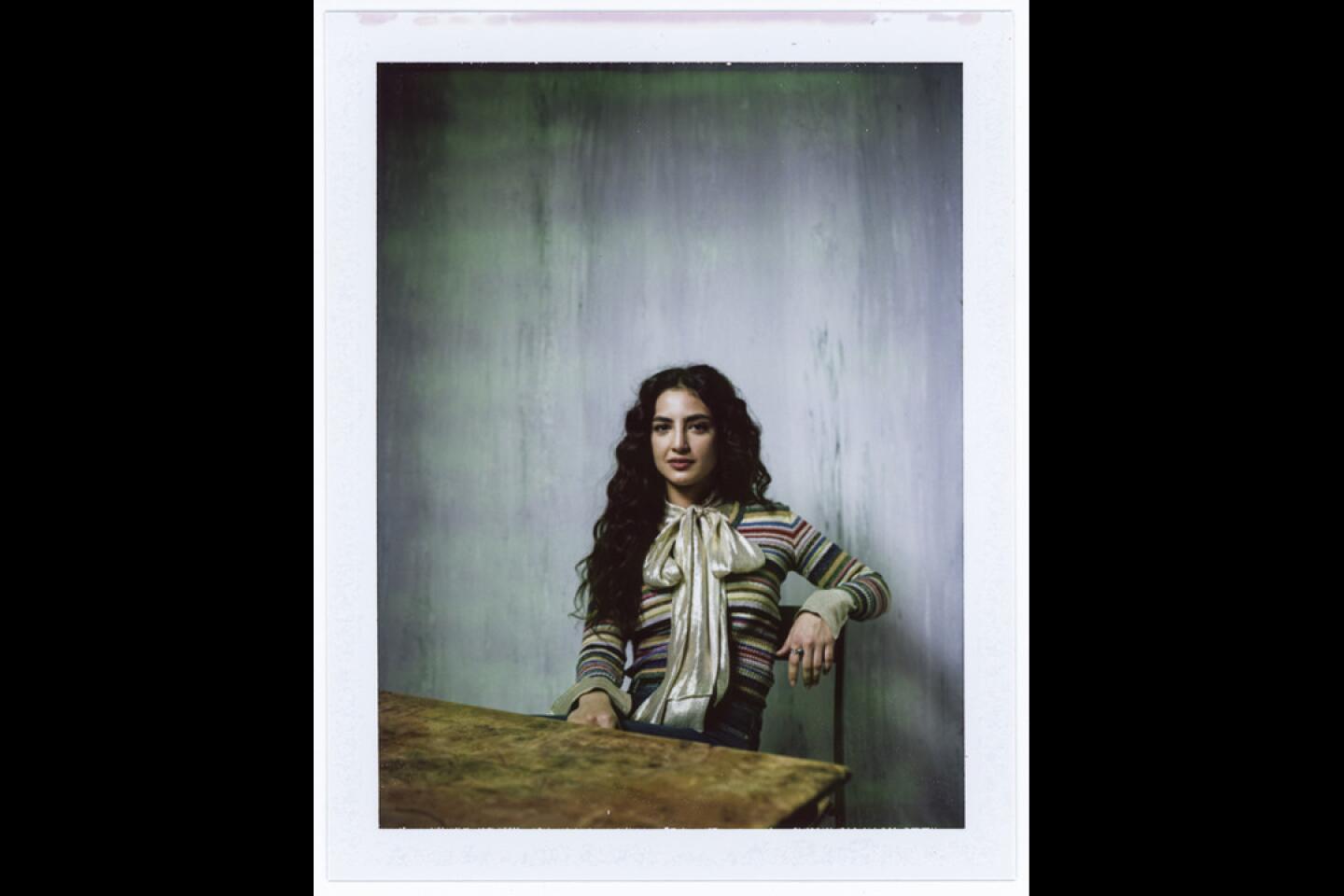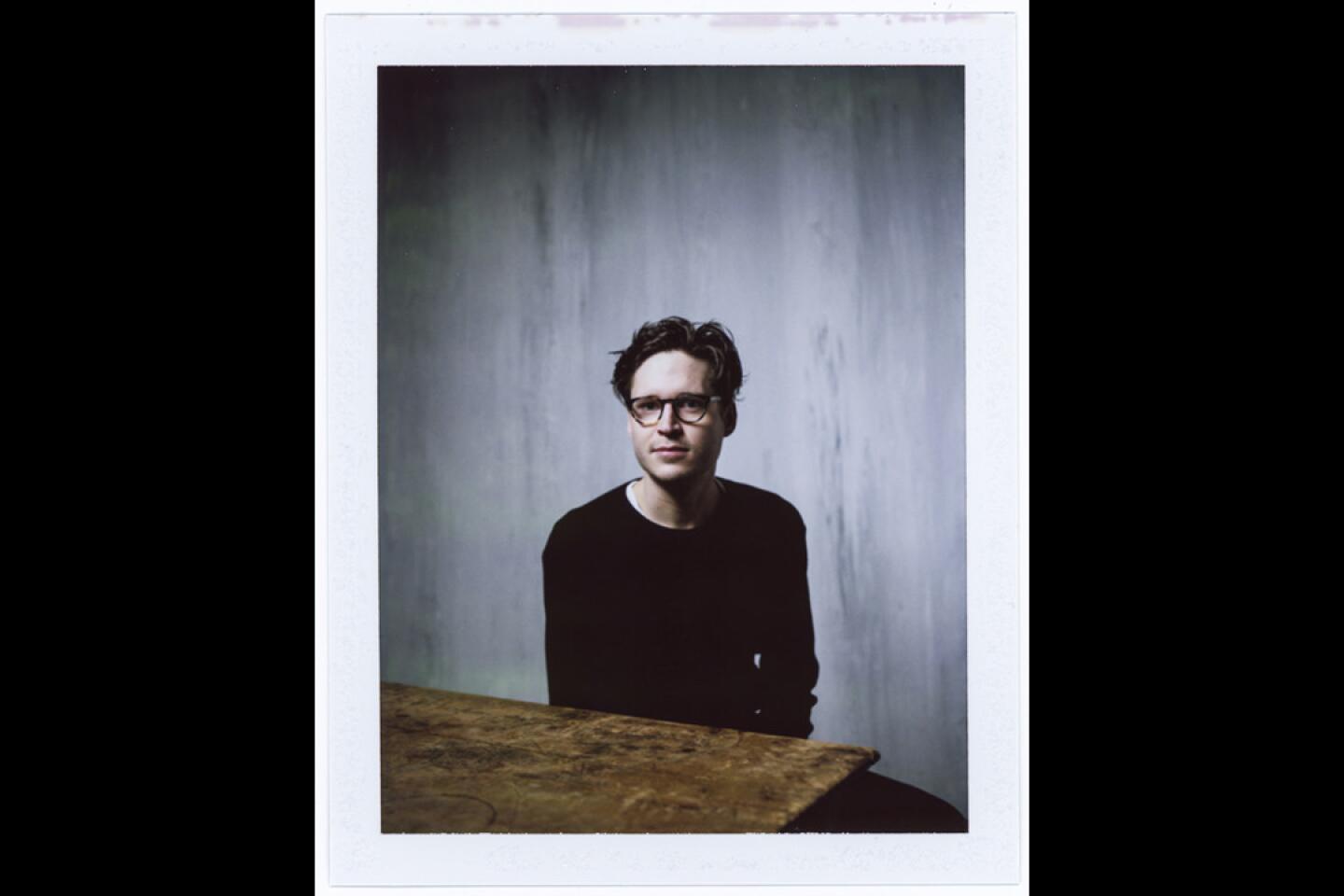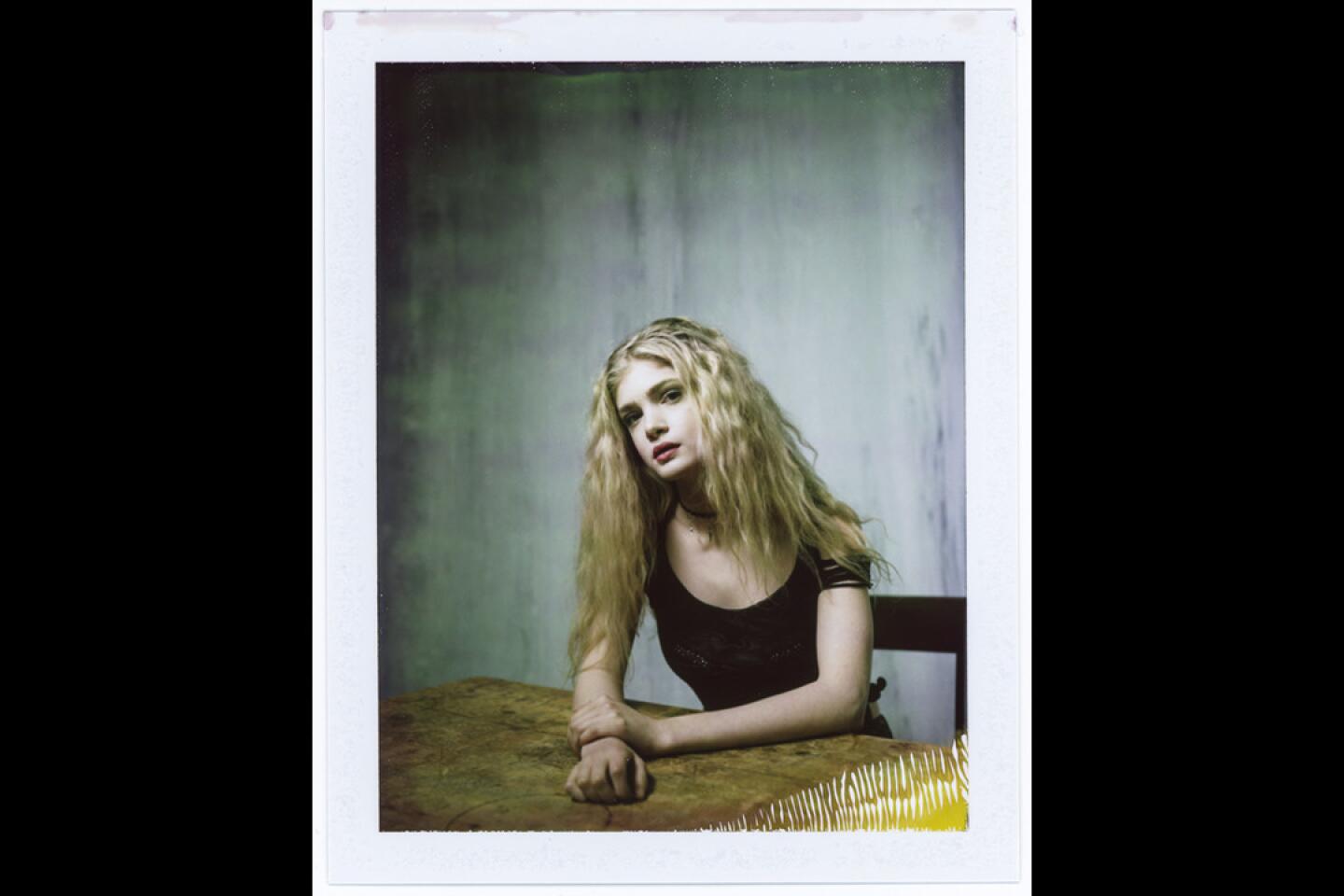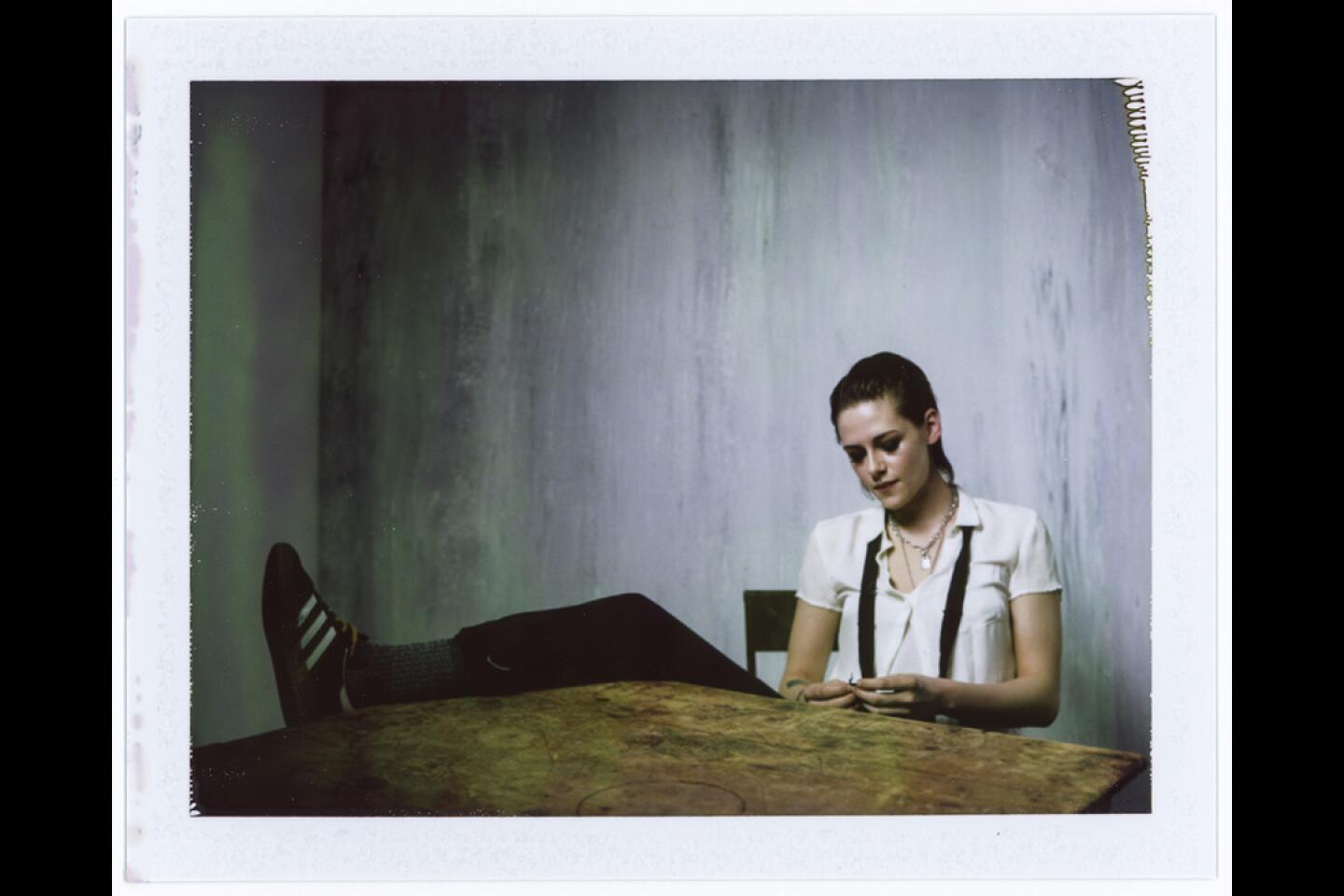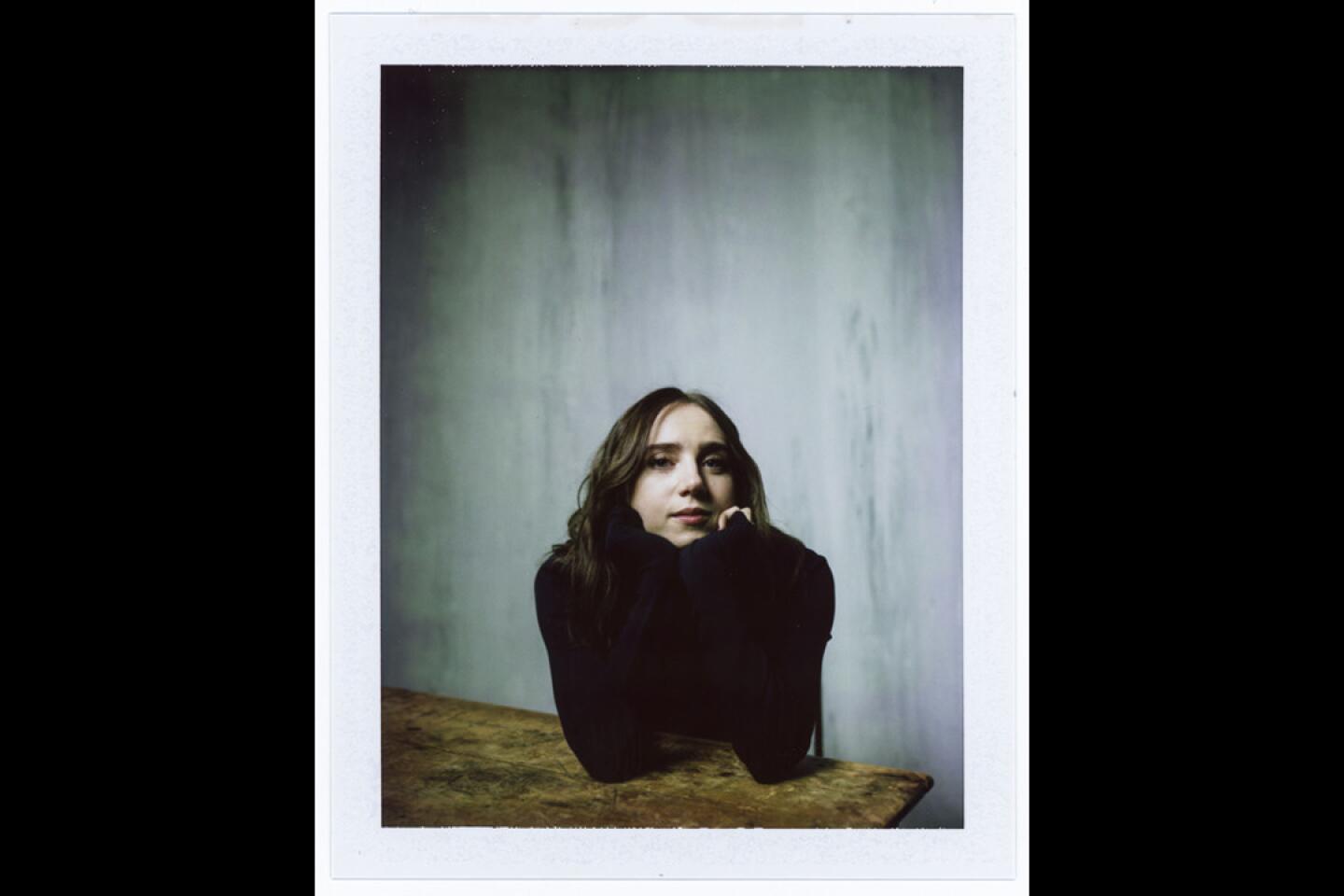People often like to refer to the “Sundance bubble” as a dismissive way to wave off whatever happens in Park City, Utah, during the annual film festival. But this year it seemed as if people in Park City were actively pressing themselves up against that bubble, puncturing any insularity by remaining well aware of the inauguration, the international women’s marches and all of the news that was happening outside the confines of the festival.
I concluded a series of video interviews with filmmakers who were passing through our L.A. Times Photo Studio with the question, “What is the purpose of art in a time of crisis?”
I’m not really sure what I expected to hear back, but I was immediately struck by the depth, thoughtfulness and variety of the responses to the question. This was seemingly something the artists had already all been asking themselves.
1/122
Actor Peter Dinklage of the film “Rememory.”
(Jay L. Clendenin / Los Angeles Times) 2/122
Actress Shirley MacLaine, director Mark Pellington and actress Ann’Jewel Lee Dixon of the film “The Last Word.”
(Jay L. Clendenin / Los Angeles Times) 3/122
Actor Harris Dickinson of the film “Beach Rats.”
(Jay L. Clendenin / Los Angeles Times) 4/122
Actress Anne Heche of the film “The Last Word.”
(Jay L. Clendenin / Los Angeles Times) 5/122
Actress Adriyan Rae of the film “Burning Sands.”
(Jay L. Clendenin / Los Angeles Times) 6/122
Actress Shiri Appelby of the film “Lemon.”
(Jay L. Clendenin / Los Angeles Times) 7/122
Actor Brett Gelman of the film “Lemon.”
(Jay L. Clendenin / Los Angeles Times) 8/122
Director Janicza Bravo of the film “Lemon.”
(Jay L. Clendenin / Los Angeles Times) 9/122
Director Adam Bhala Lough, seated, and subject Cody Wilson of the film “The New Radical.”
(Jay L. Clendenin / Los Angeles Times) 10/122
Actress Isabella Amara of the film “Wilson.”
(Jay L. Clendenin / Los Angeles Times) 11/122
Andrew Dosunmu, director of the film “Where Is Kyra?”
(Jay L. Clendenin / Los Angeles Times) 12/122
Actor John Lithgow of the film “Beatriz at Dinner.”
(Jay L. Clendenin / Los Angeles Times) 13/122
Actor Josh O’Connor of the film “God’s Own Country.”
(Jay L. Clendenin / Los Angeles Times) 14/122
Actress Connie Britton of the film “Beatriz at Dinner.”
(Jay L. Clendenin / Los Angeles Times) 15/122
Actress Michelle Monaghan of the film “Sidney Hall.”
(Jay L. Clendenin / Los Angeles Times) 16/122
Actress Judy Greer of the film “Wilson.”
(Jay L. Clendenin / Los Angeles Times) 17/122
Actress Elle Fanning of the film “Sidney Hall.”
(Jay L. Clendenin / Los Angeles Times) 18/122
Actor Jay Duplass of the film “Landline.”
(Jay L. Clendenin / Los Angeles Times) 19/122
Actress Salma Hayek of the film “Beatriz at Dinner.”
(Jay L. Clendenin / Los Angeles Times) 20/122
Trixie Garcia of the documentary film “Long Strange Trip.”
(Jay L. Clendenin / Los Angeles Times) 21/122
Actor Logan Lerman of the film “Sidney Hall.”
(Jay L. Clendenin / Los Angeles Times) 22/122
Actress Isabella Amara of the film “Wilson.”
(Jay L. Clendenin / Los Angeles Times) 23/122
Actress Chloe Sevigny of the film “Golden Exits.”
(Jay L. Clendenin / Los Angeles Times) 24/122
Surfer Laird Hamilton, subject of the documentary film “Take Every Wave: The Life of Laird Hamilton.” (Jay L. Clendenin / Los Angeles Times)
25/122
Actor Jeremy Renner of the film “Wind River.”
(Jay L. Clendenin / Los Angeles Times) 26/122
Actress Gigi Gorgeous from the film “This Is Everything: Gigi Gorgeous.”
(Jay L. Clendenin / Los Angeles Times) 27/122
Actor Adam Pally from the film “Band Aid.”
(Jay L. Clendenin / Los Angeles Times) 28/122
Actress America Ferrera from the new Web-series “Gente-fied.”
(Jay L. Clendenin / Los Angeles Times) 29/122
Director Jovanka Vuckovic from the film “XX.”
(Jay L. Clendenin / Los Angeles Times) 30/122
Director Sofia Carrillo from the film “XX.”
(Jay L. Clendenin / Los Angeles Times) 31/122
Director Yance Ford from the documentary film “Strong Island.”
(Jay L. Clendenin / Los Angeles Times) 32/122
Beastie Boy and actor Adam Horowitz from the film “Golden Exits.”
(Jay L. Clendenin / Los Angeles Times) 33/122
Director Roxanne Benjamin from the film, “XX.”
(Jay L. Clendenin / Los Angeles Times) 34/122
Actress Kelsy Asbille from the film “Wind River.”
(Jay L. Clendenin / Los Angeles Times) 35/122
Actress Lois Smith from the film “Marjorie Prime.”
(Jay L. Clendenin / Los Angeles Times) 36/122
Actress Geena Davis from the film “Marjorie Prime.”
(Jay L. Clendenin / Los Angeles Times) 37/122
Actor Mark Hamill from the film “Brigsby Bear.”
(Jay L. Clendenin / Los Angeles Times) 38/122
Actor Nicholas Hoult from the film “Rebel in the Rye.”
(Jay L. Clendenin / Los Angeles Times) 39/122
Producer Akiva Schaffer from the film “Brigsby Bear.”
(Jay L. Clendenin / Los Angeles Times) 40/122
Director Danny Strong from the film “Rebel in the Rye.”
(Jay L. Clendenin / Los Angeles Times) 41/122
Actor Kyle Mooney from the film “Brigsby Bear.”
(Jay L. Clendenin / Los Angeles Times) 42/122
Actor Jack Black of the film “The Polka King.”
(Jay L. Clendenin / Los Angeles Times) 43/122
Actor John Lithgow of the film “Beatriz at Dinner.”
(Jay L. Clendenin / Los Angeles Times) 44/122
India Menuez of the Amazon series “I Love Dick.”
(Jay L. Clendenin / Los Angeles Times) 45/122
Actor Jon Hamm of the film “Marjorie Prime.”
(Jay L. Clendenin / Los Angeles Times) 46/122
Actor Mark Hamill of the film “Brigsby Bear.”
(Jay L. Clendenin / Los Angeles Times) 47/122
Actress Anya Taylor-Joy of the film “Thoroughbred.”
(Jay L. Clendenin / Los Angeles Times) 48/122
Actor Sam Elliott of the film “The Hero.”
(Jay L. Clendenin / Los Angeles Times) 49/122
Director Kitty Green of the documentary film “Casting JonBenet.”
(Jay L. Clendenin / Los Angeles Times) 50/122
Director Michael Barnett of the documentary film “The Mars Generation.”
(Jay L. Clendenin / Los Angeles Times) 51/122
Actress Parker Posey of the film “Columbus.”
(Jay L. Clendenin / Los Angeles Times) 52/122
Grammy-winning Beastie Boys founder and actor Adam Horovitz of the film “Golden Exits.”
(Jay L. Clendenin / Los Angeles Times) 53/122
Actress Jenny Slate of the film “The Polka King.”
(Jay L. Clendenin / Los Angeles Times) 54/122
Executive producer Danny Glover of the documentary film “Strong Island.”
(Jay L. Clendenin / Los Angeles Times) 55/122
Director Annie Clark (also known as the musician St. Vincent) of the film, “XX.”
(Jay L. Clendenin / Los Angeles Times) 56/122
Actor Nick Offerman of the film “The Hero.”
(Jay L. Clendenin / Los Angeles Times) 57/122
Actor John Cho of the film “Columbus.”
(Jay L. Clendenin / Los Angeles Times) 58/122
Actress Jasna Fritzi Bauer from the film “Axolotl Overkill.”
(Jay L. Clendenin / Los Angeles Times) 59/122
Actress Brittany Snow from the film “Bushwick.”
(Jay L. Clendenin / Los Angeles Times) 60/122
Actor Dave Bautista from the film “Bushwick.”
(Jay L. Clendenin / Los Angeles Times) 61/122
Executive producer Sean Hayes from the documentary series “The History of Comedy.”
(Jay L. Clendenin / Los Angeles Times) 62/122
Actress Jessica Williams from the film “The Incredible Jessica James.” (Jay L. Clendenin / Los Angeles Times)
63/122
Director Jack Henry Robbins from the short film “Hot Winter, A Film by Dick Pierre.”
(Jay L. Clendenin / Los Angeles Times) 64/122
Actress Melanie Lynskey from the film “I Don’t Feel at Home in This World Anymore.”
(Jay L. Clendenin / Los Angeles Times) 65/122
Executive producer Tim Robbins, standing, and his son, director Jack Henry Robbins, from the short film “Hot Winter, A Film by Dick Pierre.”
(Jay L. Clendenin / Los Angeles Times) 66/122
Musician Jillionaire from the documentary film “Give Me Future.” (Jay L. Clendenin / Los Angeles Times)
67/122
Actress Cary Mulligan from the film “Mudbound.” (Jay L. Clendenin / Los Angeles Times)
68/122
Actress Chante Adams from the film “Roxanne Roxanne.”
(Jay L. Clendenin / Los Angeles Times) 69/122
Actor Fares Fares from the film “The Nile Hilton Incident.”
(Jay L. Clendenin / Los Angeles Times) 70/122
Actor Chris O’Dowd from the film “The Incredible Jessica James.” (Jay L. Clendenin / Los Angeles Times)
71/122
Actor Lakeith Stanfield from the film “The Incredible Jessica James.” (Jay L. Clendenin / Los Angeles Times)
72/122
Director Nacho Vigalondo from the film “Colossal.”
(Jay L. Clendenin / Los Angeles Times) 73/122
Actress Chelsea Handler, who led the Women’s March through Park City, Utah.
(Jay L. Clendenin / Los Angeles Times) 74/122
Actress Aisha Tyler, who participated in the Women’s March through Park City. (Jay L. Clendenin / Los Angeles Times)
75/122
Executive producer Tim Robbins from the short film “Hot Winter, A Film by Dick Pierre.”
(Jay L. Clendenin / Los Angeles Times) 76/122
Actor Garrett Hedlund from the film “Mudbound.”
(Jay L. Clendenin / Los Angeles Times) 77/122
Director-writer Michael Larnell from the film “Roxanne Roxanne.”
(Jay L. Clendenin / Los Angeles Times) 78/122
Roxanne Shanté, subject of the biopic “Roxanne Roxanne.”
(Jay L. Clendenin / Los Angeles Times) 79/122
Actress Mari Malek from the film “The Nile Hilton Incident.”
(Jay L. Clendenin / Los Angeles Times) 80/122
Actor O’Shea Jackson Jr., from the film “Ingrid Goes West.”
(Jay L. Clendenin / Los Angeles Times) 81/122
Actress Pom Klementieff, starring in “Ingrid Goes West.”
(Jay L. Clendenin / Los Angeles Times) 82/122
Director Matt Spicer of the film, “Ingrid Goes West.”
(Jay L. Clendenin / Los Angeles Times) 83/122
Actor Jack Huston of the film, “Yellow Birds.”
(Jay L. Clendenin / Los Angeles Times) 84/122
Rashida Jones of the film “Hot Girls Wanted: Turned On.”
(Jay L. Clendenin / Los Angeles Times) 85/122
Actor Tye Sheridan of the film “Yellow Birds.”
(Jay L. Clendenin / Los Angeles Times) 86/122
Executive Producer Tim Robbins of the short “Hot Winter, A Film By Dick Pierre.”
(Jay L. Clendenin / Los Angeles Times) 87/122
Executive Producer Sean Hayes of the CNN series “History of Comedy.”
(Jay L. Clendenin / Los Angeles Times) 88/122
Mary J. Blige of the film “Mudbound.”
(Jay L. Clendenin / Los Angeles Times) 89/122
Actor Elvis Nolasco of the film “Roxanne, Roxanne.”
(Jay L. Clendenin / Los Angeles Times) 90/122
Actor Chris O’Dowd of the film “The Incredible Jessica James.”
(Jay L. Clendenin / Los Angeles Times) 91/122
Actor Lakeith Stanfield of the film “The Incredible Jessica James.”
(Jay L. Clendenin / Los Angeles Times) 92/122
Music producer and DJ Thomas Wesley Pentz, known as Diplo, of the documentary film “Give Me Future.”
(Jay L. Clendenin / Los Angeles Times) 93/122
Actress Molly Shannon of the film “The Little Hours.”
(Jay L. Clendenin / Los Angeles Times) 94/122
Actor Dave Franco of the film “The Little Hours.”
(Jay L. Clendenin / Los Angeles Times) 95/122
Actress Alison Brie of the film “The Little Hours.”
(Jay L. Clendenin / Los Angeles Times) 96/122
Actress Kate Micucci of the film “The Little Hours.”
(Jay L. Clendenin / Los Angeles Times) 97/122
Actor Paul Sparks of the film “Thoroughbred.”
(Jay L. Clendenin / Los Angeles Times) 98/122
Dree Hemingway of the film “L.A. Times.”
(Jay L. Clendenin / Los Angeles Times) 99/122
Director and actress Michelle Morgan of the film “L.A. Times.”
(Jay L. Clendenin / Los Angeles Times) 100/122
Actor Jorma Taccone of the film “L.A. Times.”
(Jay L. Clendenin / Los Angeles Times) 101/122
Actress Abbi Jacobson of the film “Person to Person.”
(Jay L. Clendenin / Los Angeles Times) 102/122
Actress Olivia Luccardi of the film “Person to Person.”
(Jay L. Clendenin / Los Angeles Times) 103/122
Producer Carlos Santana of the film “Dolores.”
(Jay L. Clendenin / Los Angeles Times) 104/122
Actor Jason Ritter of the film “Bitch.”
(Jay L. Clendenin / Los Angeles Times) 105/122
Director Amanda Kernell of the film “Sami Blood.”
(Jay L. Clendenin / Los Angeles Times) 106/122
Director Peter Bratt and his brother Benjamin, producers of the documentary film “Dolores.”
(Jay L. Clendenin / Los Angeles Times) 107/122
Dolores Huerta of the film “Dolores.”
(Jay L. Clendenin / Los Angeles Times) 108/122
Actress Jamie King of the film “Bitch.”
(Jay L. Clendenin / Los Angeles Times) 109/122
Directors Andrew Smith and Alex Smith of the film “Walking Out.”
(Jay L. Clendenin / Los Angeles Times) 110/122
Actress Holly Hunter of the film “The Big Sick.”
(Jay L. Clendenin / Los Angeles Times) 111/122
Actor Logan Miller of the film “Before I Fall.”
(Jay L. Clendenin / Los Angeles Times) 112/122
Actress Carla Gallo from “Playdates.”
(Jay L. Clendenin / Los Angeles Times) 113/122
Producer Judd Apatow of the film “The Big Sick.”
(Jay L. Clendenin / Los Angeles Times) 114/122
Actress Cynthy Wu of the film “Before I Fall.”
(Jay L. Clendenin / Los Angeles Times) 115/122
Actor Paul Scheer from the television show “Playdates.”
(Jay L. Clendenin / Los Angeles Times) 116/122
Actress Zoey Deutch from the film “Before I Fall.”
(Jay L. Clendenin / Los Angeles Times) 117/122
Actress Medalion Rahimin from the film “Before I Fall.”
(Jay L. Clendenin / Los Angeles Times) 118/122
Actor Josh Kaye of the film “Come Swim.”
(Jay L. Clendenin / Los Angeles Times) 119/122
Actress Elena Kampouris of the film “Before I Fall.”
(Jay L. Clendenin / Los Angeles Times) 120/122
Joshua Wong of the documentary film “Joshua: Teenager vs. Superpower.”
(Jay L. Clendenin / Los Angeles Times) 121/122
Director Kristen Stewart of the film “Come Swim.”
(Jay L. Clendenin / Los Angeles Times) 122/122
Actress Zoe Kazan of the film “The Big Sick.”
(Jay L. Clendenin / Los Angeles Times) America Ferrera was in Park City to promote “Gente-fied,but she was there only the day after she addressed a massive crowd at the women’s march in Washington, D.C. “I think the purpose of art is the same at all times,” Ferrera said, “but I think in times like these, times of real, real questioning and reflection and concern, it becomes that much clearer that our role in society is to connect.”
Though she was in Park City for her first lead film role in “The Incredible Jessica James,” when performer Jessica Williams sat for our interview it was only a few hours after she had spoken at the women’s rally in Park City. She noted, “The reason why I make art is because I love when somebody random comes up to me and tells me that something that I did deeply touched them in a way.”
Dee Rees was at Sundance with “Mudbound,” the film she directed and co-wrote and a tale that explores race and family in the WWII-era Deep South. “Someone might not listen to you when you’re shouting at them with a sign, but they’ll go see ‘Mudbound’ and say ‘Oh, yeah, I get that idea. Oh yeah, I feel something,’” Rees said. “So I feel like culture is the long game and it’s the ideas game.”
Roxanne Benjamin is one of four female filmmakers involved in the horror anthology project “XX.” “For me it’s that I don’t know how not to,” Benjamin said of making art, “and this happens to be the way that I’ve figured out how to get all of that inner junk out.”
THE BIG WINNERS, huge deals and heated controversies of Sundance 2017 »
Annie Clark was also in Park City with the “XX” project making her debut as a filmmaker, though many may know her better from her work as a musician under the name St. Vincent. “The stakes are so high from a social standpoint,” Clark said, “that you’re going to see a lot of people making incredibly sincere art, that isn’t callous and jaded and ironic. It’s like, ‘No, no, no, we don’t have time for that, people are suffering.’”
The movie “The Big Sick” is based on the real-life relationship between its co-writers Emily V. Gordon and Kumail Nanjiani, a rom-com that somehow takes in both healthcare issues and issues of cultural identity.
“What I’ve always tried to aspire to is to help people feel less alone, and anything I create I want people to not feel alone,” Gordon said. “I want them to feel like someone else understands them, that they’ve got brothers or sisters in arms who have gone through what they’ve gone through and felt what they’ve felt.”
SIGN UP for the free Indie Focus movies newsletter »
Mark.Olsen@latimes.com
Follow on Twitter: @IndieFocus
ALSO
South By Southwest Film Fest to world premiere ‘Baby Driver’ with Jamie Foxx and Jon Hamm
The big deals at Sundance: Why the movies sold and how they might succeed
Films about, and by, women take top honors at politics-heavy Sundance awards

